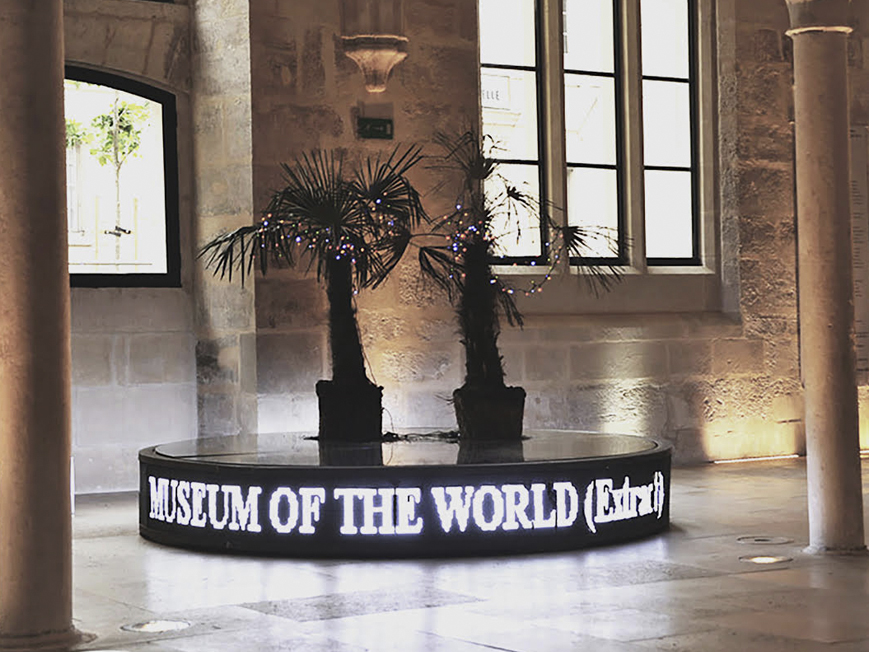
Museum of the world (Extract), “entre autre chose“, triptych 1/3, Collège des Bernardins, Paris | 2014 |
Djamel kokene-Dorléans (courtesy of the artist)8 jan 2022 | António Pinto Ribeiro
MEMOIRS NEWSLETTER #147 | PT EN
THE END
In the context of research in Social Sciences and Arts the term memory should be accepted as an analogy or a metaphor whose origin refers to the multiple neurological capacities of the brain and the complex and infinite functions and operations that cannot be compared to the current use of the word memory. The lack of clarification of this substantial difference leads us to incur a poor and reductive conception of the concepts of memory and post-memory and even the caricature of them.
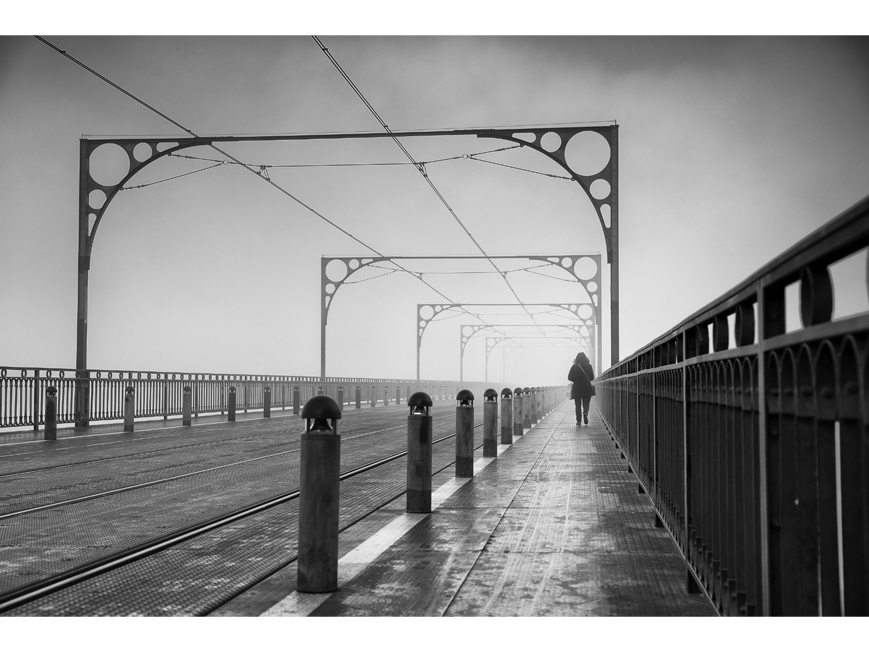
untitled | 2018 | Nuno Simão Gonçalves (courtesy of the photographer)25 dez 2021 | António Sousa Ribeiro
MEMOIRS/ MAPS NEWSLETTER #146 | PT EN
Tacking stock
The first newsletter of the MEMOIRS project is dated May 5, 2018. In it, Margarida Calafate Ribeiro wrote about the postcolonial ghosts loose in Europe and I illustrated this theme by addressing the conflicts of memory and postmemory present in the controversy surrounding the change of street names in the so-called “African Quarter” of Berlin. In my brief text, it was stressed that the imminent change of the Berlin toponymy, with the removal of names linked to the German colonial past, was the result of several years of pressure from organisations grouped in the “Postcolonial Berlin” initiative carried out to a large extent by German citizens of African descent.
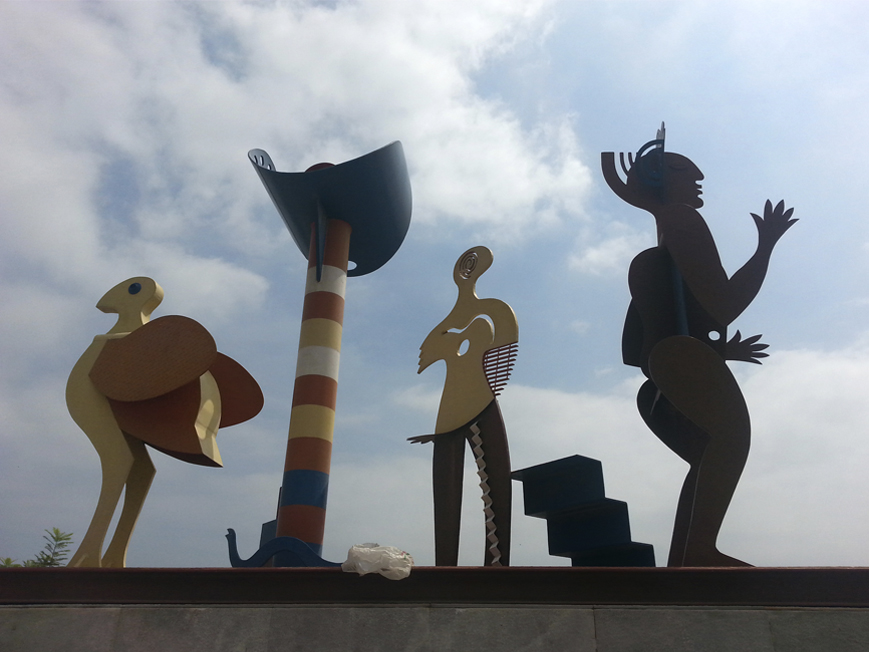
Mythologies, by António Olé | Luanda´s waterfront | 2014 | Nuno Simão Gonçalves (courtesy of the photographer)11 dez 2021 | Hélia Santos
MEMOIRS/ MAPS NEWSLETTER #145 | PT EN
“There were no innocent eyes”
In this brief text, I outline a hypothesis that I discuss in my research work in the framework of the MEMOIRS project: On one side, the postmemory narrative, drawn from the remains of family memories, omits or ignores racial identities on the political board of colonialism; on the other, the gender dimension disappears or is outlined in a sepia collage.
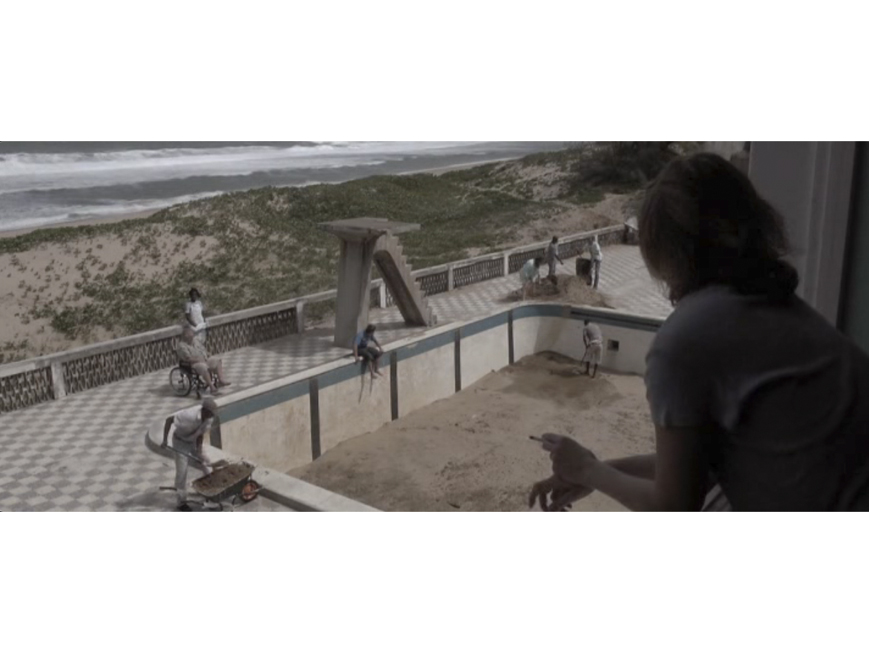
From the hotel window, Rita watches the ‘burial’ by the pool. Image from the movie Yvonne Kane (2015)
Rights reserved to Margarida Cardoso13 nov 2021 | Paulo de Medeiros
MEMOIRS/ MAPS NEWSLETTER #144 | PT EN
Ghost pools: Memory, the End
In a certain sense, it is always too late to talk about the end. Once we do so, more often than not, it has already come by, played itself out, and ushered in something else that might appear new but usually is rather archaic. How can we avoid being distracted into believing the archaic really is what we would imagine as the future? Probably only by being contemporary in an Agambian sense, can one truly see the end before it vanishes.
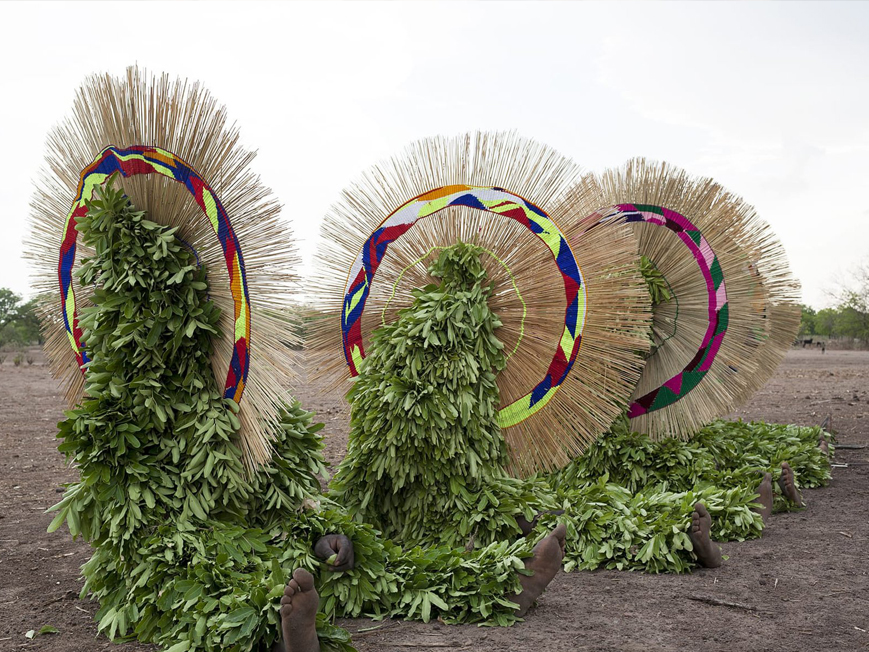
© Mauro Pinto, Sans titre de la série C'est pas facile [courtoisie de l’artiste]30 oct 2021 | Margarida Calafate Ribeiro
MEMOIRS NEWSLETTER #143 | PT EN
EUROPA, je t´aime moi non plus
In the contemporary discussions regarding post-colonial Europe, the concepts of memory and post-memory have taken on growing importance, giving prominence to an insight with great political relevance: colonialism never ends with those who enforced or suffered it. Traces of a colonial mindset impregnate generations to come and it has been passed down through the image of the former coloniser and the former colonised. These characters restage a complex phantasmagoria closely related to the most intimate ghost of the European subconscious: its colonial ghost which manifests itself inter alia in the form of a colonial “transfer of memory” – as racism, segregation, exclusion, subalternity – or in the form of “eruptions of memory”, and thereby questions the very essence of European multicultural societies, shaped by colonial heritage and fed by waves of migration.
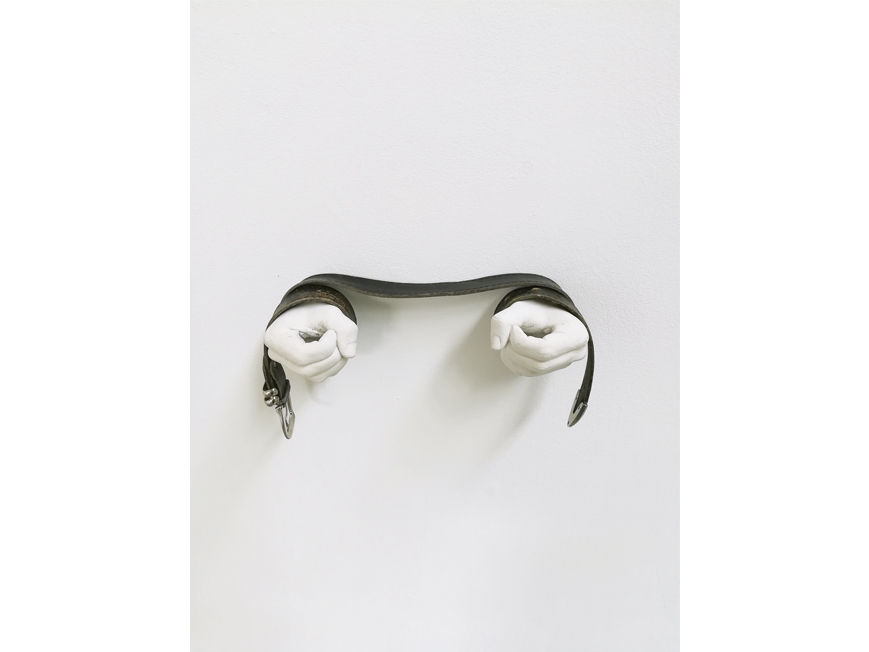
Dada (sculpture, plaster cast of hands and old leather belt, variable dimensions)
Sabrina Belouaar | 2018 © ADAGP, Paris (courtesy of Mohamed Bourouissa)16 out 2021 | António Pinto Ribeiro
MEMOIRS NEWSLETTER #142 | PT EN
The exhibition Europa Oxalá
This is not an African art show. It is an exhibition of works of art produced mainly in Europe by artists living and creating in European cities, artists who consider family memories, originated in African colonial or post-colonial contexts, as a fundamental capital of their artistic production emerging in Europe at the beginning of this century. The exhibition Europa Oxalá is also the ideal time to deconstruct the colonial myth and the post-colonial melancholy designated as “African art”.
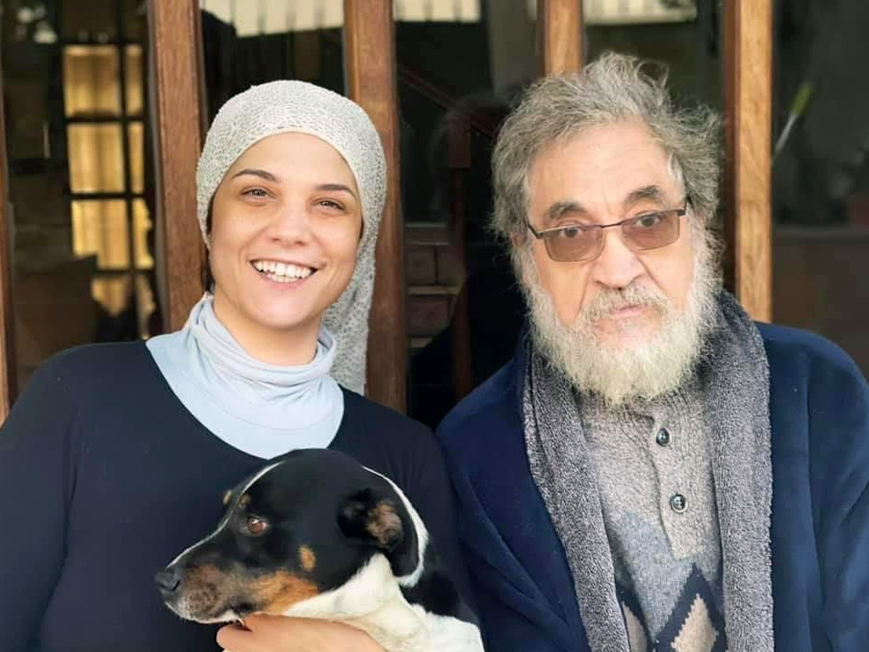
Ritaand family(courtesy of the interviewee)2 out 2021 | Fátima da Cruz Rodrigues
MEMOIRS/ MAPS NEWSLETTER #141 | PT EN
Rita Joana Maia
I was born in Coimbra in 1980. When I was four, five years old, I used to spend a lot of time with war-disabled people because of my father’s profession working for the Armed Forces Disabled Association (ADFA). I heard their conversations. They were so used to my presence that everything came naturally to them. I remember a funny situation where I, Zé Arruda and Lucas were in the elevator. I was about six, seven years old and the elevator stopped. Zé Arruda said "tough luck, Joaninha, even the elevator is disabled".
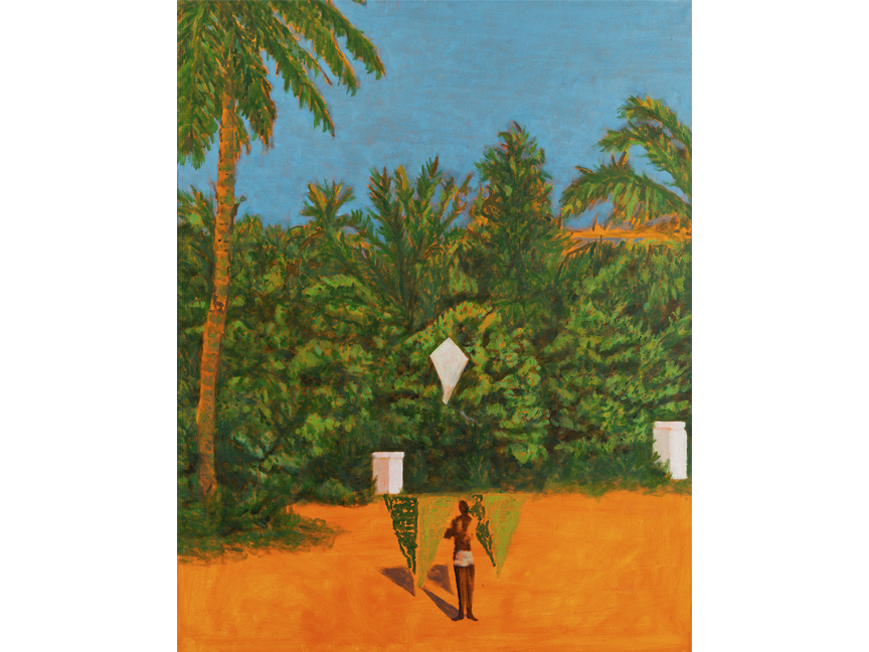
Eugénia Mussa | Solo carrier | 2019(courtesy of the artist)17 set 2021 | Roberto Vecchi
MEMOIRS/ MAPS NEWSLETTER #140 | PT EN
To reconstruct, a not just transitive verb
We live in a time when reconstructing seems to have become the central concern of all, as it generally happens in a post-war period. The pandemic leads to a proliferation of plans and ideas for reconstruction, recovery programmes, plans for new beginnings. It is a typical reaction to certain end-times, when one has lived a kind of end of the world, a catastrophic or final experience that has deeply and destructively come down over a certain time, leaving a posteriori an intention previous to a gesture of overcoming the end or restarting, of turning of the page.

Paulo Faria | A caminho da ordenha das vacas, às seis da madrugada | Landes (França), Agosto de 2020 (cortesia do autor)4 set 2021 | Paulo Faria
MEMOIRS/ MAPS NEWSLETTER #139 | PT
Uma terrina lascada
A terrina estava no alto do armário da sala, onde conversámos naquela tarde, mas só reparei nela quando Amande ma apontou e me explicou a origem daquela peça, já eu me levantara para partir. Uma terrina antiga, grande, elegante, cor de leite com café, leite e café misturados em partes iguais, semeada de flores. Uma asa lascada. Parecia uma canoa maltratada pelas intempéries.
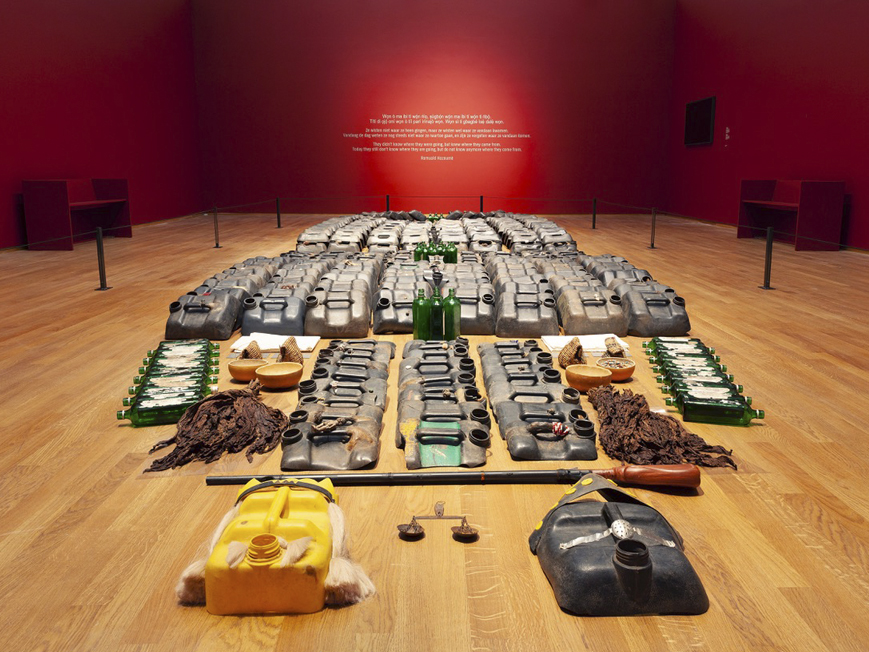
Romuald Hazoumé | La bouche du roi (1997-2005) | (British Museum Col., courtesy of the Rijksmuseum)14 ago 2021 | Paulo de Medeiros
MEMOIRS/ MAPS NEWSLETTER #138 | PT EN
The Fires of Purgatory
Planned since 2017, scheduled to open in February 2021 but delayed by the pandemic, the exhibition on ‘Slavery’ at the Rijksmuseum in Amsterdam drew a long list of expectations. It was finally inaugurated by King Willem-Alexander on 18 May, though it remained for the most part a virtual exhibition, except for arranged school tours, until the museum could open its doors on 1 June to the general public. Not least in that list of expectations was the attempt at seriously engaging with a subject often shunned by many, the founding role of slavery in all of its cruelty and inhumanity in forming the very core of modern Europe in general, and in this particular case, of the Kingdom of the Netherlands.
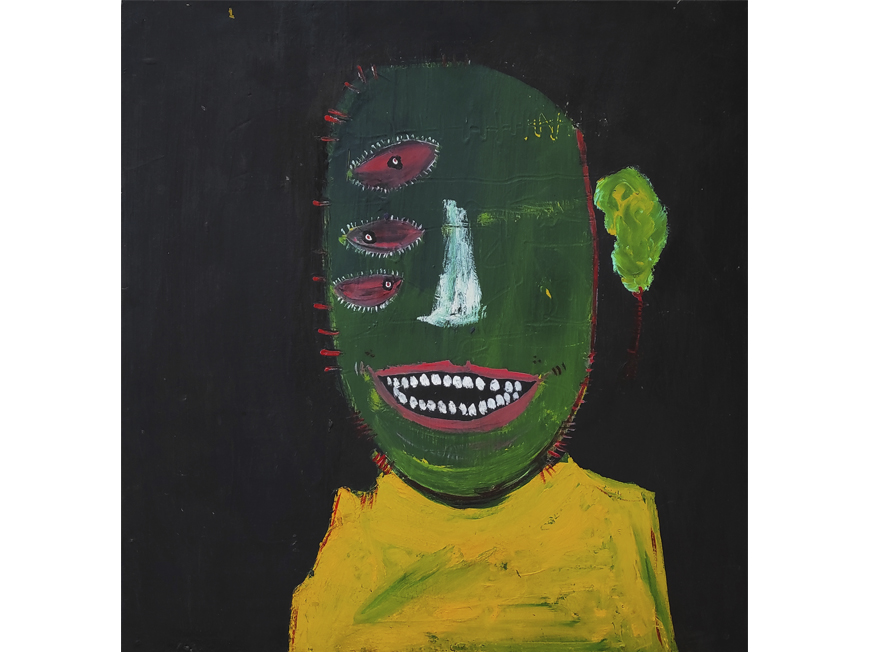
Sannad Sharef Amin | 2020 (mixed technique on wood/ courtesy of the artist and Downtown Gallery)31 julho 2021 | António Sousa Ribeiro
MEMOIRS/ MAPS NEWSLETTER #137 | PT EN
Eppur si muove ?
It was reported on 28 May that the German Government, in a statement by its Foreign Minister, Heiko Maas, officially acknowledged the violent repression of the uprising of the Herero and Nama peoples at the beginning of the 20th century in former German West Africa, Namibia today, as a crime of genocide. The President of the Federal Republic of Germany is willing to visit Namibia and present a formal request for forgiveness. This is no irrelevant news. Historians have long recognised the facts under reference as the first genocide of the 20th century.
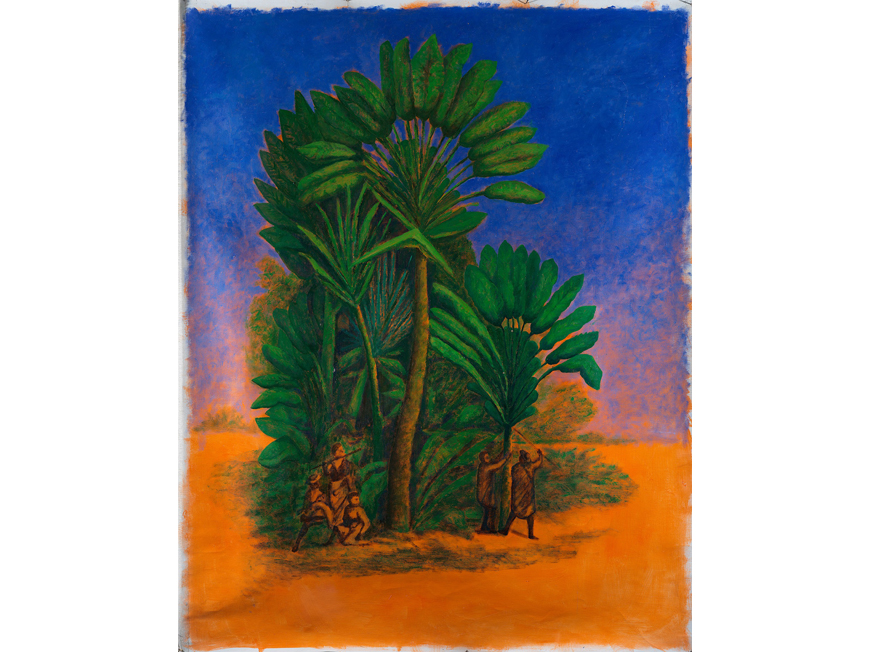
Montagem Vertical | Eugénia Musse | 2020 (courtesy of the artist)17 julho 2021 | Miguel Cardina
MEMOIRS NEWSLETTER #136 | PT EN
The colonial aphasia and the crossroads of memory
The speech of Marcelo Rebelo de Sousa at the official celebrations of April 25 was somewhat surprising. It was not foreseeable that the intervention of the President of the Republic would focus exclusively on an analysis of the history and memory of the colonial past, despite the controversies that arose, months earlier, around the garden of Lisbon’s Praça do Império or the official praise to the late African commando Marcelino da Mata. More than a response to these controversies of the moment, Marcelo’s speech seemed to want to incite a necessary debate.
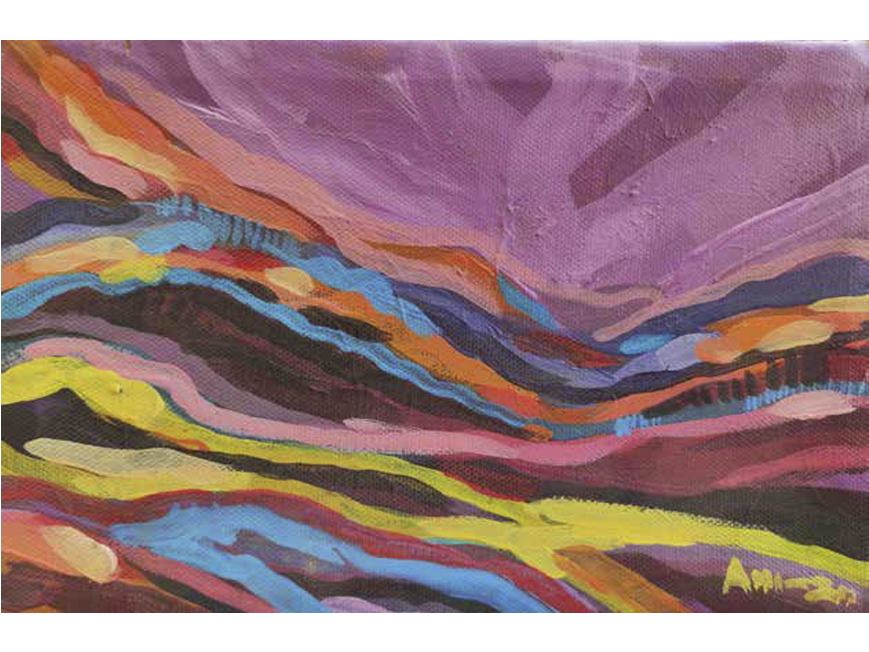
acrylic on canvas | Amna Mahmoud | 2020 (courtesy of the artist)3 julho 2021 | Francisco Mota SJ
MEMOIRS NEWSLETTER #135 | PT EN
MEMOIRS at Brotéria
Between the 5th and the 10th of July, the project Memoirs organizes - in partnership with Brotéria - a summer school that aims at creating tools that may enable participants to analyse and critically reflect upon the postcolonial question in Portugal, Europe and the world. To achieve this goal, it will start from a set of topics that has been occupying and questioning the actuality of the 21st century and its relations with the social, the political, time and space.
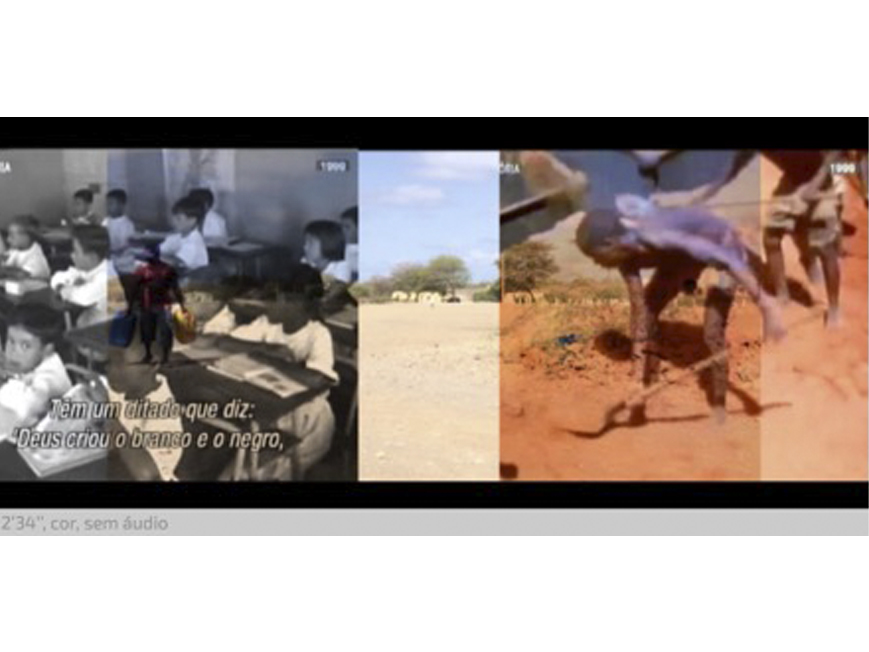
Image from video “Ciclo Perpétuo” | 2021César Schofield Cardoso(courtesy of the artist)19 junho 2021 | Sofia Lovegrove
MEMOIRS NEWSLETTER #134 | PT EN
“Perpetual Cycle”: (re)appearing memories and decolonial practices in Tarrafal, Cape Verde
The former prison of Tarrafal in Cape Verde was created in 1936 by the Estado Novo dictatorship for Portuguese political prisoners. It closed in 1954 and reopened in 1961 to imprison those connected to anti-colonial movements in Portugal’s then African colonies. A third, lesser-known period of use occurred between 1974 and 1975. The Carnation Revolution of 25 April 1974, which marked the end of the Portuguese fascist and colonial regime, triggered a dispute between the PAIGC (African Party for the Independence of Guinea Bissau and Cape Verde) and its local rivals to take control of Cape Verde, leading the PAIGC to reopen Tarrafal in December 1974 to imprison its opponents. Most of the prisoners were released by May 1975, and in July the prison closed permanently.
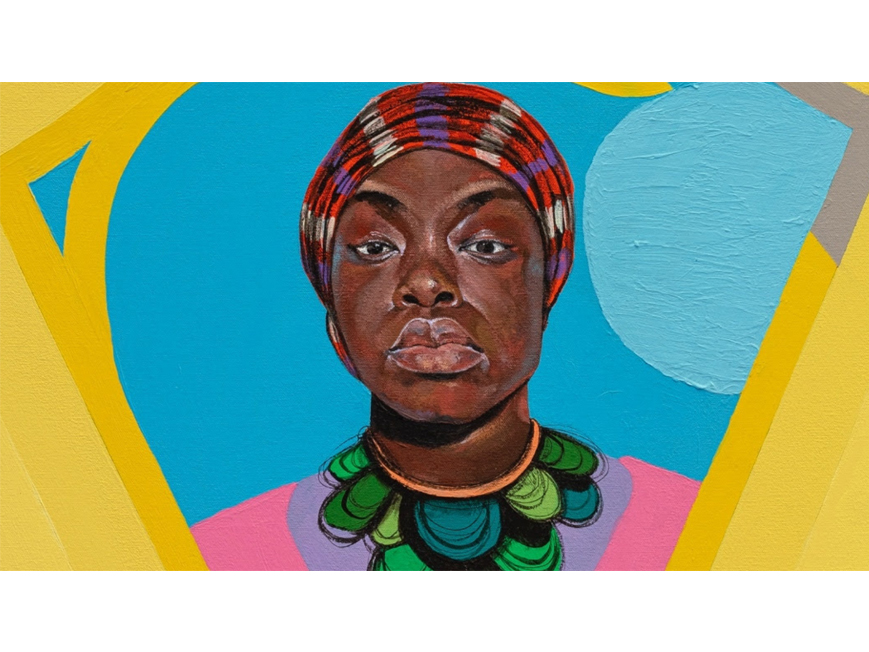
Justina Maria do Espírito Santo | 2021 | Michel Cena7 (courtesy of the artist)5 junho 2021 | Fernanda Vilar
MEMOIRS NEWSLETTER #133 | PT EN
Exu, orixá of black memory
The manifesto-cum-film “AmarElo – It’s All for Yesterday”(1) by Leandro Roque de Oliveira, the rapper better known as Emicida, begins and ends with this Yoruba proverb about Exu, an orixá who can kill a bird yesterday with a stone thrown today. Exu is a transitional element, the last orixá and the first human, who makes communication between the heavens and the earth possible. In the Christian Brazilian imagination, Exu is interpreted as the devil. However, in another narrative, different to the Official History of Brazil, Exu reinvents memory to rewrite the history of Brazil from the perspective of black people. The film condemns the damage done by slavery, and by abolition without reparations, as well as the politics of whitening that has been responsible for perpetuating a racial chasm in the Brazilian population.
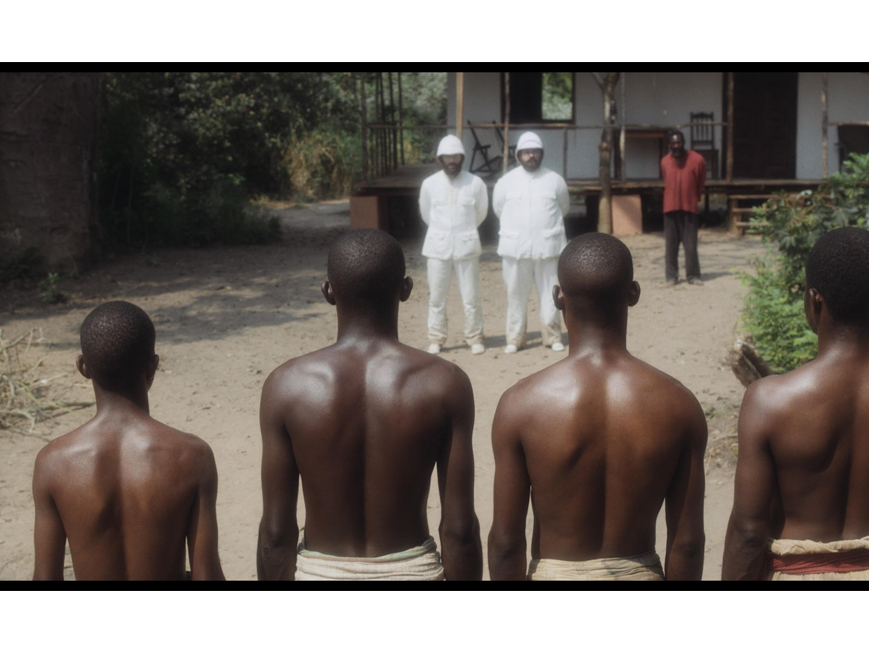
Posto avançado do progresso | 2014 | Hugo Vieira da Silva (courtesy of the director)29 mai 2021 | António Pinto Ribeiro e Margarida Calafate Ribeiro
MEMOIRS NEWSLETTER #132 | PT EN
Ghosts of the Empire
Empires are always fictions for those who manage them from the metropolises, for those who dream of them from failed lives, and for those who are on the other side, who breathe daily oppression and imagine a distant but omnipresent and powerful metropolis. These are the images that give the apparent reality to this fiction. Images constructed by literature, cinema, photography, museums, exhibitions, art and popular stories contribute to the creation of imperial fantasies that today approach us in the form of ghosts.
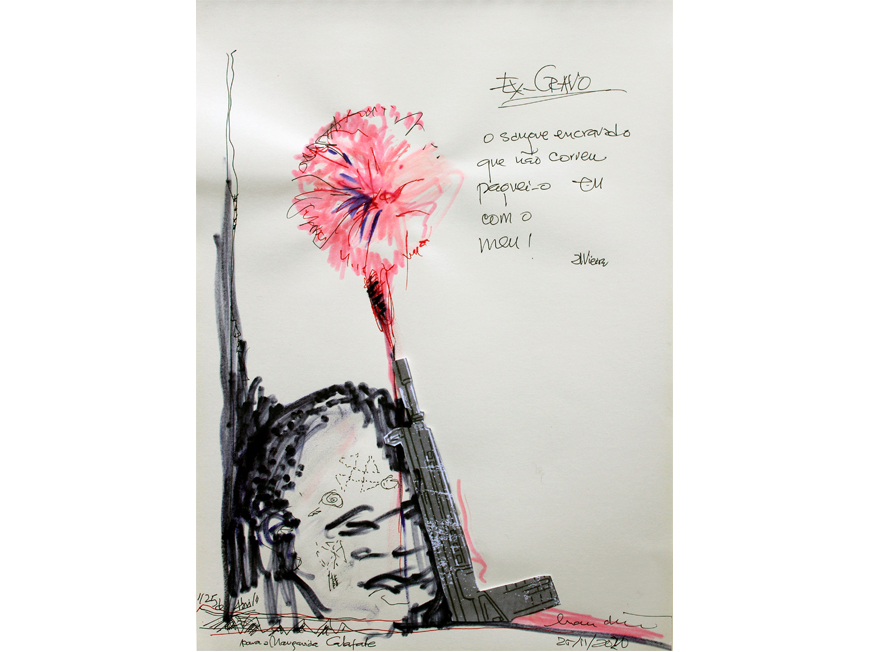
Ex-Cravo | 2020 | José Luandino Vieira(courtesy of the writer)22 mai 2021 | Bruno Sena Martins
MEMOIRS NEWSLETTER #131 | PT EN
The garden of the Empire Square and the faithful gardeners of colonialism
It was in the first months of 2021, the year when space exploration entered a new phase with the landing of Perseverance on Mars, when the garden of the “Praça do Império” in Lisbon surfaced in the public debate in the wake of a lively controversy. Taking into account the turmoil that the year 2020 brought to street furniture of colonial-revivalist taste, to the evident annoyance of doves already accustomed to the statues of Robert E. Lee, Cecil Rhodes, Christopher Columbus or Edward Colston, we would perhaps expect an outbreak of critical revisitation to the vast monumental decoration left over from the Exhibition of the Portuguese World of 1940.
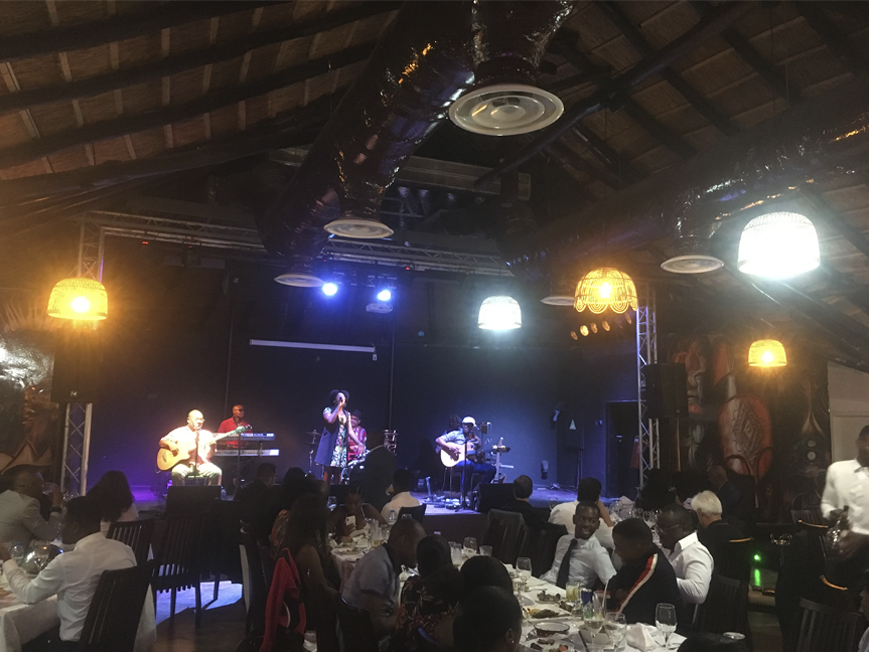
Banda Maravilha | Espaço Cultural Chá de Caxinde | Luanda | 2019 | courtesy of the author8 mai 2021 | André Castro Soares
MEMOIRS NEWSLETTER #130 | PT EN
In a semba poem, in a semba song, in a semba act
Listening to semba communities of practice as intangible heritageWith the inclusion of the pre-colonial cultural landscape of Mbanza Congo on the World Heritage List in 2017, Angola had its first entry into UNESCO’s supranational heritage race. In 2018, the Angolan Minister of Culture stated a desire to begin the process of patrimonialization of semba. This was welcomed in the Angolan press and by musicians and sembistas.
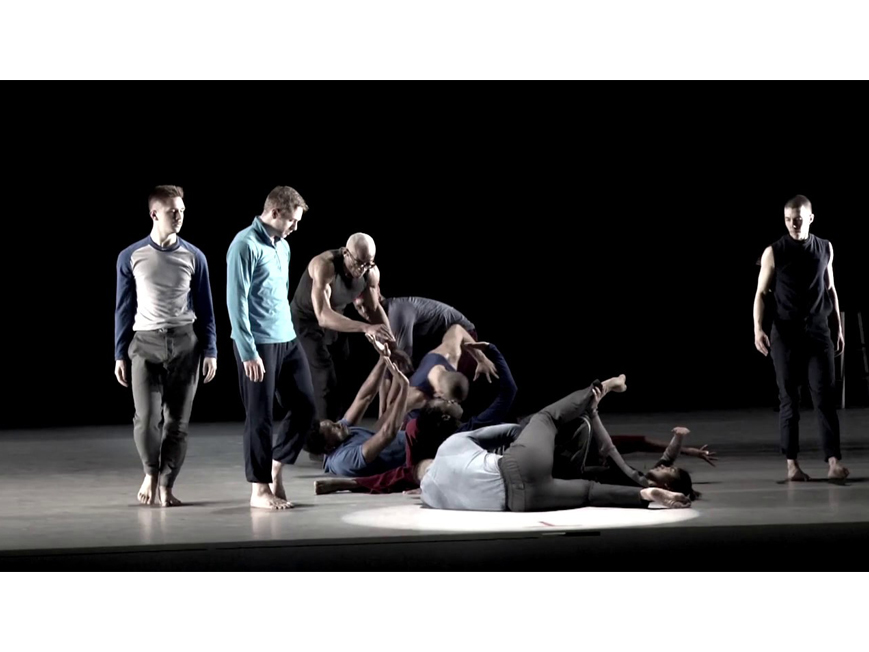
The Problem | Bill T. Jones, Janet Wong | 2020 | Holland Festival |courtesy of the artists24 abr 2021 | António Pinto Ribeiro
MEMOIRS NEWSLETTER #129 | PT EN
What is the problem
Bill T. Jones (born 1952) is an American black dancer and choreographer who in 1982, together with his partner Arnie Zane (1948-1988), a white artist, founded the Bill T. Jones/Arnie Zane Dance Company (1948-1988). Present in Europe in festivals and theatre circuits, the company became particularly well-known with the presentation of the work Still/Here (1994) that, at the time, came from the US wrapped in a controversy promoted by the sensationalist media who accused the choreographer of opportunism because the work in question resulted from research conducted on patients suffering from terminal diseases such as AIDS, leukemia and cancer.
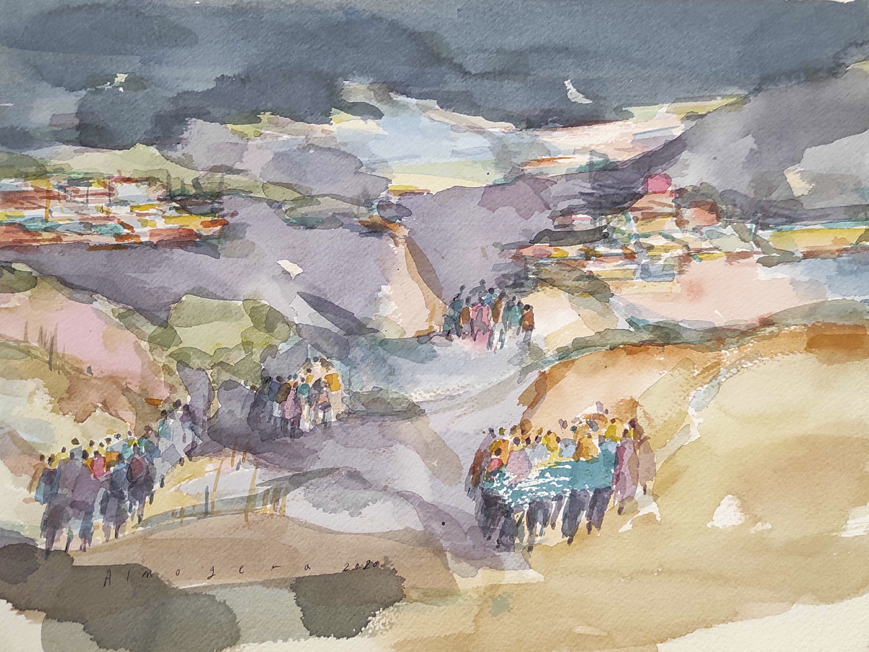
acrílico sobre papel |Almogera Abdulbagi | 2020 | courtesy of the artist and the Downtown Gallery10 abr 2021 | Felipe Cammaert
MEMOIRS NEWSLETTER #128 | PT EN
Fires and victims: a first approach to Colombian post-conflict postmemory
In a recent newspaper article, published in October 2020, Ricardo Silva Romero (Bogotá, 1975), one of the most important writers and columnists in the Colombian press today, reflected on the place of his generation in the - unfortunately long - history of Colombian violence.
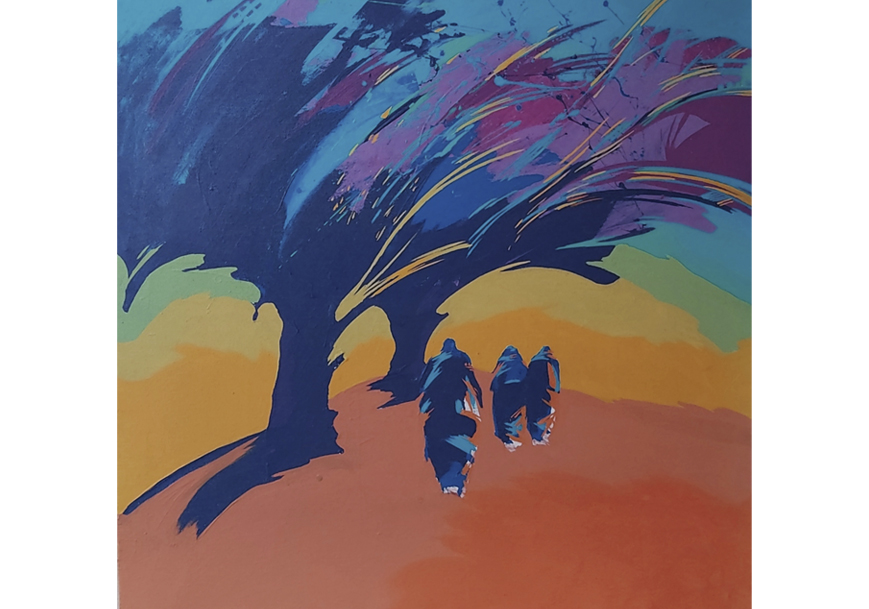
acrylic on canvas | Bakri Ajack | 2020 | courtesy of the artist and Downtown Gallery27 mar 2021 | Roberto Vecchi
MEMOIRS/ MAPS NEWSLETTER #127 | PT EN
Does memory teach or can memory be taught?
The relationship between memory and education is demanding, to say the least. Educating means, above all, sensitizing about how to learn from the past and, thus, thinking about its updating, also through specific disciplines, such as History. But is this so immediate consideration sufficient, which assumes an obvious contiguity between what we have inherited from the past and what we transmit as knowledge? The answer is complex.
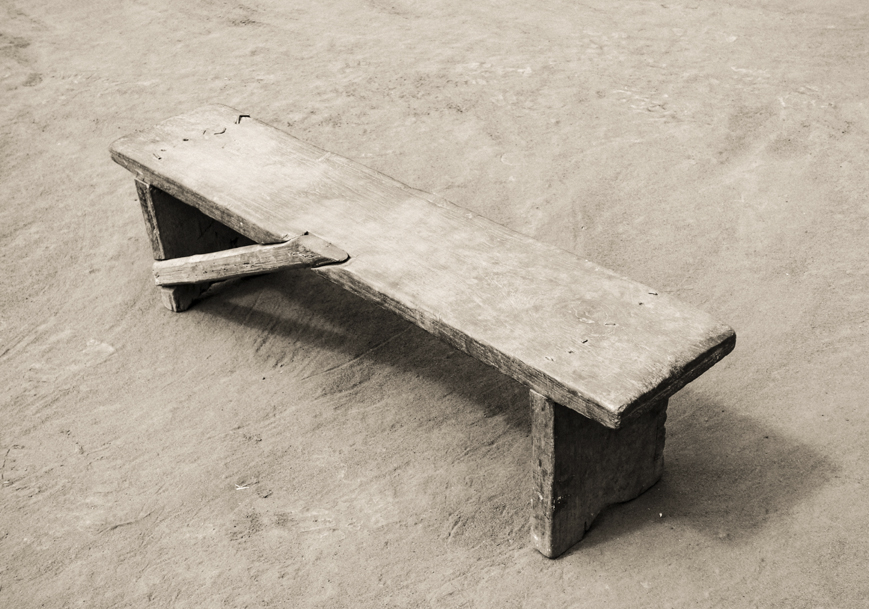
author’s photo | Muaua | 2019 | cortesy of the author13 mar 2021 | Paulo Faria
MEMOIRS/ MAPS NEWSLETTER #126 | PT EN
This is not your war (3)
Before abruptly leaving the room, Adriano shoots at me:
— I’m the kind of guy who, if I can hear a tap dripping, I can’t sleep until I’ve fixed it. You know why? Because I was often thirsty in the bush, in Guinea. If I see that someone has left a light on, I go back and turn it off. You know why? Because life was very hard in the war.
This is Adriano’s war: a tap dripping on his temple until each drop is like a hammer, a crackling lamp with the filament ready to burn out, that casts a bloody light in his eyes. Things that do not let him sleep.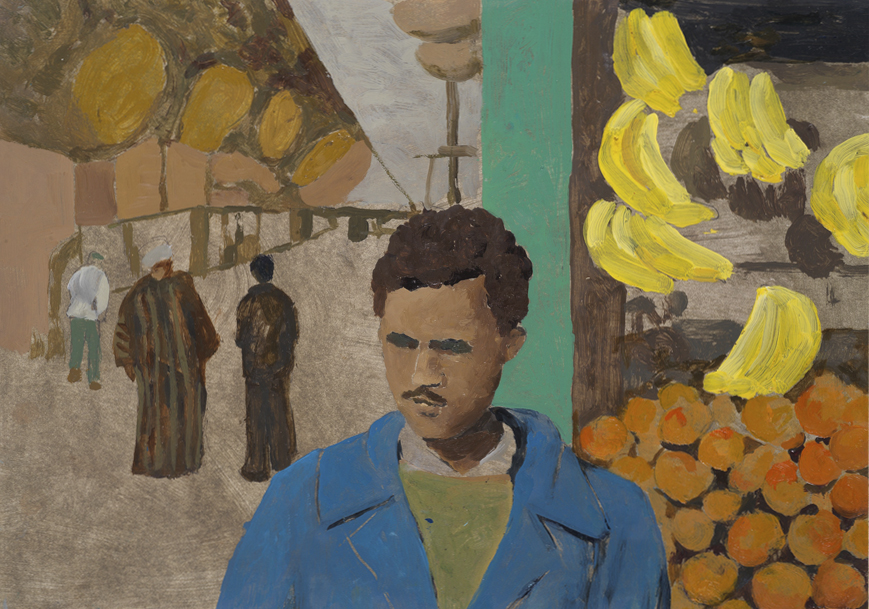
Mercado | Eugénia Mussa | 2020 | courtesy of the artist27 fev 2021 | António Sousa Ribeiro
MEMOIRS/ MAPS NEWSLETTER #125 | PT EN
The colonial unconscious
It is a commonplace to say that the production of memory inevitably and concomitantly carries with it the production of forgetfulness. There are many forms of forgetfulness, the most insidious of which is undoubtedly the erasure of memory, the rewriting of the past as part of a deliberate strategy of intervention in the present. The most extreme form of this erasure is negationism or revisionism, for example, the denial of the Holocaust, which, for good reasons, the legislation of various countries refers to the criminal sphere. There are, however, other forms of forgetfulness, much more innocent, but whose consequences are equally profoundly negative, since they deprive us of instruments of justice and shape our present in an impoverishing and exclusionary way. One of these forms, of manifest actuality in the current Portuguese public debate, is determined by what I call the colonial unconscious
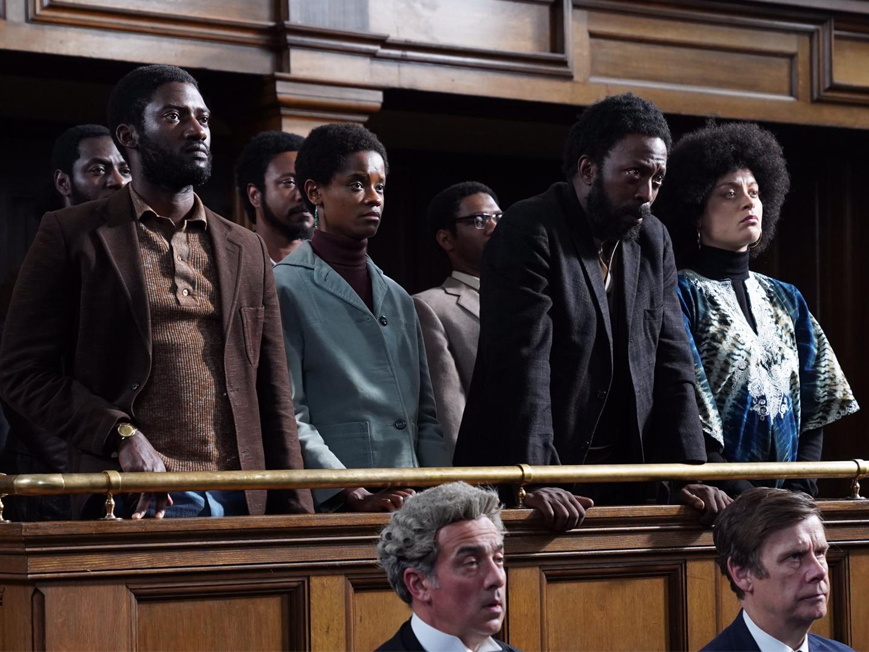
Small Axe (anthology), Steve Mc Queen | 202013 fev 2021 | Paulo de Medeiros
MEMOIRS/ MAPS NEWSLETTER #124 | PT EN
Against the Erasure of Memory: Shoring up the Foundations
Reflecting on the function of the Humanities in the first of the 2014 Tanner Lectures given at Yale University, Paul Gilroy sounded a realistic note when he considered the contrast between the importance, and the relative scarcity, of studies on how racism deeply structures our society and how it affects us all and our notions of humanity.
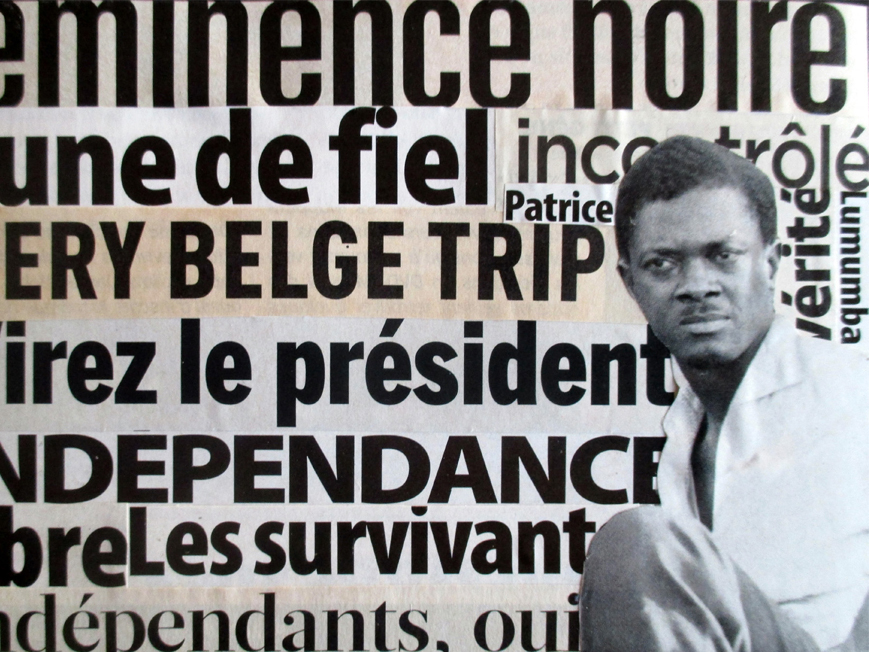
Lisette Lombé, in Black Words, Brussels, Arbre | 2018 | courtesy of the artist30 jan 2021 | Margarida Calafate Ribeiro e Inês Nascimento Rodrigues
MEMOIRS/ MAPS NEWSLETTER #123 | PT EN
Patrice Lumumba, 60 years after | Margarida Calafate Ribeiro
The 17th of January 2021 marks the 60th anniversary of the assassination of Patrice Lumumba, the first prime minister of independent Congo (Democratic Republic of Congo) and one of the great African leaders of the Sixties. The historical significance of this murder entails local, regional and global factors that range from internal rivalries and complicities to the importance of Congo as a reality and an image in Africa; from the context of African countries struggling for independence to power conflicts among the colonizing powers; from the relationships among the ones and the others in the context of the Cold War, whose consequences make themselves felt until today. As a matter of fact, this was a murder announced by a speech in the day of independence.
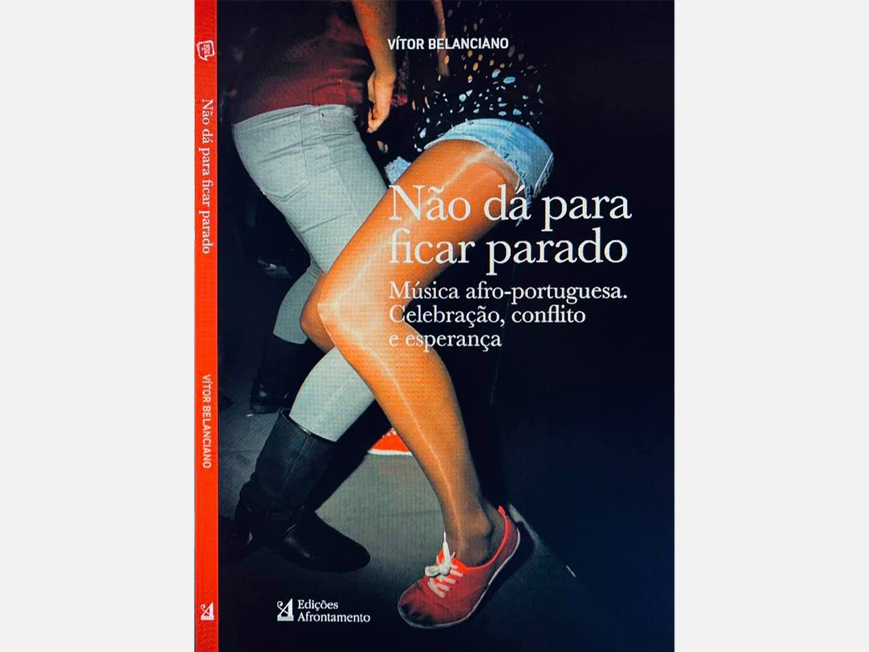
book cover | 2020 | courtesy of the authorMEMOIRS/ MAPS NEWSLETTER #123 | 02 | PT EN
The history and the protagonists of Afro-Portuguese music | Inês Nascimento Rodrigues
Não dá para ficar parado. Música afro-portuguesa. Celebração, conflito e esperança [To stand still is not an option. Afro-Portuguese Music. Celebration, Conflict and Hope], by Vítor Belanciano, is the fifth and most recent book in the series ‘Memoirs – Filhos do Império’ [Memoirs – Children of Empire] published by Edições Afrontamento. It tells the story of a wide array of artists, from General D, Chullage and Djamal, to Buraka Som Sistema, Sara Tavares, Allen Halloween, Mindy Guevara, Throes + The Shine, Batida or Scúru Fitchádu, Dino d’ Santiago and the DJs of Príncipe Discos. The journalist and critic from the newspaper Público lays out a different cartography of contemporary Portuguese music, putting ‘Afro-’ centre stage.
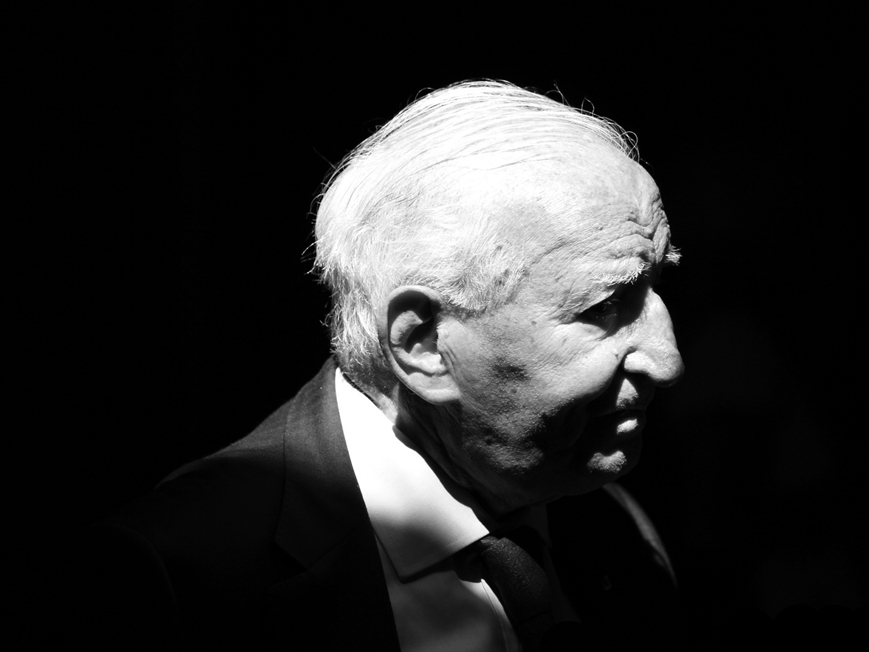
Eduardo Lourenço | 2014 | Nuno Simão Gonçalves (courtesy of the photographer)16 jan 2021 | Roberto Vecchi et Paulo Faria
MEMOIRS/ MAPS NEWSLETTER #122 | PT EN
The last lesson of Eduardo Lourenço | Roberto Vecchi
In the days following the passing away of Eduardo Lourenço, and despite considerable commemorative efforts, the impossibility to encompass an extremely elusive work clearly emerged. The question of the nature of this work and, in particular, of defining the ex-centric status of a scholar like Eduardo Lourenço became abundantly evident: definitions suffering from profound insufficiencies surfaced in public acts and in the media.
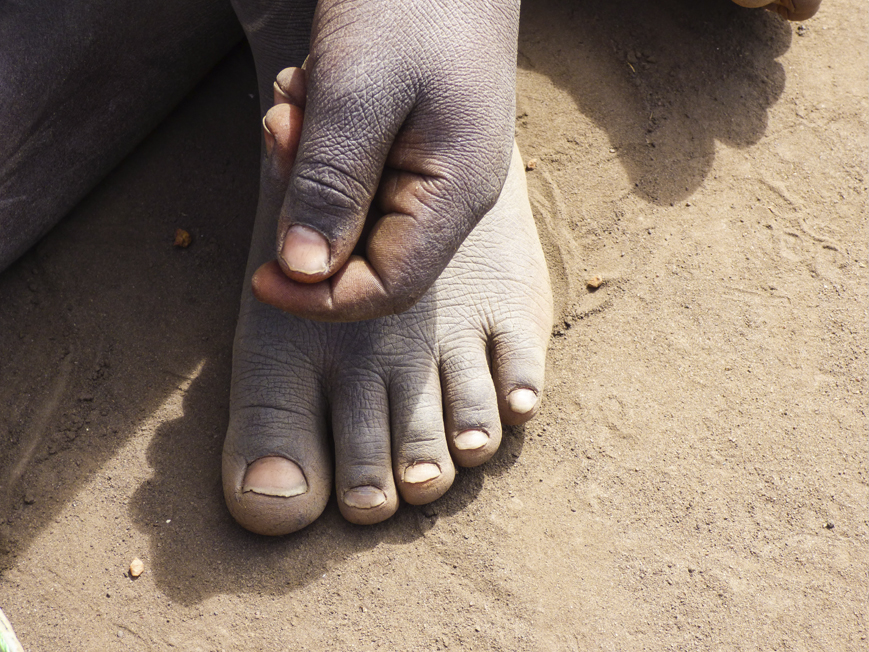
Mariamo Miguel | 2019 | Paulo Faria (courtesy of the author)MEMOIRS/ MAPS NEWSLETTER #122 | 02 | PT EN
This is not your war (2) | Paulo Faria
A month ago, in our first conversation, in this same cubicle in a shopping centre in Costa da Caparica, Maurício (Guinea, 1972-1974), an engineer in his civilian life, did not mention the electric chair in Bula. He told me other war stories. Lots of them. Sitting around the table with him were Marco Mané and other veterans. In that meeting, I was looking for the same thing that brought me here today: exemplary stories.

Janvier 2021
Dear readers of the Memoirs Newsletter,
Em janeiro de 2021 o projeto MEMOIRS (ERC) entra no seu ano final de investigação e de produção de conhecimento, associando-se ao projeto MAPS - Pós-memórias europeias uma cartografia pós-colonial (FCT). Programamos a publicação de vários livros e artigos, atividades de formação avançada e um colóquio.
A partir de Outubro de 2021 até final de 2022 o projeto centra-se na exposição internacional Europa Oxalá que terá início em França no MUCEM, em Marselha, e ao longo de 2022 estará em Lisboa, na Fundação Calouste Gulbenkian e no Africa Museum, em Tervuren, na Bélgica. O Maps evoluirá para a criação de novos instrumentos de investigação e disseminação.
Para este ano em periodicidade bimensal, a Newsletter Memoirs estará como sempre atenta à atualidade e desenvolverá alguns temas selecionados com maior atenção, afirmando sempre o compromisso do projeto Memoirs e Maps com uma política pública de investigação.
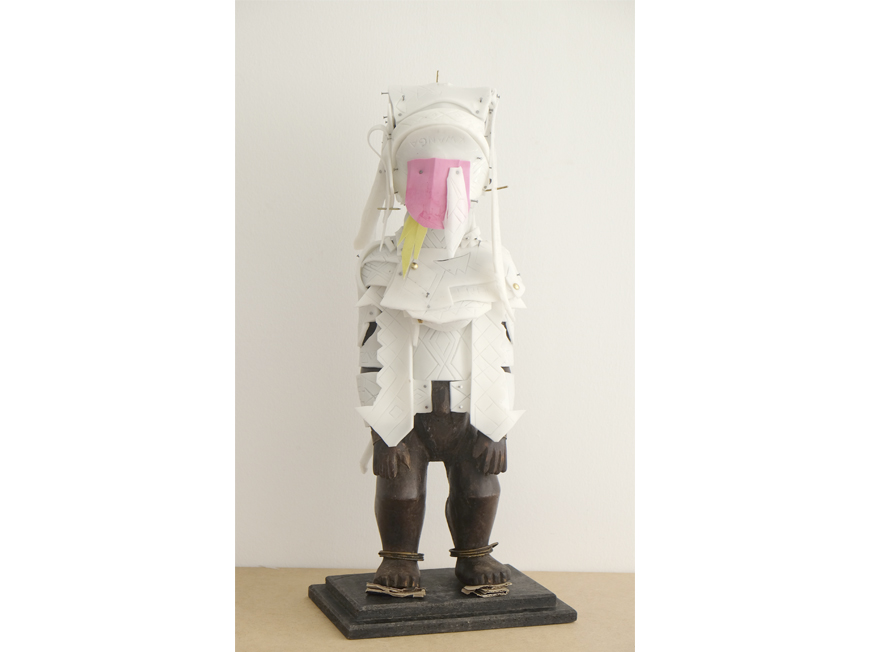
Untitled (mixed media, wood, silicone rubber, metal) | 2019 | John K. Cobra (courtesy of the artist)26 dec 2020 | António Pinto Ribeiro
MEMOIRS NEWSLETTER #121 | PT EN
Works of art and the condition of post-memory (conclusion)
In In Darkest Africa (1890) the explorer Henri Morton Stanley relates an encounter with King Roumanika. The king makes him visit one of the rooms in his palace. The room is, in fact, a museum. Its description reveals it to be an important archive of objects from various parts of Roumanika’s nation, organized in a very methodical way.
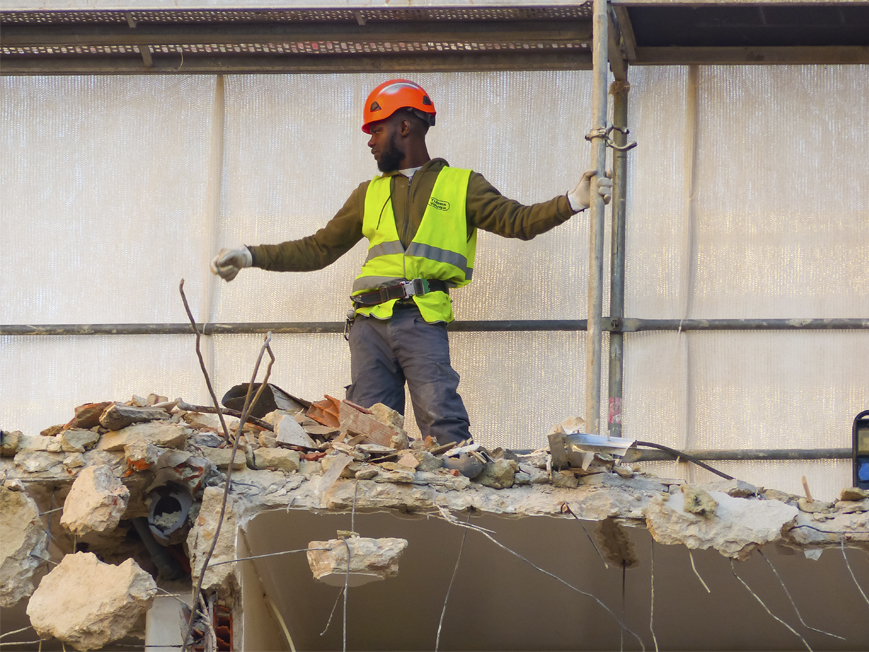
Worker | 2019 | Paulo Faria (courtesy of the author)12 dec 2020 | Paulo Faria
MEMOIRS NEWSLETTER #120 | PT EN
This is not your war (1)
I am already sitting at the table when the stranger enters the room. It is a windowless, triangular cubicle in a commercial centre on the Costa da Caparica. I am due to meet some veterans from the Colonial War, friends of a former soldier that I know. His name is Marco Mané, and he is our host — he is the manager of this shopping centre and a former African commando in Guinea-Bissau. I’ve been doing this for several years. I talk to one veteran, who knows others, who know others. I am searching for new war stories, new details, new voices to join the chorus in my head. I’m making a choral symphony, the choral symphony of our African war.
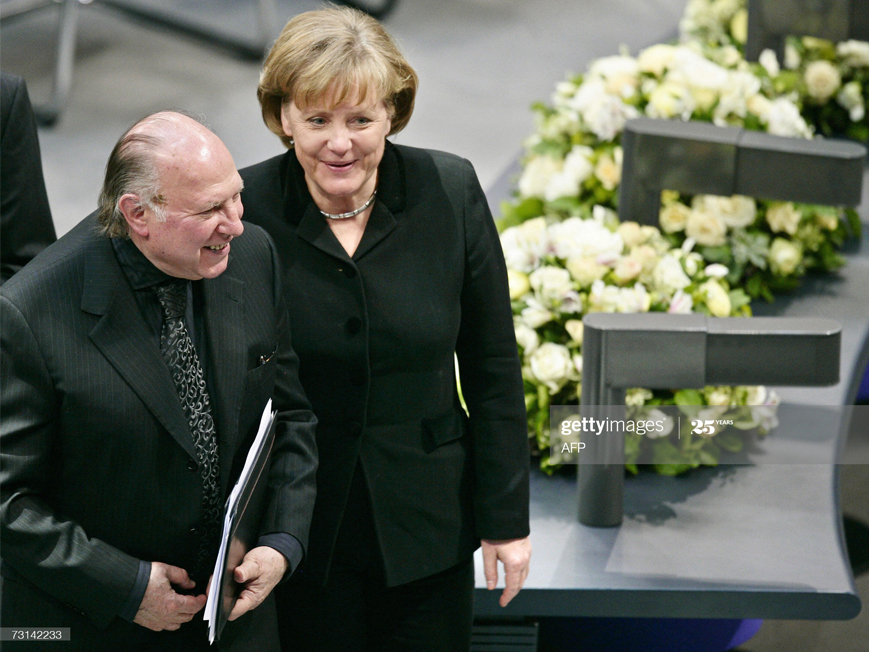
Nobel Hungarian writer Imre Kertész with German Chancellor Angela Merkel
| 2007 | Axel Schmidt/DDP/AFP via Getty Images28 nov 2020 | António Sousa Ribeiro
MEMOIRS NEWSLETTER #119 | PT EN
Who owns...?
The title of one of the most outstanding essays by Imre Kertész simply formulates the question “Who Owns Auschwitz?”. Although it is quite short, this is an essay which confronts in an exemplary manner the question of the persistence of memory and of the role of subsequent generations in the preservation of memory.
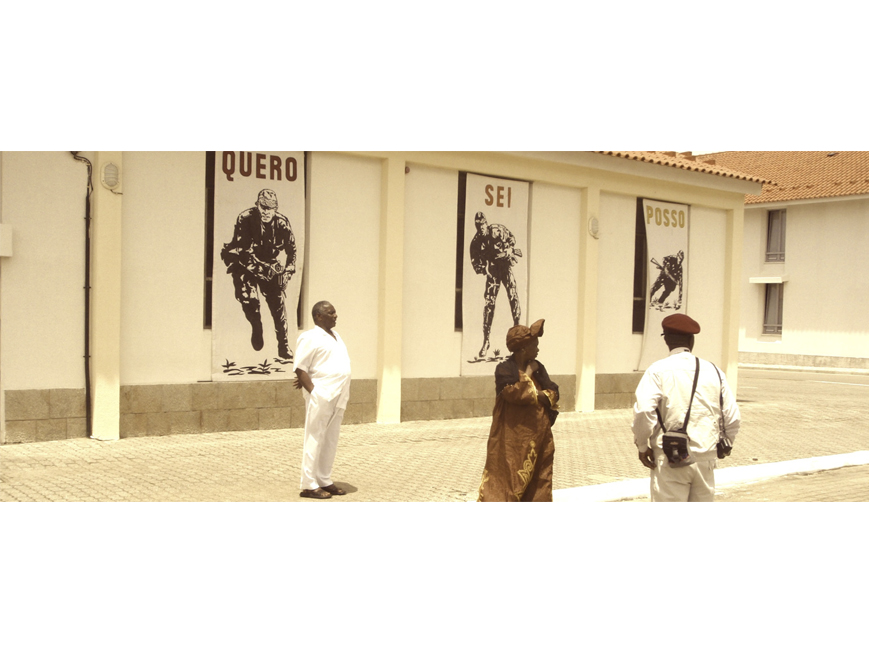
Encontro dos Comandos |29 July 2008 | author´s photo14 nov 2020 | Fátima da Cruz Rodrigues
MEMOIRS NEWSLETTER #118 | PT EN
A tribute to Amadú Bailo Djaló, African veteran of the Portuguese Armed Forces
To date, Amadú Bailo Djaló is the only African veteran of the Portuguese Armed Forces (FAP) who has published a book about his experiences in the Portuguese Colonial War. Amadú was 70 years old when his book Guineense, Comando Português (1964-1974) was published by the Associação de Comandos in 2010. The book was based on one of his diaries. He had at least two more that he wanted to publish one day.
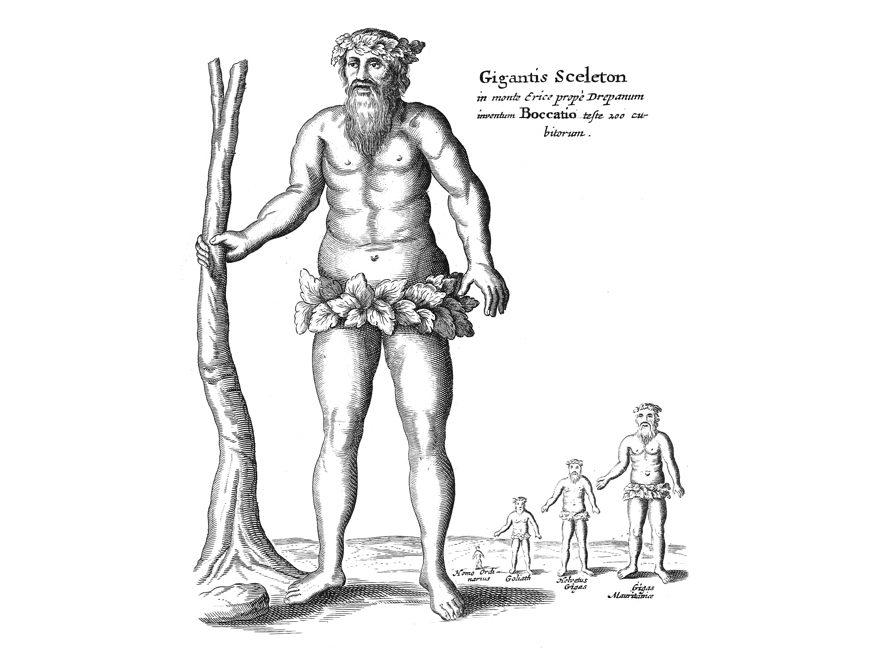
Illustration from Mundus subterraneus | 1665 | Athanasius Kircher (Wikimedia Commons)31 out 2020 | Felipe Cammaert
MEMOIRS NEWSLETTER #117 | PT EN
The Seeming Giant: from rewriting racism to the art of post-memory
One of the figures that most fascinates me in children’s literature is that of the Seeming Giant. Mr. Tur Tur – as he’s called – is a character created by the German writer Michael Ende (the famous author of children’s bestsellers like The Never-ending Story and Momo). He appears for the first time in the book Jim Button and Luke the Engine Driver, published in 1960. Several years ago, when I read the story of Jim Button to my daughter, she listened with astonishment and curiosity to Ende’s tale, and the Seeming Giant was one of the figures that most piqued her curiosity.
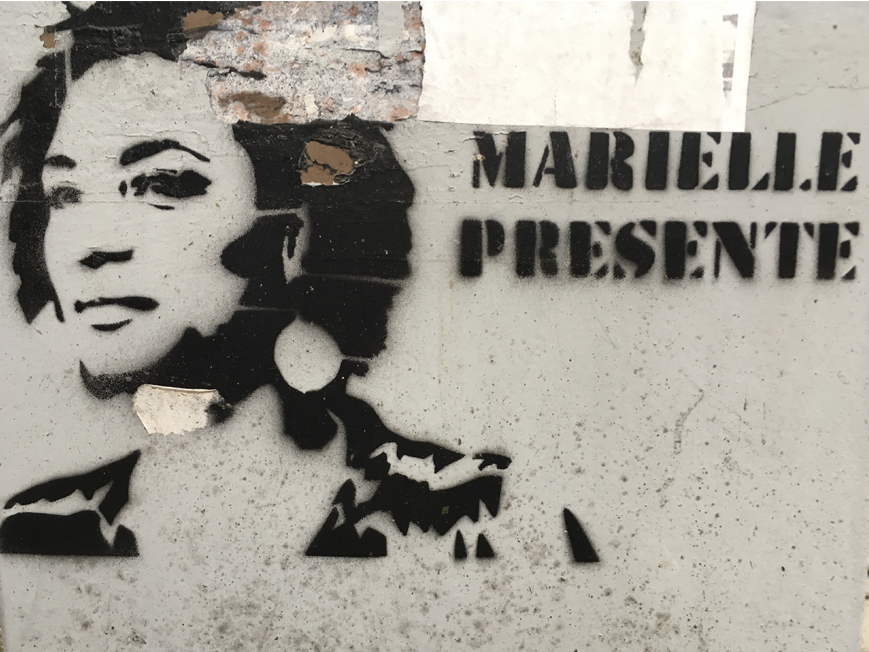
14 March | 2019 | Photo from the personal archive of Paulo de Medeiros17 out 2020 | Paulo de Medeiros
MEMOIRS NEWSLETTER #116 | PT EN
With a Mouth Full of Blood: On the Responsibility of Intellectuals (3)
When Misan Harriman posted a photograph he had had taken of a young woman, Darcy Bourne, holding up a sign at a Black Lives Matter march in London in June 2020, he might or might not have guessed the impact that image would have. Leaving aside the specific visual attributes of the image that make it appealing on both a political as well as a simply aesthetic level, the message carried in the sign specifically addresses one of the thorniest issues concerning the struggle against racism.
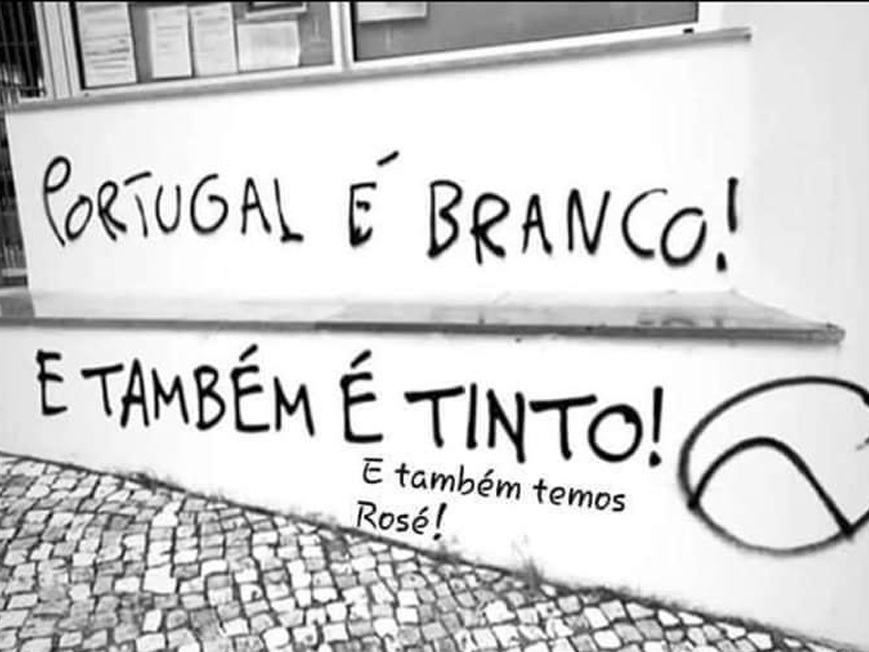
Grafitti | Eça de Queiroz School, Lisbon | anonymous photo3 out 2020 | Bruno Sena Martins
MEMOIRS NEWSLETTER #115 | PT EN
Who defines what memories fit in Europe?
In pursuit of expansion, the far-right has been astute in leveraging a simplistic caricature of identity politics, casting it as a threat to old ways of life, an apology for political correctness and an attack freedom of expression. In this context, a reflection on the place of ancestry, memory and identity in contemporary politics seems crucial. The far-right has grown as a parasite upon neoliberal accumulation, which has created diminishing socioeconomic perspectives for large parts of the population. This situation has favoured right-wing populisms that declare themselves to be anti-systemic while they in fact protect capitalist extraction.
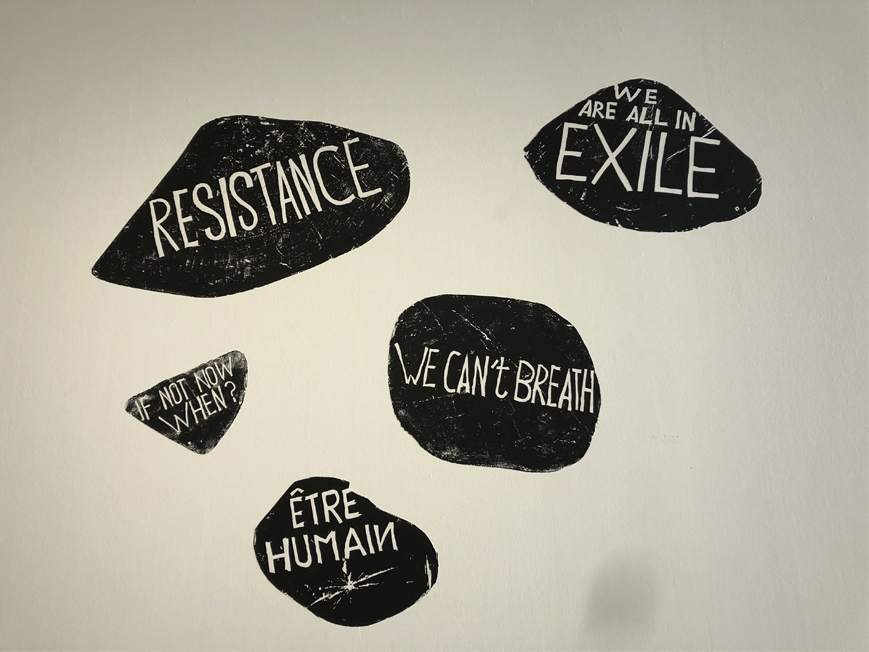
Stamps part of the work Rédemption | 2012/2014 | Barthélémy Toguo
19 set 2020 | Fernanda Vilar
MEMOIRS NEWSLETTER #114 | PT EN
The resilience of resistance
During lockdown, in the coronavirus pandemic of 2020, social tensions did not disappear. Although, to some extent, access to public space was restricted for public meetings and political mobilization, acts of racism and police violence nevertheless triggered the Black Lives Matter movement. The movement crossed borders, and demonstrations of solidarity emerged in countries including France, Brazil and Portugal, where similar crimes against the non-white population systematically continue.
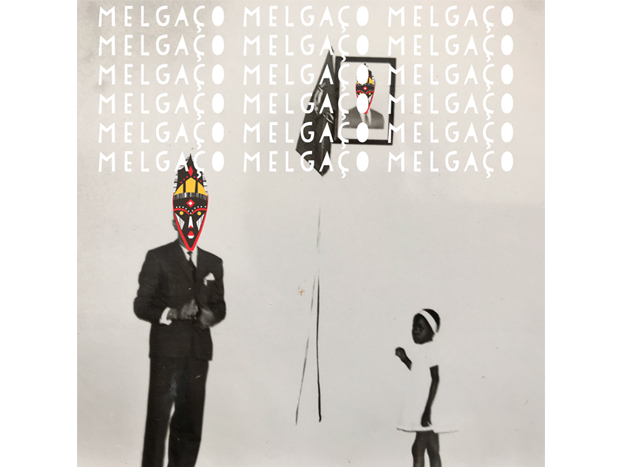
Tchandisila (Herança): Melgaço | 2019-10 | Yara Monteiro (cortesia da artista) | fotografias originais de arquivo familiar (anos 60), com colagem digital5 set 2020 | Roberto Vecchi
MEMOIRS NEWSLETTER #113 | PT EN
The guilt of History
On the 30th June 2020, on the 60th anniversary of Congo's independence, in a letter to the Congolese president, Félix Tshisekedi, King Philip of Belgium for the first time officially apologized (expressing “les plus profonds regrets”) for the “colonial wounds” that Belgium inflicted on its former African colony. The king’s gesture is part of a (complex, tumultuous, and more reactive than reflective) revisionist movement in relation to historic injustices. The movement has manifested through acts of iconoclasm against the monuments that today symbolize and consecrate historical violations of rights.
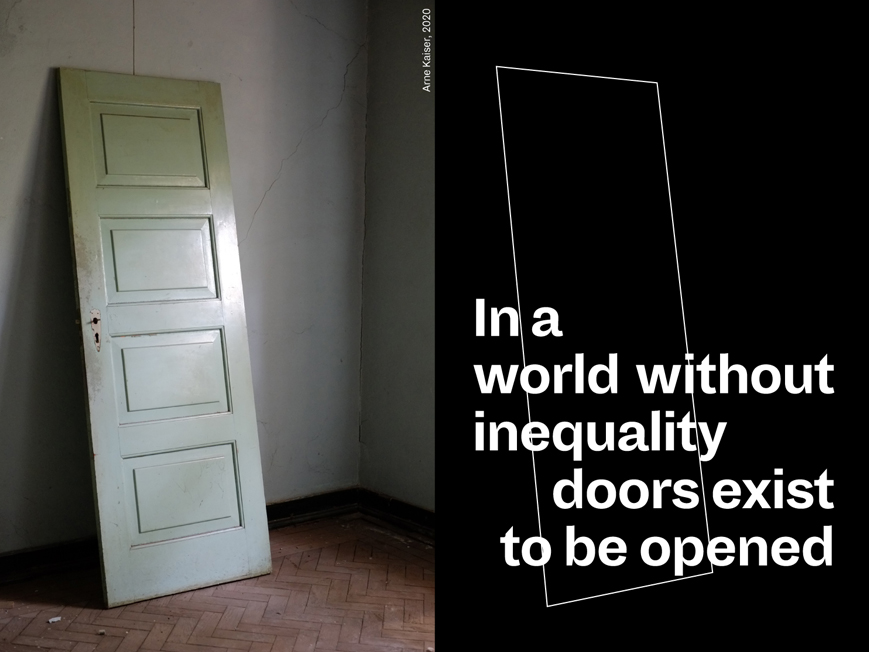
Arne Kaiser | 2020 (courtesy of the artist)8 ago 2020 | Arne Kaiser
MEMOIRS NEWSLETTER #112 | PT EN
In a world without inequality doors exist to be opened
We carry in us a variety of experiences. Many are locked up and are just memories, like a still life. Others come to life, gain perspective, and through creativity, doors are opened ... and an infinite number of possibilities begins to throb. Obstacles exist, we hear about them ... in the minds of some people.
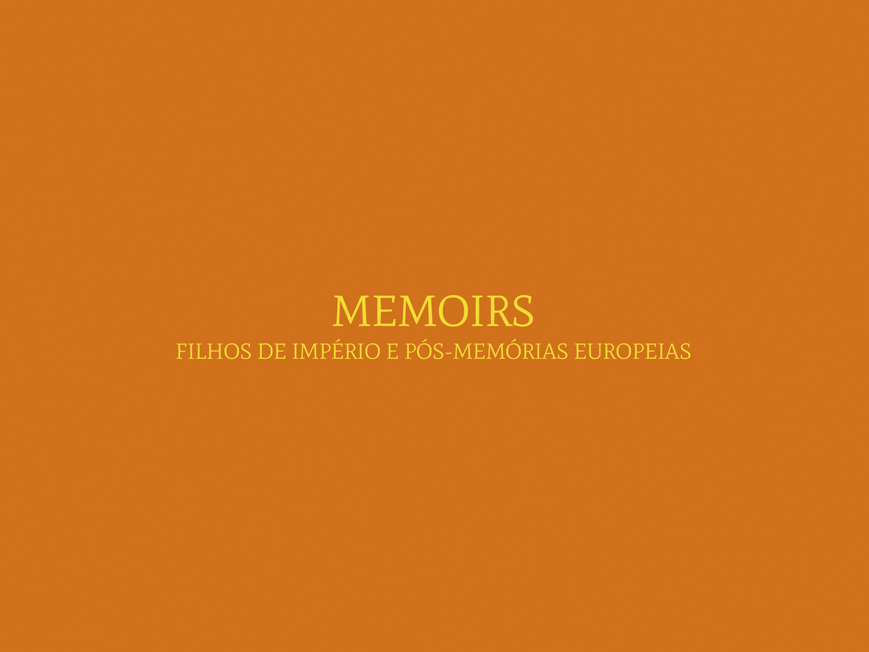
August 2020
Dear readers of the Memoirs Newsletter,
The MEMOIRS project is entering its final phase of research and knowledge production. This has resulted in the production of various works, essays, articles, and cultural programs, which we believe reinforces the commitment of this research group to public research policy.
In addition to what has already been disseminated to the public since the beginning of the project, it is in the process of finalizing research, in which multiple works currently in progress will be published.
The Newsletter includes unpublished articles exclusively written for it, with a consistent degree of scientific and cultural quality. Starting from September, the Newsletter will have a bimonthly periodicity. In August, the Newsletter will circulate only on the 8th.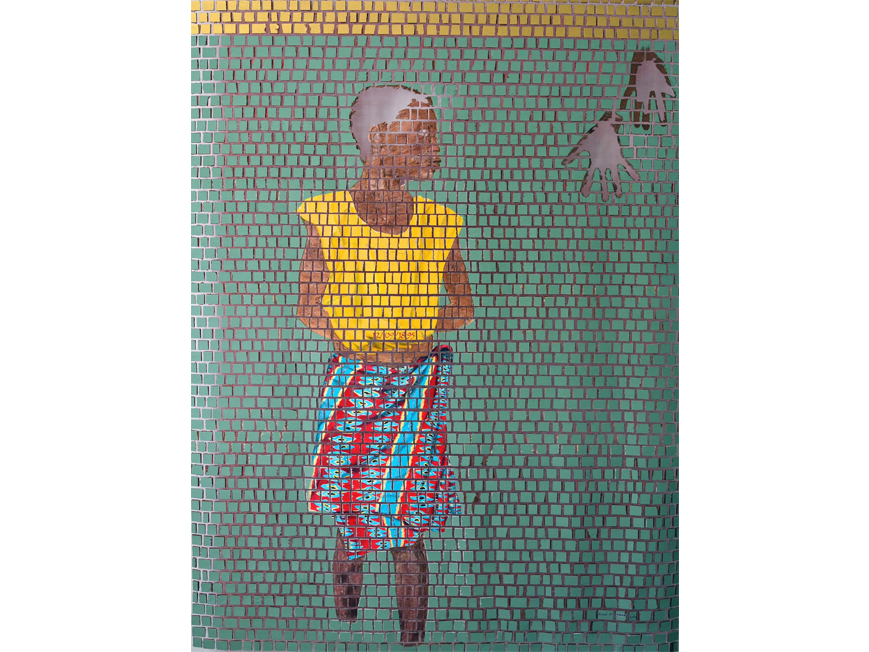
La ramasseuse des mains coupés | 2014 | Aimé Mpane Enkobo (courtesy of the artist)25 jul 2020 | António Pinto Ribeiro
MEMOIRS NEWSLETTER #111 | PT EN
Works of art and the condition of post-memory: some attributes (2)
In the first article of this series on “Works of art and the condition of post-memory”, I referred, among other things, to the fact that a number of artists of African heritage living in Europe have a prominent position in European contemporary art. The work of these second and third-generation descendants of African migrants stands out not only for its artistic quality, but thanks to a set of formal, thematic and aesthetic characteristics which give them a unique identity in the contemporary art world.
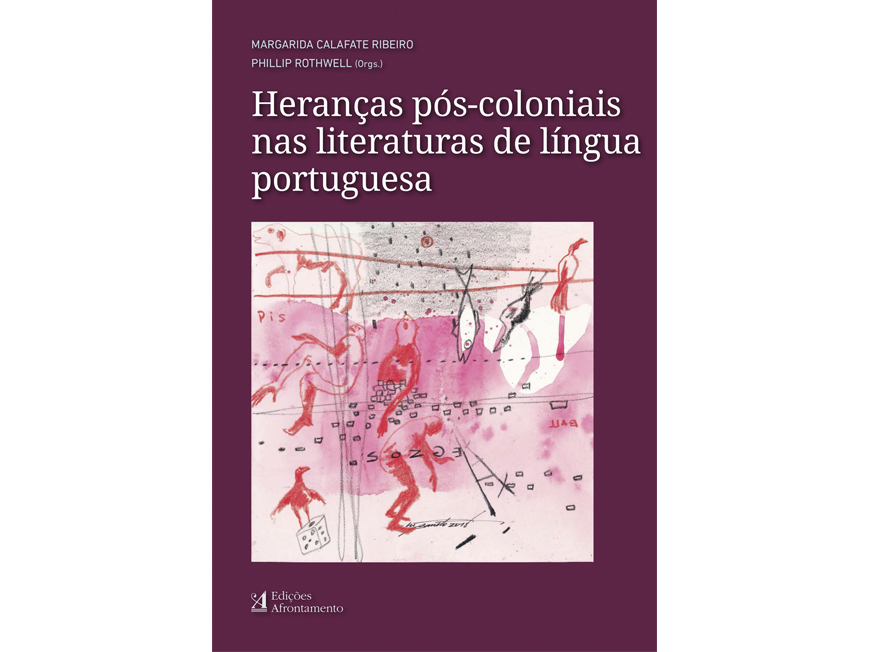
Book cover, image: untitled | 2018 | Nu Barreto (courtesy of the artist)18 jul 2020 | Felipe Cammaert
MEMOIRS NEWSLETTER #110 | PT EN
African legacies in Portuguese: “We have always lived in a space that is bigger than us”
In his expressively titled 1984 essay, “From the fiction of empire to the empire of fiction”, Eduardo Lourenço wrote about Portuguese decolonization:
We have to get used to the idea that we have always inhabited a space that is bigger than us, and which, for this very reason, lacks a subject. It is the element of truth in our imperial fiction. Let us come to terms, today, with the fiction of that truth. And let us adapt to this fiction at home and abroad. (Lourenço, p. 269)
In the essay, Eduardo Lourenço argues that in Portugal in the 1980s the perception of decolonization was dominated by a “de-dramatizating” of the colonial fact, under the cover of the Salazarist, imperialist notion of a “different colonization”.
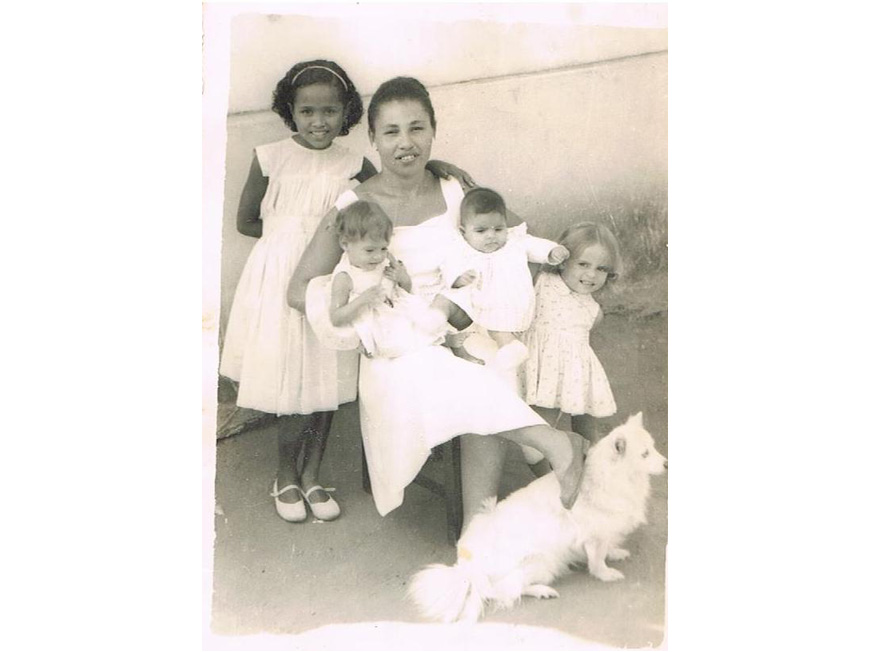
1959 | Luanda, aunt Loló and nieces (photo from the personal archive of Verónica de Fátima)11 jul 2020 | Fátima da Cruz Rodrigues
MEMOIRS NEWSLETTER #109 | PT EN
Look, I'm not white
The following interview with Verónica de Fátima was conducted on March 28, 2018, by Margarida Calafate Ribeiro.
My story is different. People look at me and think “another daughter of a retornado”. I have to explain, “no, not quite”. I was born on March 12, 1959, in Luanda, Angola. I arrived in Lisbon in 1975. My father is Portuguese. He was sent to Angola as a punishment because he didn’t want to go to university. His very strict, wealthy family in northern Portugal sent him to Africa to work.
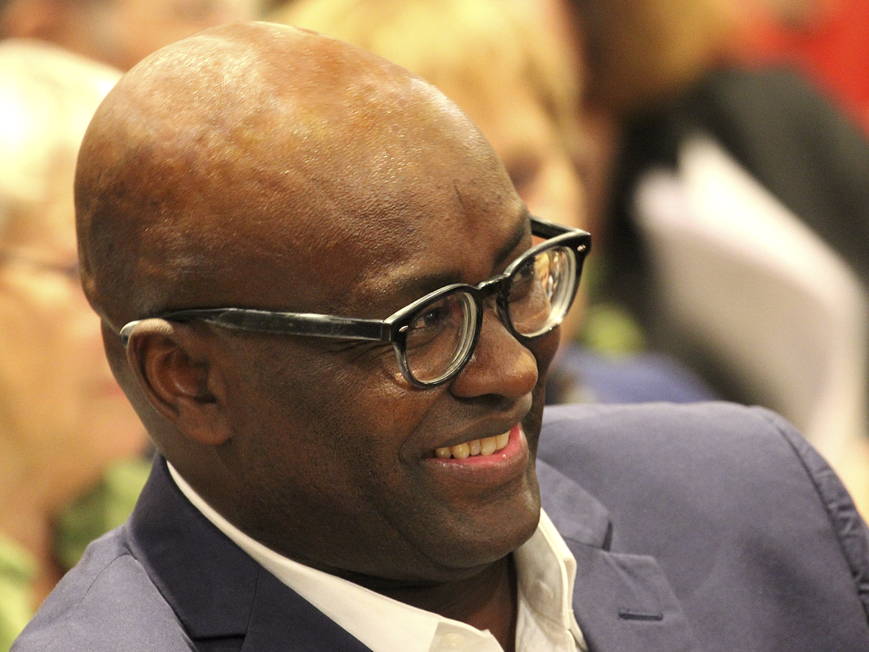
Achille Mbembe | 2015 | Heike Huslage-Koch/CC BY-SA (wikimedia commons)4 jul 2020 | António Sousa Ribeiro
MEMOIRS NEWSLETTER #108 | PT EN
Postcolonialism and Post-Holocaust: The Mbembe “Affair”
Over the past few months, the German media have been in turmoil due to a controversy that seems not to have found much repercussion outside Germany, but whose symptomatic nature deserves attention. The story can be told in just a few words. Born in Cameron, a professor at the University of Witwatersrand, Achille Mbembe is the author of works that are well-known and extremely influential within the most recent postcolonial thought, such as A Critique of Black Reason or Politics of Enmity.




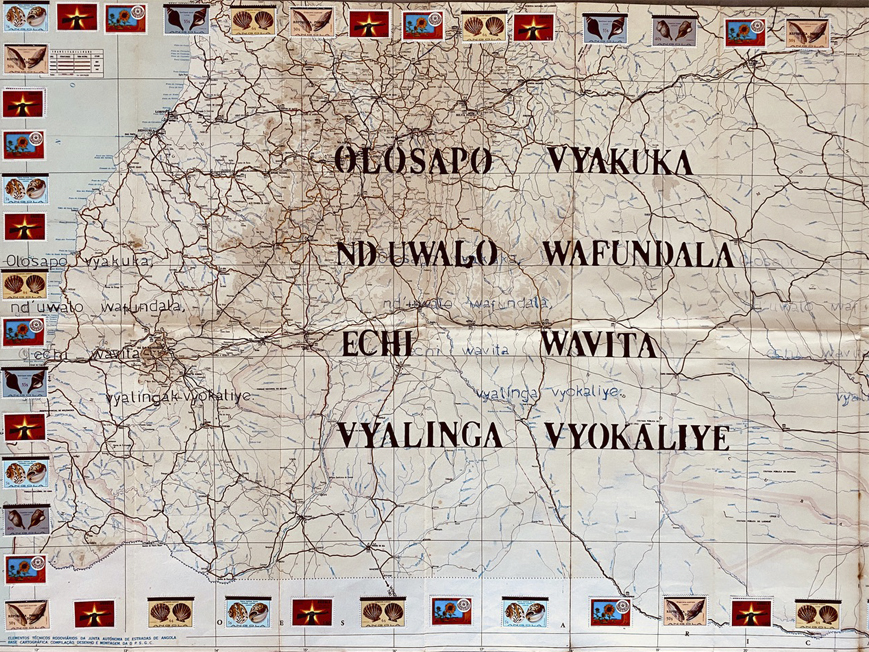
Olosapo, vyakuka, nd´uwala wafundala, echi wavita vyalinga vyokaliye. (Umbundu)Old stories, like worn clothes, become like new when you tell them. | 2020 | Yara Monteiro
(road map of Angola 1967 and Angolan stamps | courtesy of the artist and writter)27 jun 2020 | Yara Monteiro
MEMOIRS NEWSLETTER #107 | PT EN
Old papers
My maternal grandfather died at home, surrounded by his family, looking up at the big map of Angola hanging on the wall by his bed. He had lived in Portugal for almost twenty years, but he never abandoned the country where he was born. In reality, none of us have. Not that the family ever considered returning, just that it was possible for us to be in two places at once. In the end, we are anywhere.
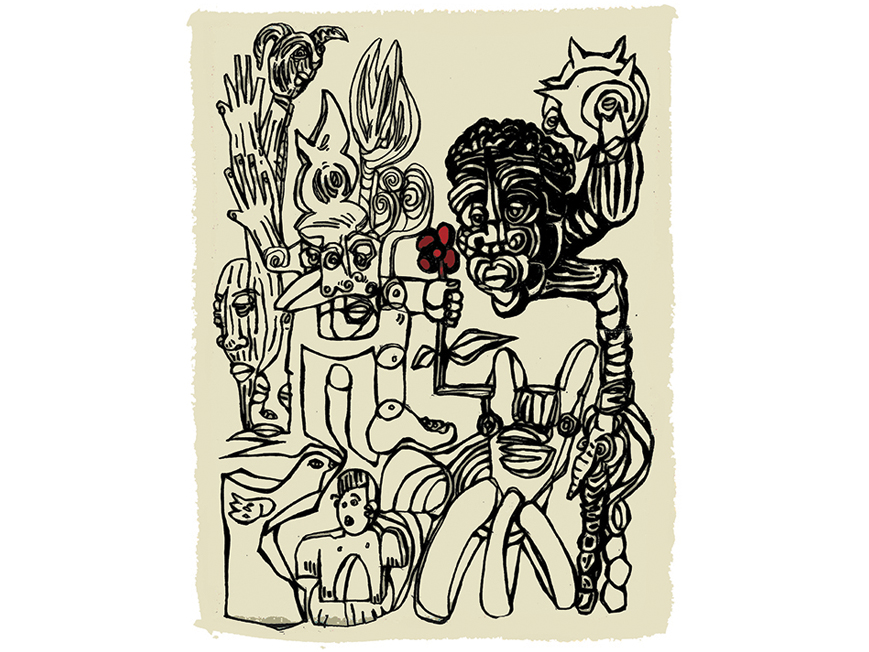
Red Skins, in “Senses of Image” | 2019 | Rui Almeida Pereira (courtesy of the artist)20 jun 2020 | Paulo de Medeiros
MEMOIRS NEWSLETTER #106 | PT EN
Windrushes (3)
Suddenly, everyone seems to be talking about statues. Some even go as far as mentioning a ‘war of statues’. But nothing could be further from the truth. Statues, for all their symbolic charge, are not really the aim of the protests, just as the defences so quickly mounted to ‘protect’ statues and History are not about either the statues or History, but about preserving centuries of privilege and maintaining the very core of inhumanity upon which our societies have been built.
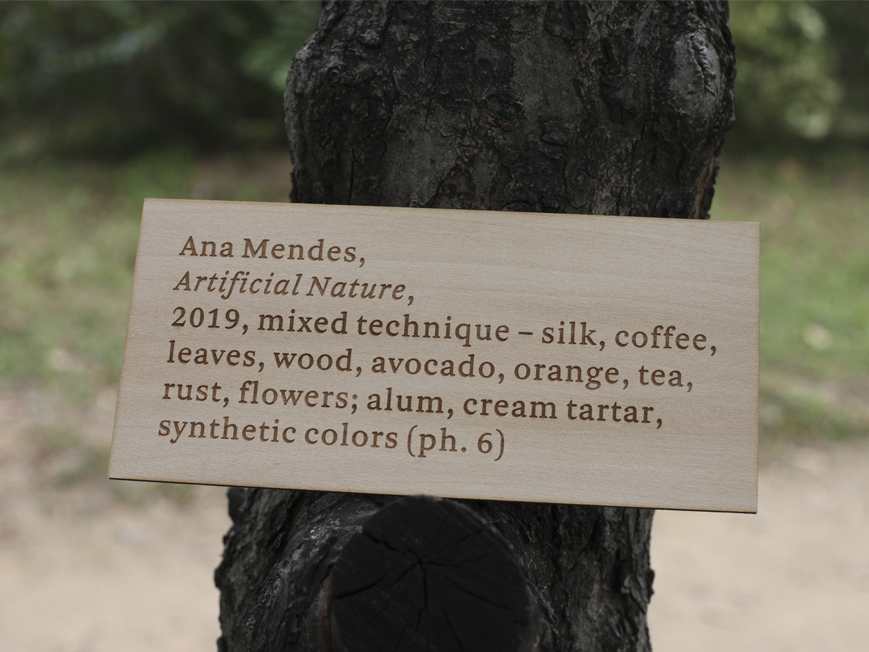
Artificial Nature | 2019 | Ana Mendes (courtesy of the artist)13 jun 2020 | Bruno Sena Martins
MEMOIRS NEWSLETTER #105 | PT EN
Histories at a distance: racism and the serpent’s feast
The rising prominence of anti-colonial and anti-racist activism has unsettled the placid colonial nostalgia that has long prevailed in former European metropoles. Closely entwined with the waves of resistance that marked the end of the imperial cycle, black and Afro-descendant populations living in Europe have, in recent decades, engaged in a complex reconfiguration of practices of resistance. In broad terms, the generations who came in search of a better life in the face of adversity (racism, xenophobia, economic precariousness), and who mainly engaged in “everyday forms of resistance”, are passing their testimony on to their symbolic and / or familial descendants.
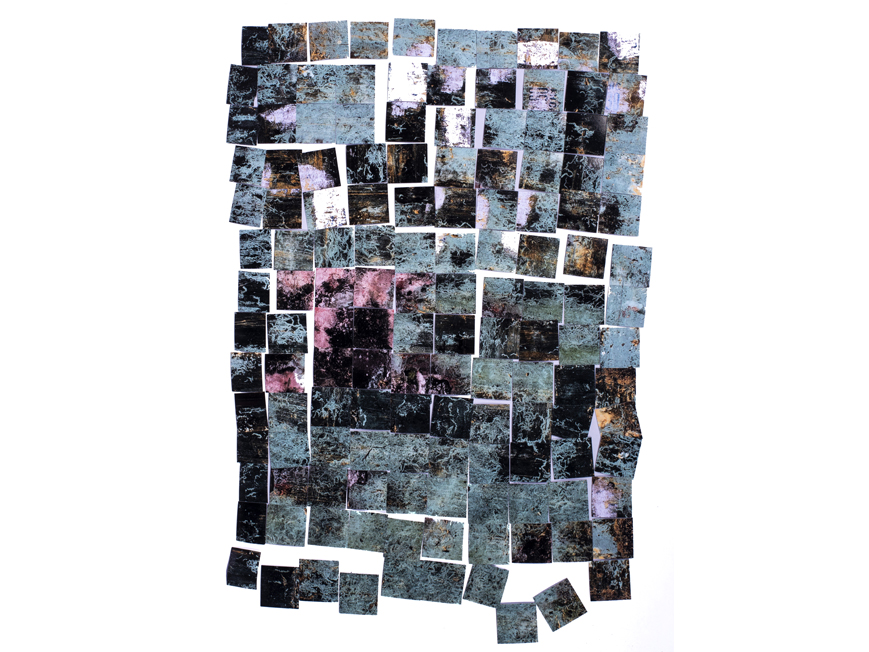
no title | 2019 | Avelina Crespo (courtesy of the artist)6 jun 2020 | Fernanda Vilar
MEMOIRS NEWSLETTER #104 | PT EN
Against the Babar complex. Post-memory, peripheries and literature
La discrétion, by Faïza Guène, scheduled for release in August 2020, tells the story of how it was discretion that led part of a generation to resist within post-colonial France. Yamina, the main character, is a model for women who moved to France and passed on to their children, through silence, a memory of experiences under colonialism, and of the mishaps of immigration. Faïza Guène is a French writer of Algerian descent. Her books expand social visibility of the knowledge, still not widely recognized or symbolically represented, of immigrants from the former French colonies.
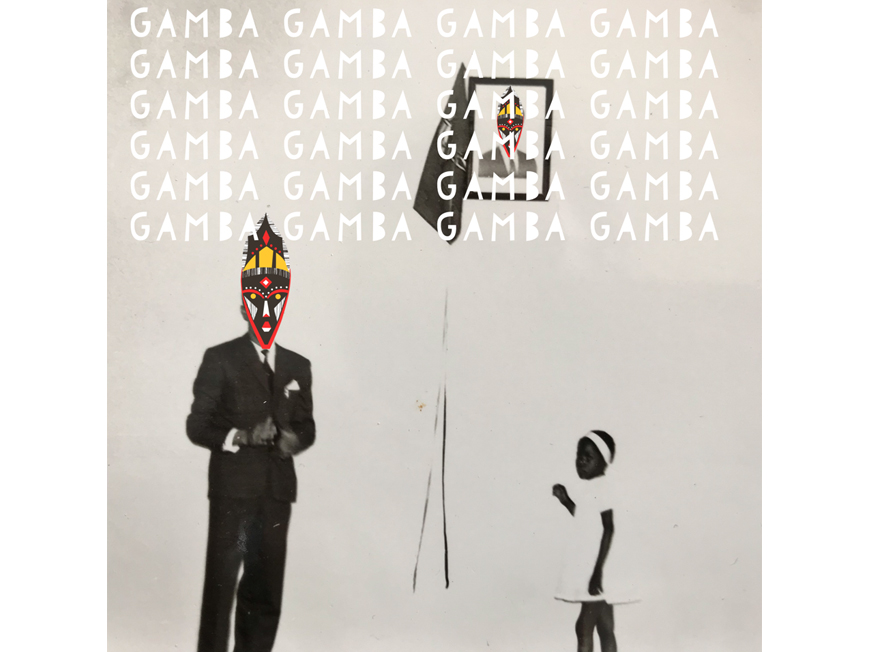
Tchandisila (Heritage): Gamba | 2019-10 | Yara Monteiro (courtesy of the artist)
[digital collage of original photographs from family archives (1960s)]30 mai 2020 | Roberto Vecchi
MEMOIRS NEWSLETTER #103 | PT EN
The impotence of post-memory
More than just a message of unity about our common responsibility for the transmission of memory, post-memory is a watershed. As much as it has been prized in cultural studies and the arts, the memory of the generations who follow those who bear witness has been underestimated by social scientists and historians. It is field that is controversial, at times conflictual, and always strange. The causes for this controversy are many and it is almost unnecessary to list all of the limits that have been noted: that the field was established within literary and cultural studies as a deformation of theory and critical reflection, that it has a complex relation, emerging in the 1990s in the United States of America, with the establishment of the memory of the Holocaust, that it establishes a problematic distinction between the proper and improper, and, as often happens with cultural fashions, that in some quarters its popularity has transformed it into an uncritical fetish.
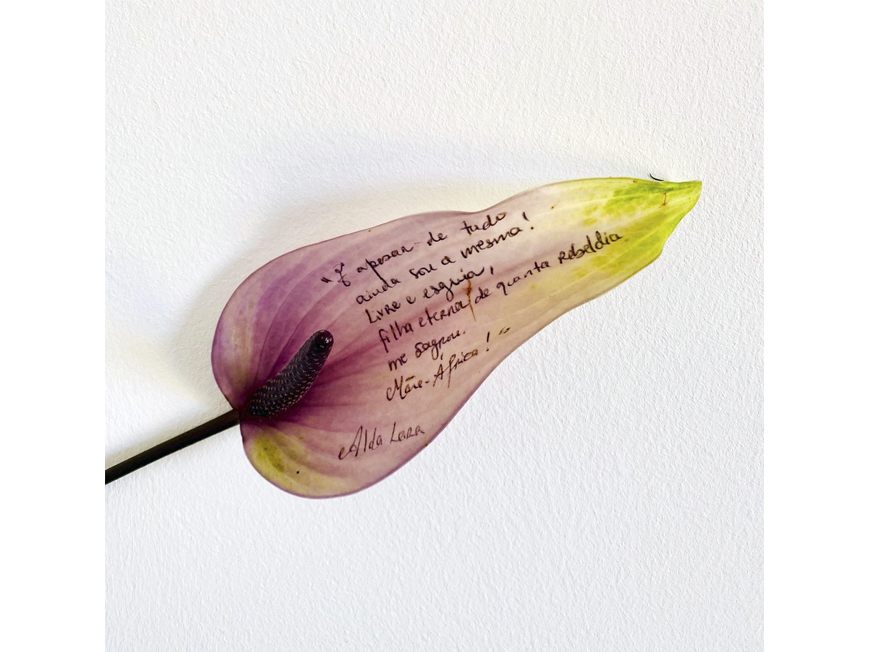
Flor para Alda | 2020 | YaraMonteiro (courtesy of the artist)
(excerpt from the poem “Presença Africana” by Alda Lara, handwritten on an anthurium)23 mai 2020 | Margarida Calafate Ribeiro
MEMOIRS NEWSLETTER #102 | PT EN
The seams of post-memory and new literature
In present day Europe, we are witnessing the cultural affirmation of Europeans who are heirs of political and population movements, resulting from decolonization and other migratory flows to Europe, associated with the flight deserting from wars, search for economic refuge, political exile, a place for higher education and other factors. Today, the descendants of these movements are European subjects and political bodies that accept transnational and trans-territorial memories and identities.
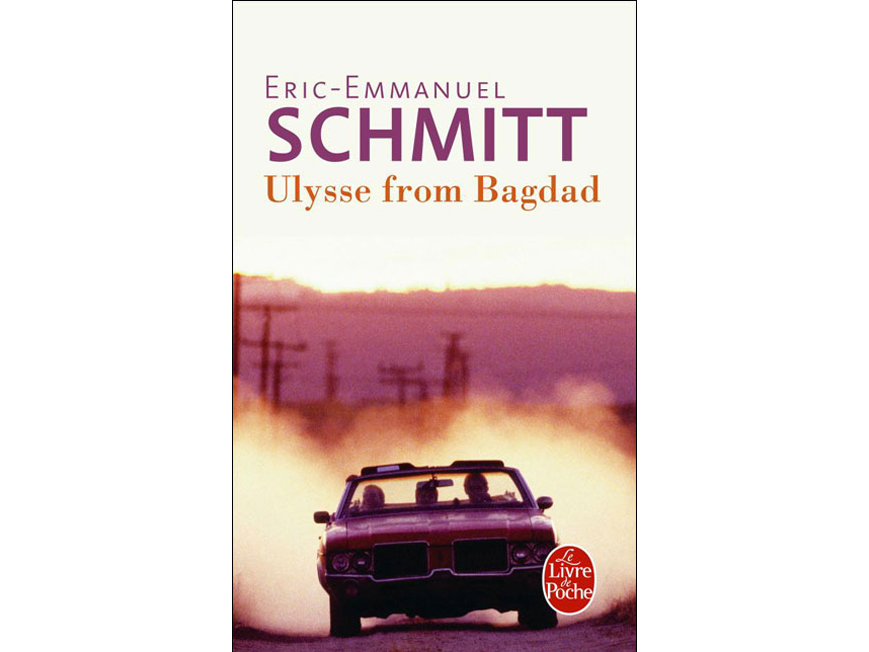
Johannes Grau (Plainpicture / Stockwerk)16 mai 2020 | Ana Paula Rebelo Correia
MEMOIRS NEWSLETTER #101 | PT EN
Ulysses who does not return home
Eric-Emmanuel Schmitt's Ulysse from Bagdad was published in France in 2008. Why write about a book that is more than a decade old now? If "to write is to act ", in Emmanuel Schmitt’s words, to read is to know, reflect, think, and above all, to protect the memory of the history of humanity as it repeats across centuries. For Saad, the protagonist of Ulysse from Bagdad, the desire to read is the desire for freedom: “…That day I gained a taste for literature, or for freedom, which is the same thing”.

Mai 2020
Cette semaine, nous publions le nº 100 de la Newsletter Memoirs – Enfants d’Empires et Postmémoires Européennes. Pendant ces deux dernières années – le nº 1 de la Newsletter date du 5 mai 2018 –, nous avons publié hebdomadairement un texte, parfois deux, en Portugais et en Anglais – mais également en Français, de façon ponctuelle –, écrit par les chercheurs de ce projet basé au Centre d’Études Sociales de l’Université de Coimbra. En plus de ces auteurs réguliers, d’autres créateurs ont rejoint cette initiative : écrivains, critiques, historiens, designers, chercheurs en sciences sociales, etc. Chaque édition de la Newsletter a également bénéficié de la collaboration d’artistes visuels, dont les œuvres ont accompagné ces 100 numéros.
Nous remercions tous et toutes de la générosité et de l’esprit critique dont ils et elles ont fait preuve avec leurs apports. Ces remerciements s’étendent tout particulièrement à l’équipe de production de cette Newsletter : à António Pinto Ribeiro, éditeur en chef ; à Felipe Cammaert, éditeur adjoint ; à Margarida Calafate Ribeiro, chercheuse principale ; aux traducteurs, Alexandra Reza et Archie Davies ; à Helena Rebelo, designer. Et, finalement, à un grand nombre de ces lecteurs, lesquels ont aussi contribué à la diffusion de nos Newsletters. Nous allons continuer !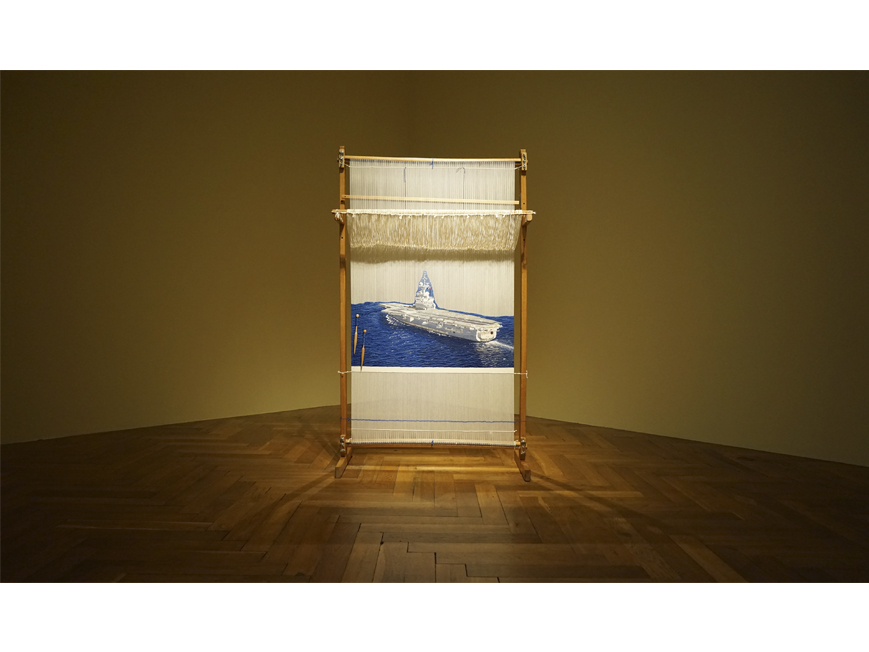
Parenthèse | 2018 | Katia Kameli (courtesy of the artist)9 may 2020 | António Pinto Ribeiro
MEMOIRS NEWSLETTER #100 | PT EN
Works of art and the condition of post-memory (1)
After the independence in Africa and Asia – and in some cases, before – hundreds of thousands of people from formerly colonized nations moved to Europe. This migration included groups associated with the colonial structure, pieds-noirs, retornados, ex-military personnel of the former colonies, collaborators with the colonial administration, exiles, and those who over the decades had sold their labour to the former colonial countries. Generally men, sometimes accompanied by their wives, this wave of migration led to families that now stretch over three generations.
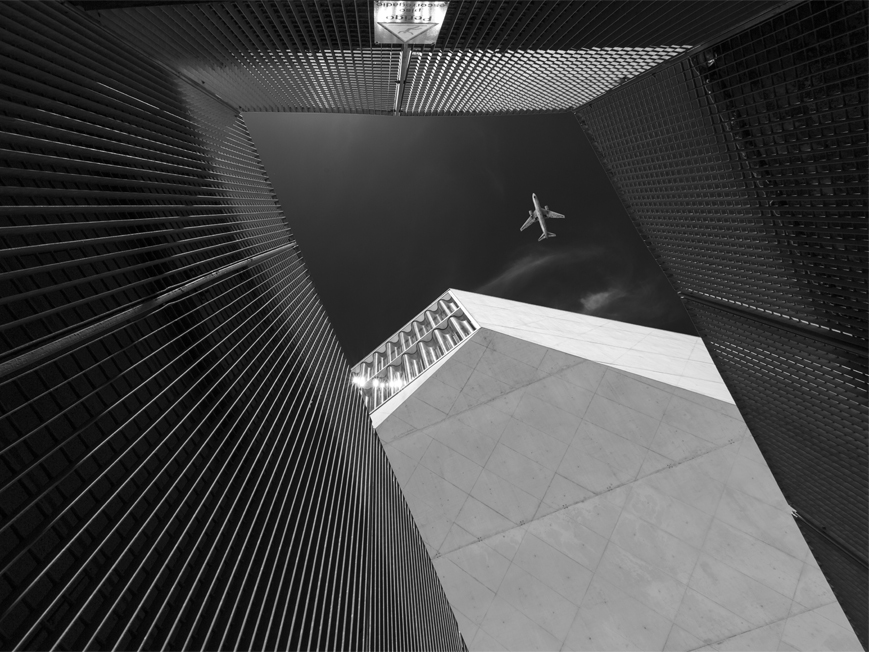
geometries | 2019 | Nuno Simão Gonçalves (courtesy of the photographer)2 may 2020 | Felipe Cammaert
MEMOIRS NEWSLETTER #99 | PT EN
The sadness of the Earth and the voice of images
In the art of post-memory, artists often revisit the colonial past to re-interpret striking historical archives which have been silenced or forgotten by recent generations. One of the subjects that has elicited a series of profound artistic responses is the archival trace of the severing of hands; a particularly horrifying episode of the colonial period in the Belgian Congo, when colonizers cut off the hands of African people, especially children, as punishment, and as an assertion of authority.

timeline | 2019 | Nuno Simão Gonçalves (courtesy of the photographer)25 abr 2020 | Fátima da Cruz Rodrigues
MEMOIRS NEWSLETTER #98 | PT EN
“They defended Portuguese territory”: an interview with the son of an African veteran of the Portuguese Armed Forces
169 interviews have so far been undertaken as part of the fieldwork of the project MEMOIRS – Children of Empire and European Post-memories, financed by the European Research Council (no. 648624) and based at the Centre of Social Studies at the University of Coimbra. These interviews have gathered information about the memories inherited by the children and grandchildren of the generation who lived through processes of decolonization of African territories previously occupied by Portugal, France and Belgium. The interview with Rui Barbosa de Andrade Lamarana that follows was undertaken on the 1st of August 2018, at the Armed Forces Handicapped Association, in Lisbon.
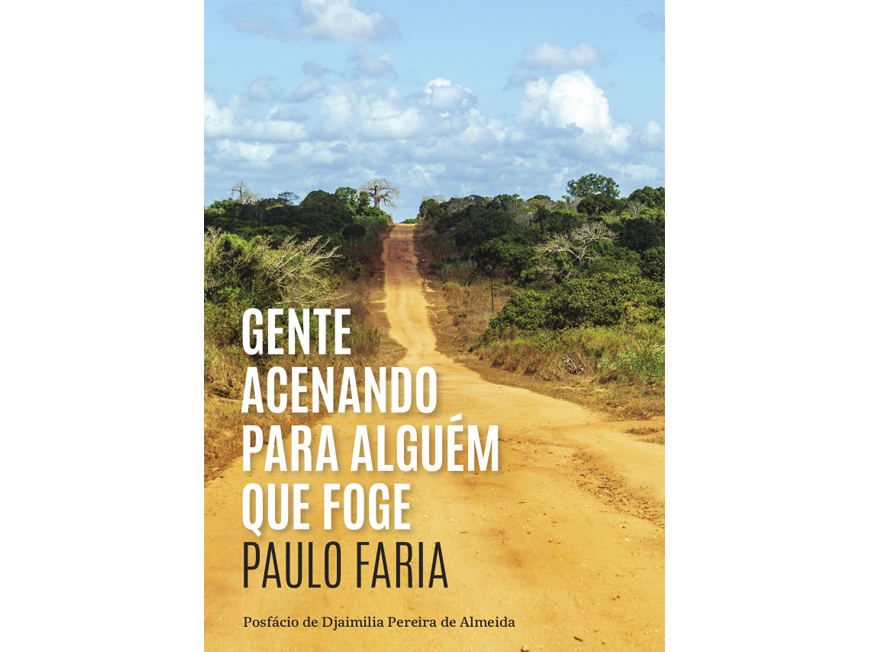
book cover | 2020 | courtesy of the author18 abr 2020 | Paulo Faria
MEMOIRS NEWSLETTER #97 | PT EN
Paulo Faria, People Waving to Someone Who Is Running Away
This land does not explain anything to me. It is a place where a thicker veil of distance isolates me from the others. A place where latent violence seems to radicalize all positions. A place where old conflicts are reenacted that time has left behind as an open wound. A place where there is no peace. Here, at first sight, everything is brutal, there are victims and hangmen. As a matter of fact, it is subtler. It is constantly necessary to decide if we want to be victims or hangmen. We may be victims now and hangmen within five minutes, or the opposite.
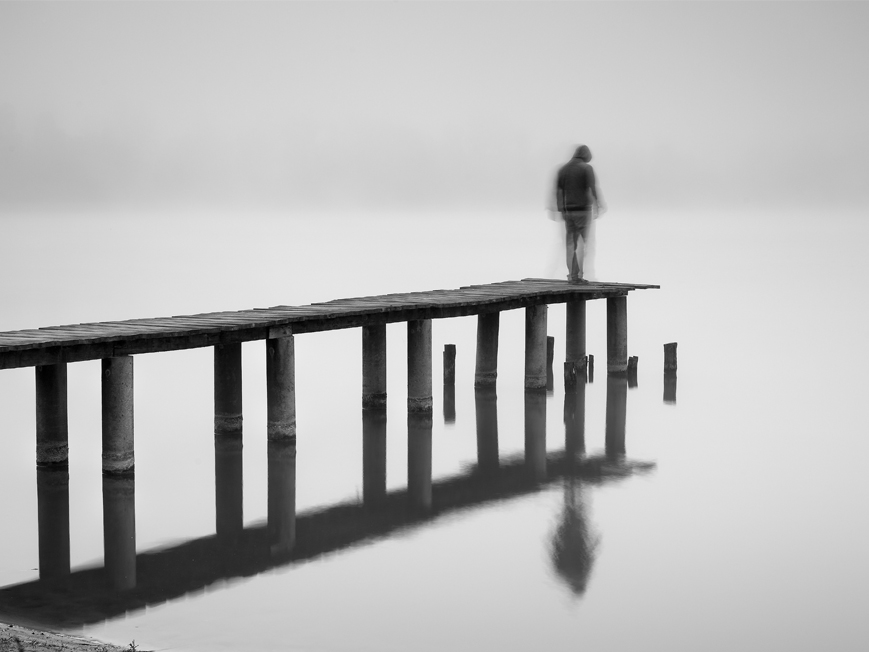
Reflection series | 2019 | Nuno Simão Gonçalves (courtesy of the photographer)11 abr 2020 | Paulo de Medeiros
MEMOIRS NEWSLETTER #96 | PT EN
Reading Adorno in a Time of Crisis: On The Responsibility of Intellectuals (2)
Theodor W. Adorno died in 1969, at a time of profound crisis and change throughout Europe and other parts of the world. Clearly, that crisis was very different from the one confronting us today. Whereas 1968 ushered in a wave of radical social protests against the state and other institutions, the current crisis, even though it might bring about even more profound changes on a global scale, appears at first to be very different. This because of the immediate health threat that it represents to everyone, the very real possibility of a level of mortality without ready comparison in peace time, and the inevitable shock to the global economic system.

Reflection | 2019 | Nuno Simão Gonçalves (courtesy of the photographer)4 abr 2020 | António Sousa Ribeiro
MEMOIRS NEWSLETTER #95 | PT EN
Postmemory and the Condition of the Victim
The extraordinary proliferation of studies on trauma, memory and violence has given a central position to concepts whose wide circulation quite often results in an effect of banalization that puts into question its analytical productivity and, thus, calls for differentiated critique. Such a critique becomes all the more necessary given the tendency to reduce the concepts to their singular form, eschewing any reflection on their specificity.
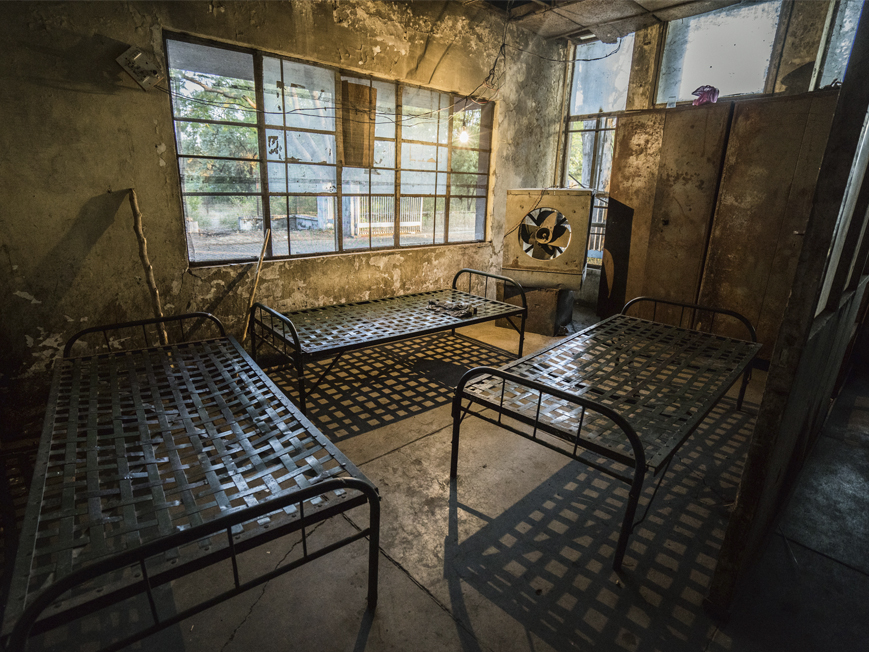
Abandoned Union Carbide Factory, Bhopal | 2014 | Giles Clarke28 mar 2020 | Bruno Sena Martins
MEMOIRS NEWSLETTER #94 | PT EN
The Coronavirus and Memories of the End of the World
In a text in which Manuel António Pina dwells on the winding paths of memory, he scolds the mirror: “I should remember my memories, but I remember other people's memories” (Pina: 1999). We are fated to divide the past between the memories that belong to us and the memories of others, those that tell us very little or nothing. The imperative rehearsed by the poet would be entirely absurd if we were to accept that there is a rigid boundary between "my memories" and "other people's memories", as if the body-memory only encompasses what happens to it first hand, in a strict phenomenology of the recallable.
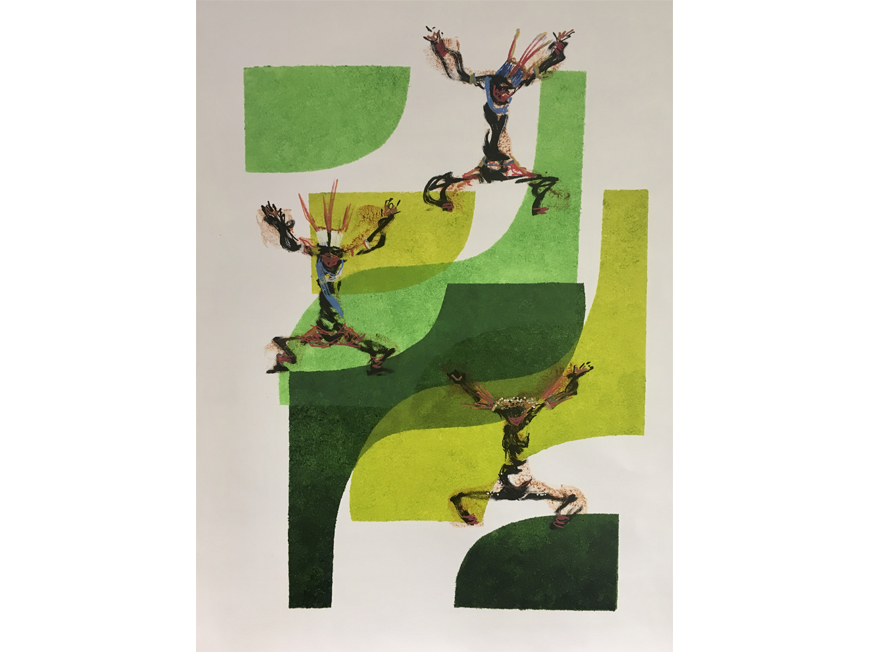
Todos do Mato | 2017 | Mica Barbot (courtesy of the artist)21 mar 2020 | Fernanda Vilar
MEMOIRS NEWSLETTER #93 | PT EN
How to change minds in a new century: a radiography of Europe
When I met the Portuguese writer Gonçalo M Tavares, we spoke about how the media determines the scope of our discourse. No dictatorship could hope to be as effective in directing what we talk about. We are profoundly manipulated, above all by those who sell to us. Human tragedies accrue a volatile economic value, they raise our compassion in a fluctuating and uneven manner: we are thrown into great commotion by an act of terrorism, and ignore the plight of refugees and the climate emergency.
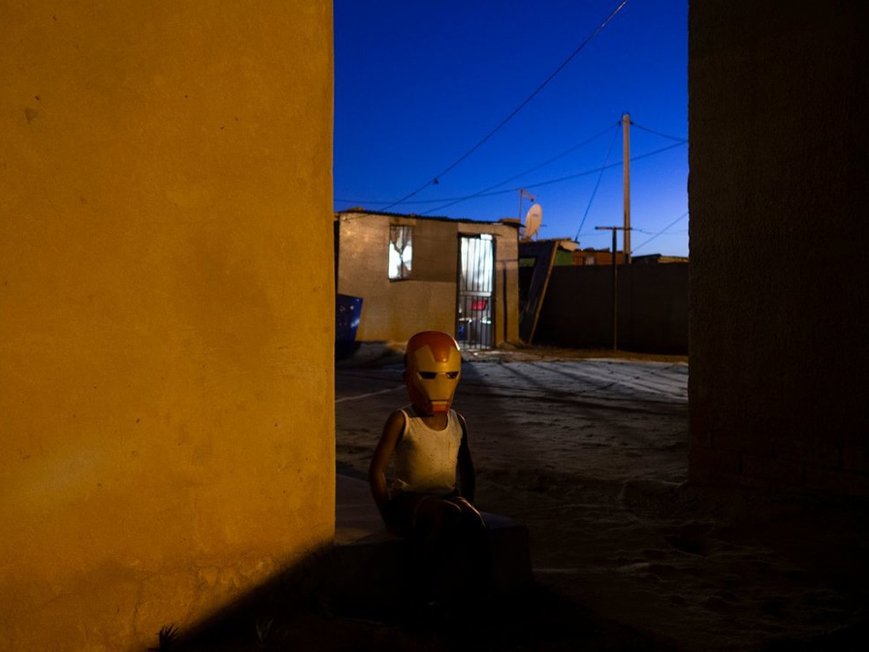
Sibusiso Bheka |untitled | 2017-2019 | (courtesy of the artist and the author)14 mar 2020 | Federica Angelucci
MEMOIRS NEWSLETTER #92 | PT EN
In the picture
Sometimes one needs a catalytic moment or episode to bring into focus in an articulate manner a number of thoughts and ideas, a bit like when we look at stars one by one for an extended period of time: we appreciate them in their uniqueness and yet we miss the constellation they form together; then a swift change in our position allows us a different perspective and connections emerge.
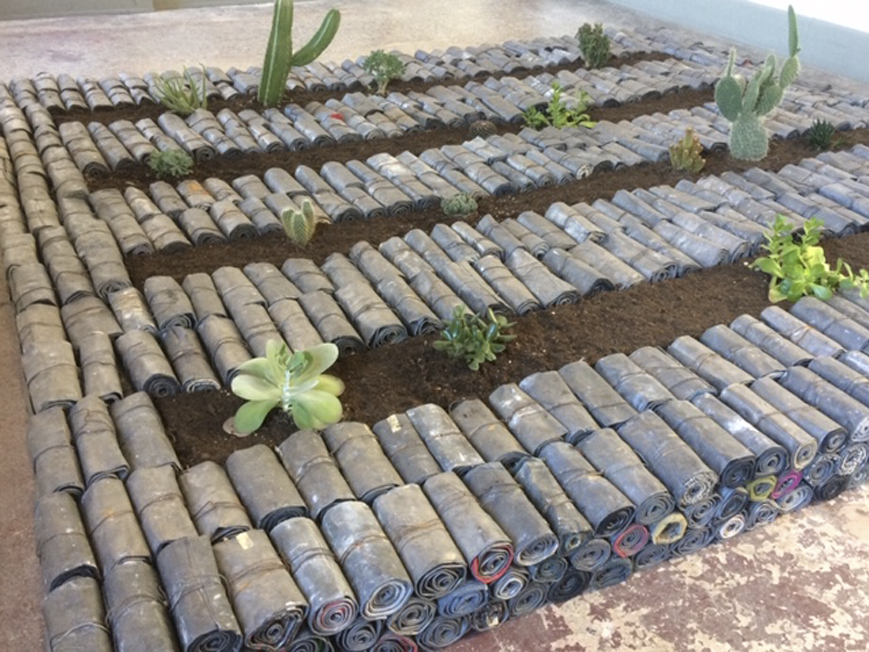
Boltanski, in Bienal de Veneza | 2019 |MEMOIRS´s archive7 mar 2020 | Roberto Vecchi
MEMOIRS NEWSLETTER #91 | PT EN
Absence: the material of memory
The Christian Boltanski retrospective at the Pompidou Centre in Paris, Faire son temps (until 16th March), is a tribute to a major French contemporary artist who has, through a sustained effort of salvage, re-discovered and disseminated the “art of memory”. The exhibition is also a form of (“false”, in the artist’s terms) biography told through his work, laid out on the top floor of the gallery. It brings together a variety of objects: photographs, installations, paintings, material objects and more.
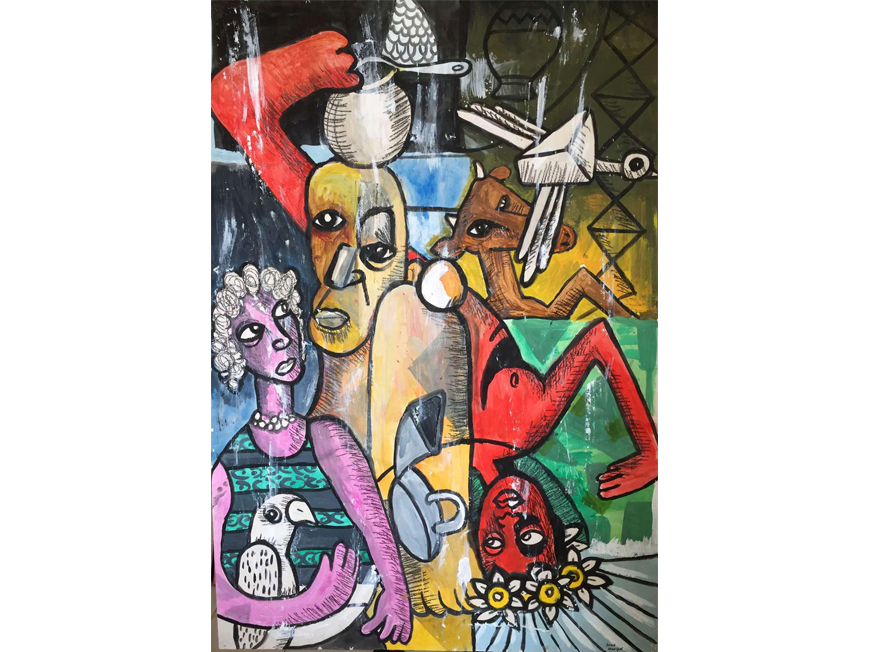
Rubelis | 2016 | Yuran Henrique (courtesy of the artist)29 fev 2020 | Margarida Calafate Ribeiro
MEMOIRS NEWSLETTER #90 | PT EN
In spite of you
The Chico Buarque song of my title was written during the long years of dictatorship in Brazil, between the military coup of 1964 and the “Diretas já” [Rights Now] movement and its demand for universal free elections. The song plays with the ambiguity between a dissimulated dialogue of scorned love for an authoritarian woman and a dialogue with dictatorship. Its ambiguity allowed it to pass through the censors. But it was quickly banned with the violence that dictatorships always preserve for those who oppose them.
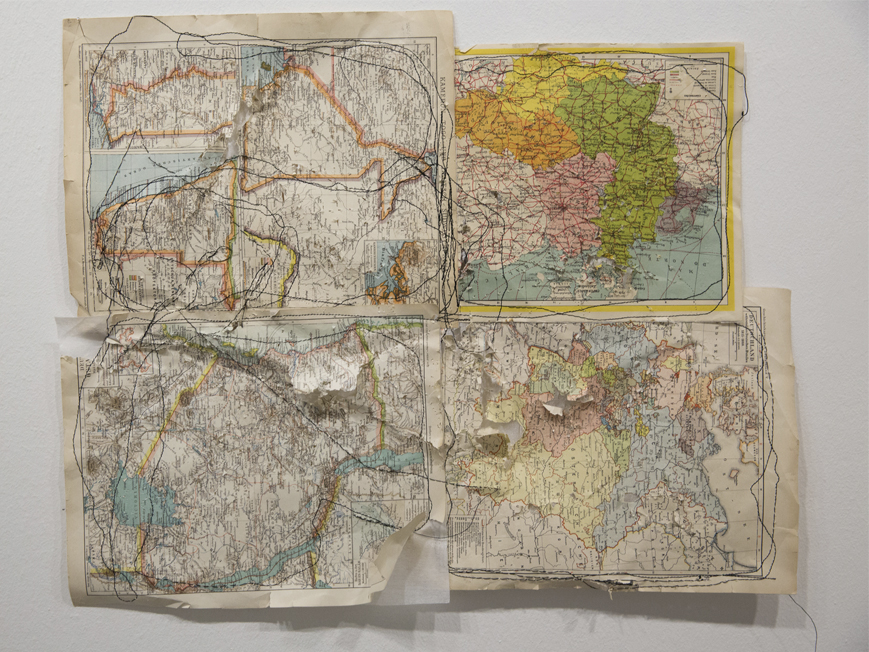
Map Series | 2019 | Ana Mendes(courtesy of the artist)22 fev 2020 | António Pinto Ribeiro
MEMOIRS NEWSLETTER #89 | PT EN
Intellectual Sovereignty
In Afrotopia, Felwine Sarr argues that “to be productive, African thought must have absolutely intellectual sovereignty”. The author is a Senegalese economist and writer who recently became well known because he was invited by the French President Emmanuel Macron to write a report, with Bénédicte Savoy, The Restitution of African Cultural Heritage: Toward a new relational ethics. He is an expert on African intellectual production and museums in Africa.
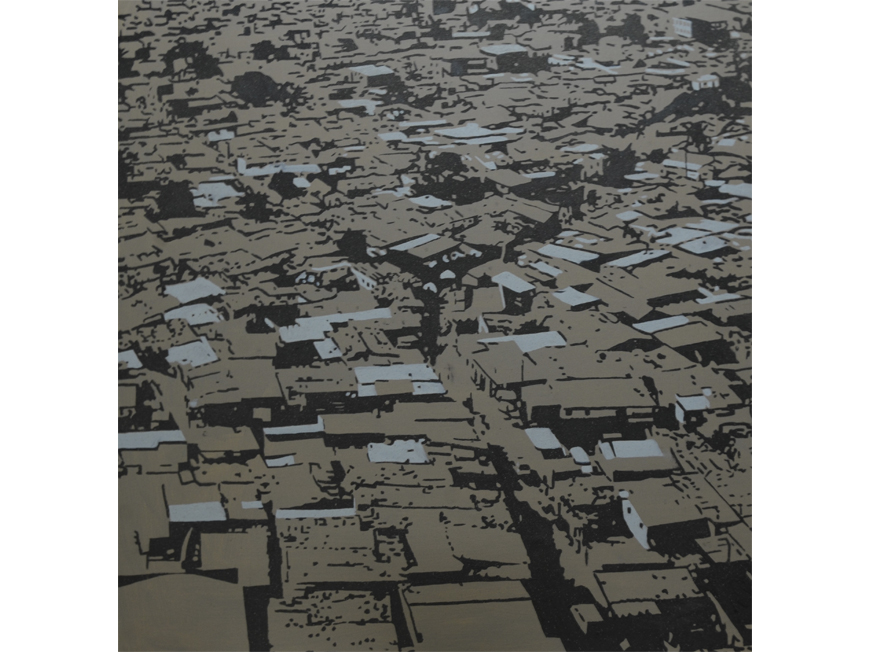
Luandscape 1 | 2018 | Ihosvanny Cisneros (courtesy of the artist and MOVART gallery)15 fev 2020 | Felipe Cammaert
MEMOIRS NEWSLETTER #88 | PT EN
Reliving the father’s war: the end of violence?
In the literature of post-memory, the trope of the absent father emerges when the persistence of post-colonial trauma through generations is in question. In Portugal, the novel Estranha Guerra de Uso Comum [Strange War of Common Use], by Paulo Faria, constitutes perhaps the best example of this post-mortem dialogue exploring the transmission of the father’s experience of war to the son. However, there are also works in which the son relives the father’s traumatic past from the inside out, through writing that dwells on the details of past conflicts. In these cases, the narrator privileges scenes from a violent past to recount the story of the father’s war as if they were there in his place.
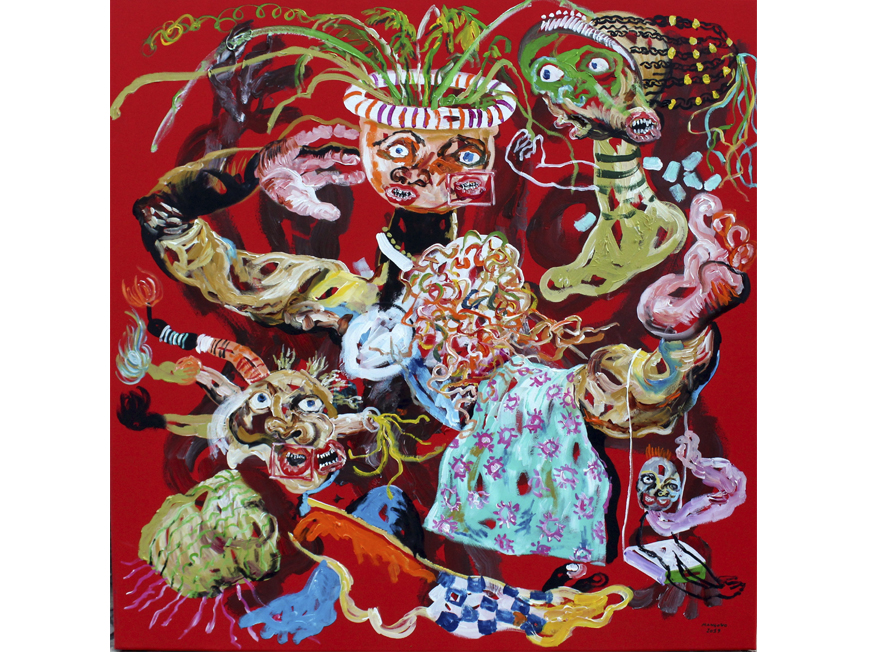
Zungueira | 2018 | Cristiano Mangovo (courtesy of the artist)8 fev 2020 | Nazir Ahmed Can
MEMOIRS NEWSLETTER #87 | PT EN
From Trump to Mangy-Dog: Notes on beasts, humans and other (in)versions
The exploitation of difference through law, science or art has long been one of the safest ways to exercise oppression. Penetrating daily life to the extent that it can seem spontaneous, this practice produces a “structure of feeling” whose effects are perverse and enduring. With the rewriting of old rules and the creation of new ones, we are seeing today the resurrection of the space of exception in the form of the “camp”, as well as other liquid and mobile spaces that we could call “concentration seas”.
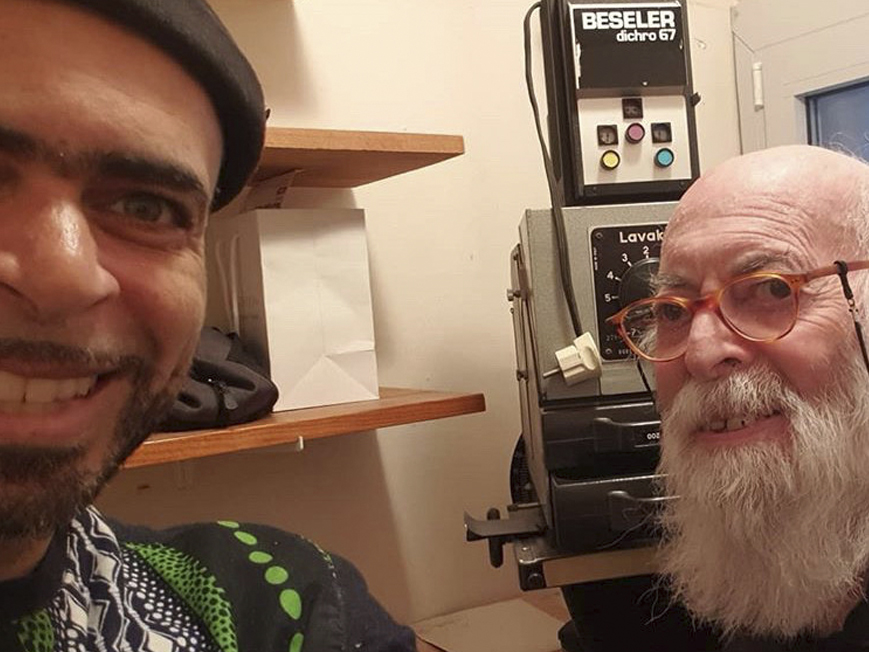
Rocé and Adolfo Kaminsky | 2019 | artist´s instagram @rocemusic1 fev 2020 | Fernanda Vilar
MEMOIRS NEWSLETTER #86 | PT EN
Fake documents. Saved documents
What is the connection between the forger Adolfo Kaminsky born in Argentina in 1925 to Russian Jewish parents, and the French rapper Rocé born in 1977 and of Tuareg-Algerian origin?
Adolfo Kaminsky migrated to France at the age of 6 with his parents. From the age of 13 he worked in a dyeing company removing stains. Once he was freed from the Drancy camp in 1943, this job put him into contact with the resistance. From then on he became a clandestine forger of documents. He saved rural Jews and after the war helped send Jews to Palestine until he became disenchanted with the new Jewish state.
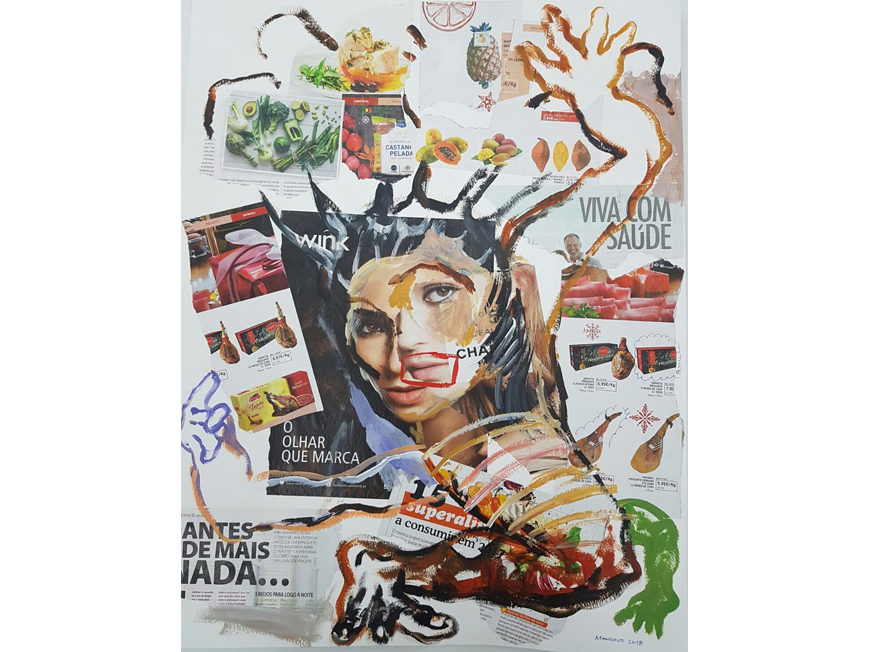
Eat time | 2017 | Cristiano Mangovo(courtesy of the artist and MOVART gallery)25 jan 2020 | Livia Apa
MEMOIRS NEWSLETTER #85 | PT EN
La Grande Bellezza: a brief note on culture in Italy today
A short book by Goffredo Fofi called L’oppio del populo (elèuthera, Milan) was published in Italy last summer. Fofi is a well known literary critic and film maker. In the 1970s he was an important figure in magazines such as “Quaderni Piacentini”, “Ombre Rosse”, “Linea d’Ombra”, “La terra vista dalla luna”, “Lo straniero” and “Gli Asini” which put forward a critical take on international art, society and culture, and played a significant educative role. They privileged minority experiences and radical acts of civil disobedience.
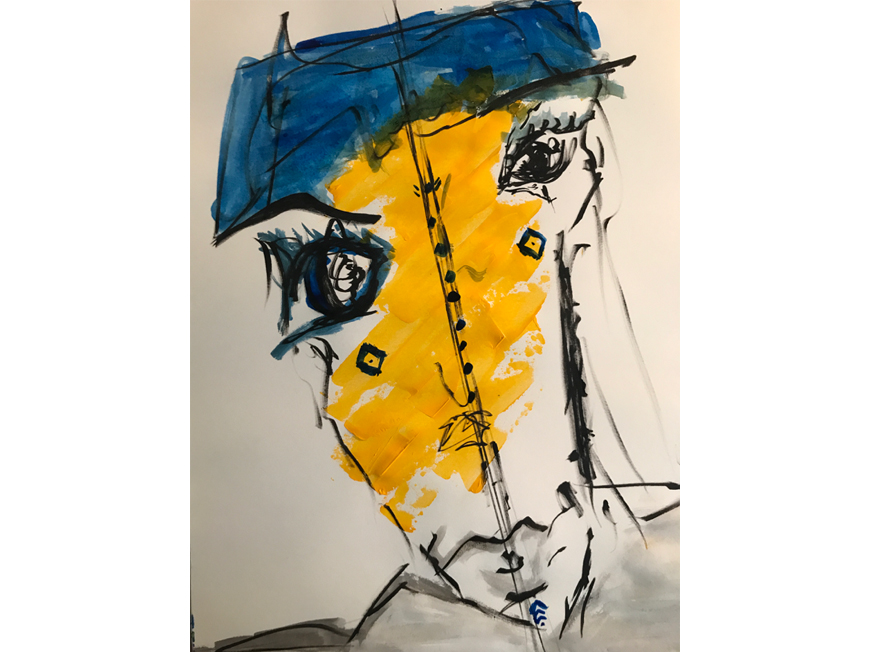
Grand-mother, from postmemory | 2019 | Rachida Brahim (courtoisie de l’artiste)18 jan 2020 | Rachida Brahim
MEMOIRS NEWSLETTER #84 | PT EN FR
Mourir d’être. Le racisme structurel dans la France contemporaine
L’actualité française est régulièrement émaillée d’affaires mettant en cause des policiers dans la mort de jeunes hommes d’ascendance africaine. Ce thème de la mort violente liée à la colonialité du pouvoir s’inscrit dans une longue histoire. Une histoire parfaitement souterraine et néanmoins tonitruante. Cette histoire qui remonte à la période coloniale a continué à frayer son chemin dans nos esprits en dépit des ablations de nos mémoires et de nos langues, en dépit des silences et des humiliations. Lorsqu’elle remonte à la surface, elle nous conte une chose tragiquement banale : nous ne devrions pas mourir en raison de notre seul nom, de notre seul visage, de notre seule allure et pourtant tout semble organiser de manière à ce que certains meurent encore prématurément en raison de leur seul nom, de leur seul visage, de leur seule allure.
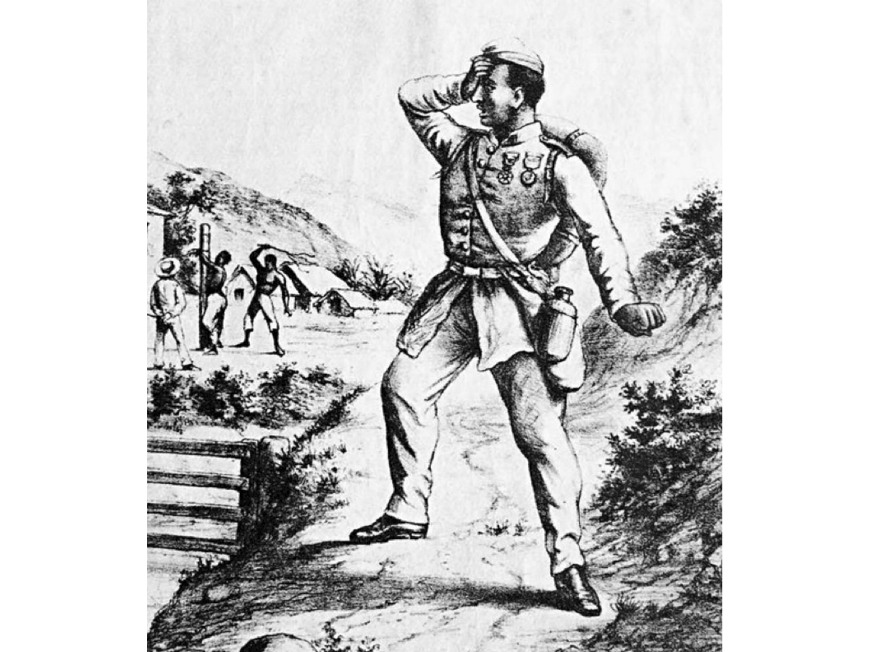
De volta do Paraguai | 1870 | Angelo Agostini11 jan 2020 | Bruno Sena Martins
MEMOIRS NEWSLETTER #83 | PT EN
The “war of statues” and the colour of memory
The “war of statues” has seen an uproar in the United States over the profusion of memorial landscapes which exalt Confederate Generals (the political-military leaders of the Confederate States of America who, between 1861 and 1865, fought for secession in opposition to the abolition of slavery). Places of pilgrimage for far-right groups, the statues of Robert Lee and other generals have come to be denounced by anti-racist movements. They are called out as part of a narrative of “white martyrdom” inscribed in public space since the end of the 19th century (and the so-called Jim Crow Laws).
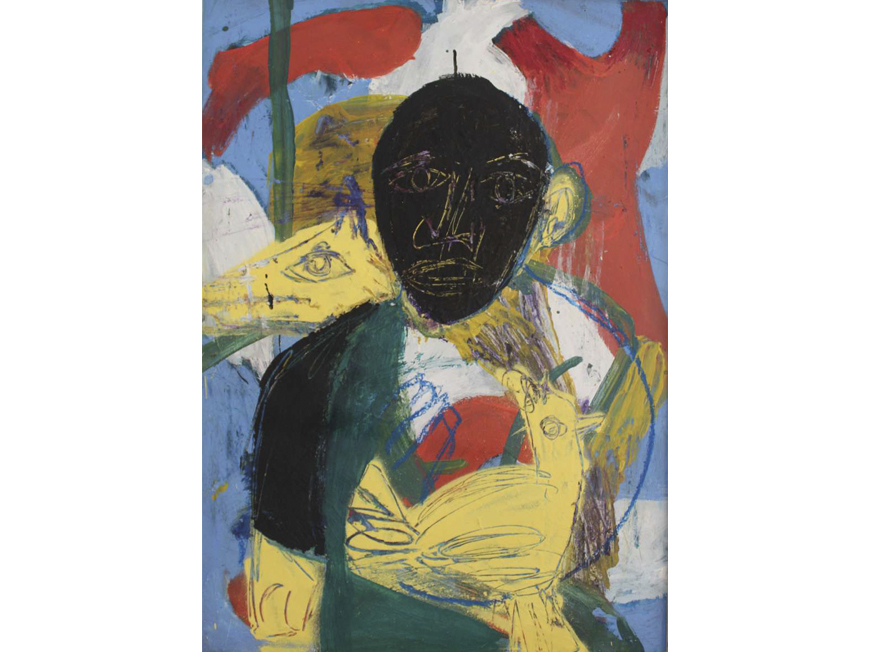
untitled | 2019 | Yuran Henrique (courtesy of the artist)4 jan 2020 | Miguel Cardina
MEMOIRS NEWSLETTER #82 | PT EN
“The implicated subject”: a concept worth exploring
The notion of the “victim” emerged into the public imaginary through discussions about the Holocaust and has come to permeate debates over justice, responsibility and memory. For the historian Enzo Traverso, in his fascinating L’Histoire comme champ de bataille [History as battlefield], the emergence of this figure is indissociable from a temporality in which the ontology of the future is wiped clean.
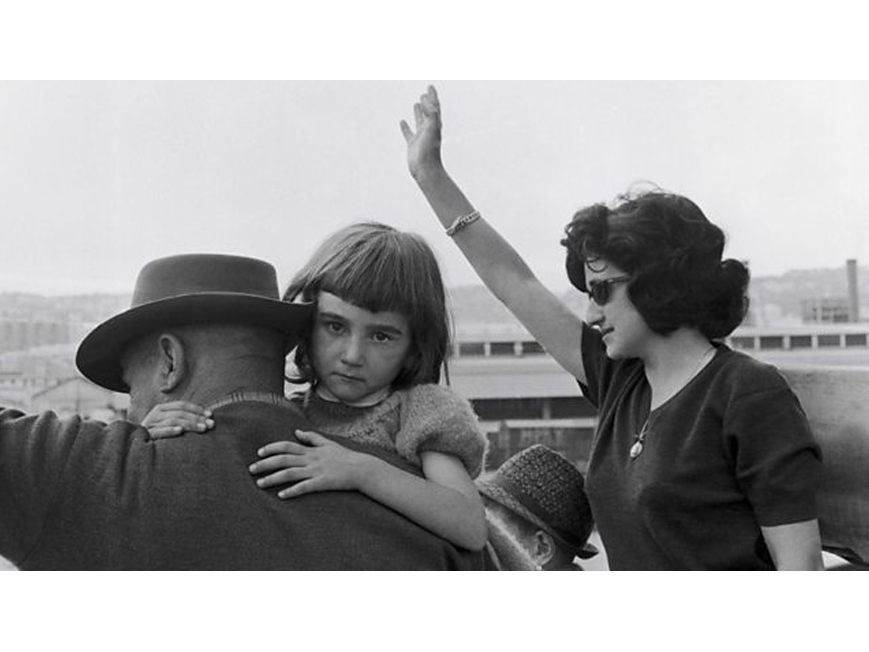
Pieds noirs | nd | BBC news28 dez 2019 | Morgane Delaunay
MEMOIRS NEWSLETTER #81 | PT EN
The French State and the Portuguese State in the face of the arrival of the pieds-noirs and the retornados
During decolonization after the Second World War somewhere between 5.4 and 6.8 million people who lived in former colonies arrived in the metropoles of the former European empires. Algeria became independent in July 1962, after eight years of its war of liberation. In that year 650,000 French people arrived in France from Algeria. More than a decade later, in 1975, in the midst of the revolutionary process that started with the coup of 25th of April 1974 and put an end to 48 years of dictatorship, Portugal received around half a million Portuguese from Angola and Mozambique.
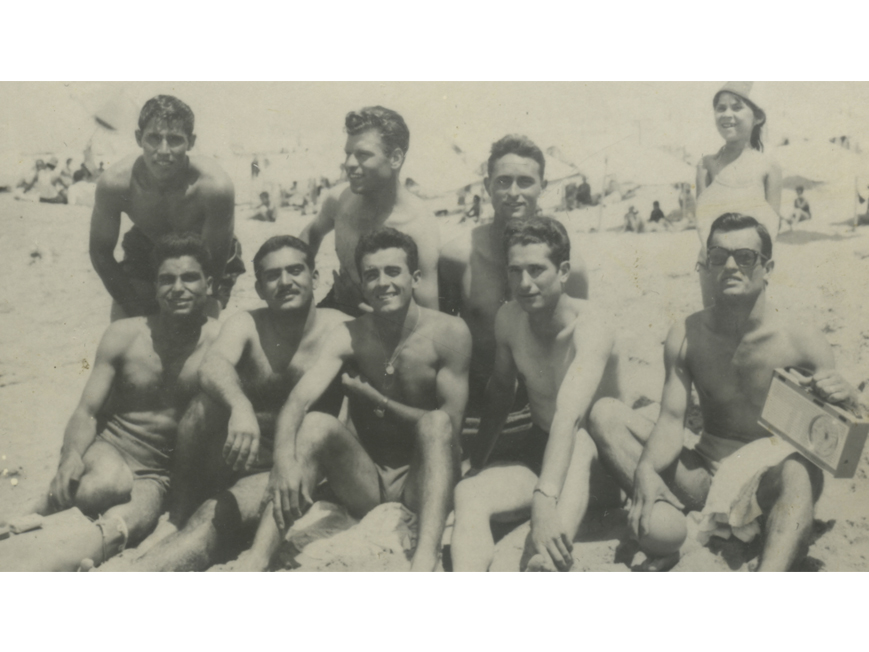
still of the movie My father has a gun | 2019 | Ana Mendes (courtesy of the artist)21 dez 2019 | Paulo de Medeiros
MEMOIRS NEWSLETTER #80 | PT EN
Windrushes (2)
In sinister times sudden flashes of resistance become brighter. Amidst the cover of ashen greyness that has come to encircle us, these fleeting moments can cut through the darkness of the heart. As Walter Benjamin well knew, ‘[t]he true picture of the past flits by. The past can be seized only as an image which flashes up at the instant when it can be recognized and is never seen again’.
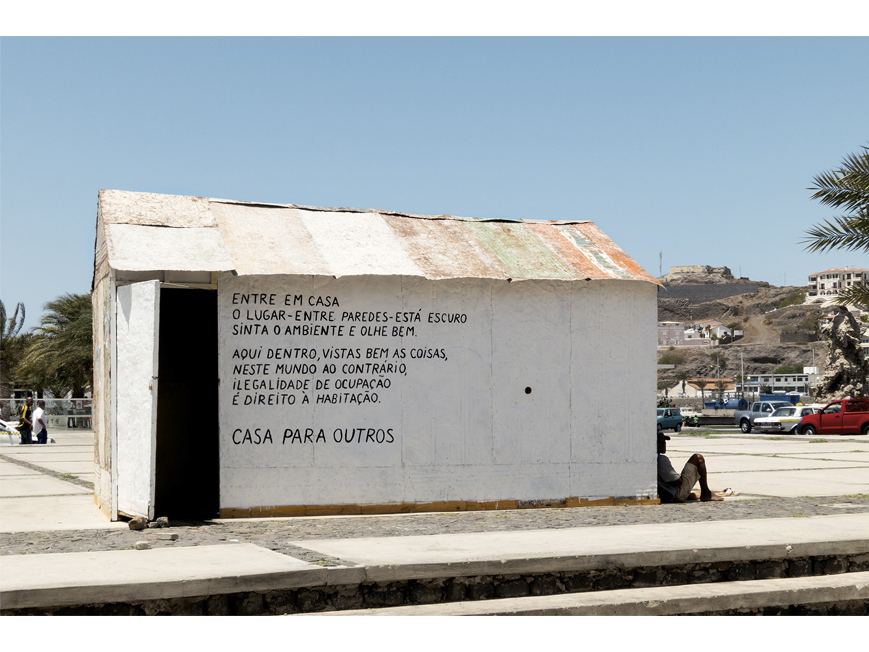
Casa para outros (instalação Ocupações) | 2013 | Diogo Bento (courtesy of the artist)14 dez 2019 | Margarida Calafate Ribeiro
MEMOIRS NEWSLETTER #79 | PT EN
Luanda, Lisbon, Paradise?
The end of the European overseas empires in the wake of decolonization was accompanied by armed conflict and insurrection. In the 1960s, 70s and 80s these processes brought significant population flows to Europe. These were marked by displacement, ambiguity and integration, but also by fractures, exclusions, segregation, invisibility, trauma and new and complex identities: the repatriated, pieds noirs, Portuguese returnees, veterans of colonial wars, former colonizers, former colonists, refugees from civil wars, immigrants.
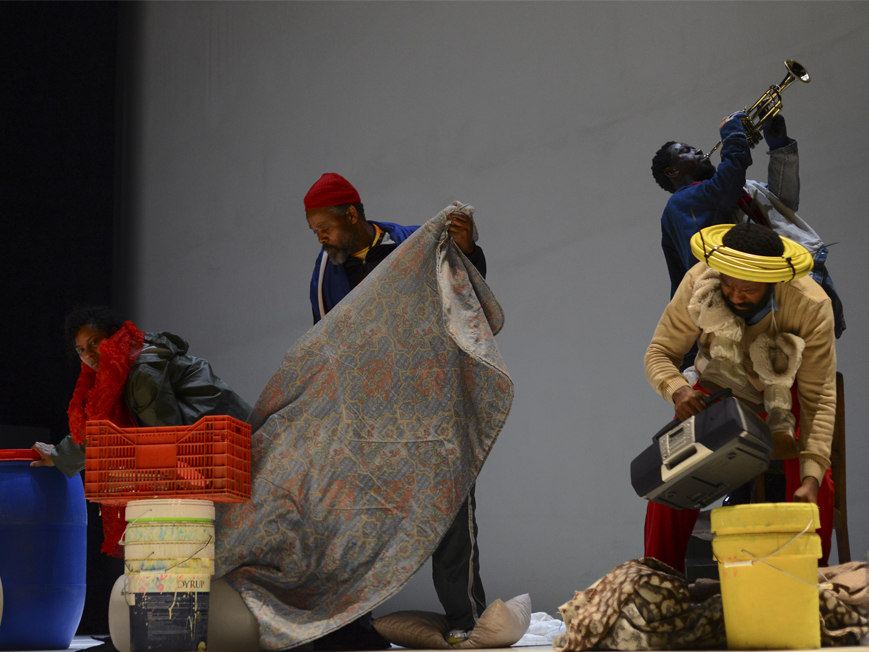
Que ainda alguém nos invente | 2018 | Sofia Berberan (courtesy of the artist)7 dez 2019 | Zia Soares
MEMOIRS NEWSLETTER #78 | PT EN
The contemporary, performing arts and funding: linguistic anachronisms
Teatro GRIOT is a company of actors. It was founded as this ten years ago because there was a need to produce shows that would enable black actors to work regularly. At the same time, though, it became clear that we needed to put the issues these actors faced in their everyday lives directly on stage.
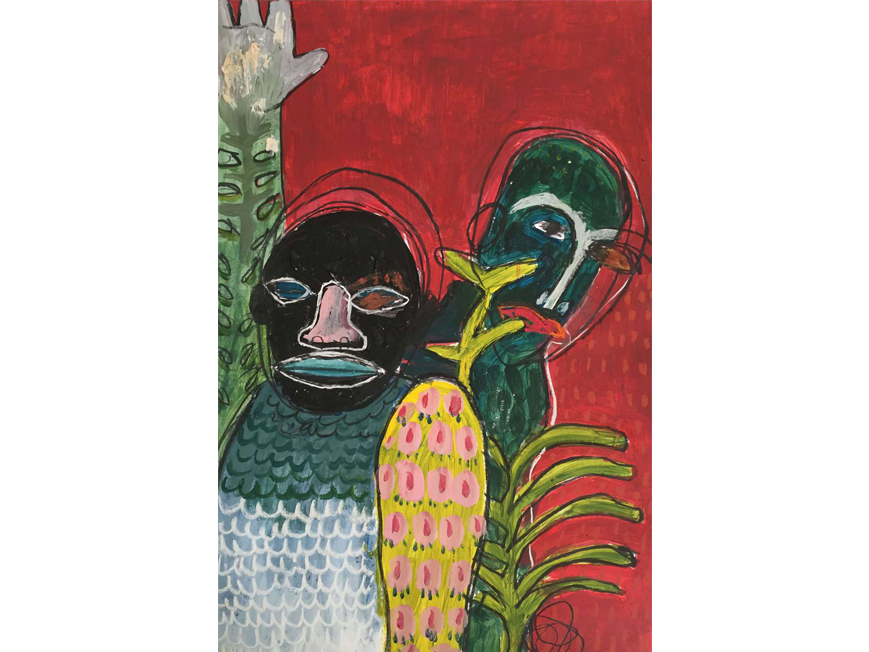
Dentu Sol | 2019 | Yuran Henrique (courtesy of the artist)30 nov 2019 | Fátima da Cruz Rodrigues
MEMOIRS NEWSLETTER #77 | PT EN
Portuguese Racisms
Lilian Thuram’s visit to Portugal between the 26th and 28th of November could not come at a more opportune moment. After a high profile career as a footballer, Thuram has thrown himself into anti-racist education through his Foundation. Their approach is captured by the proposition that “no-one is born racist, they become racist”.
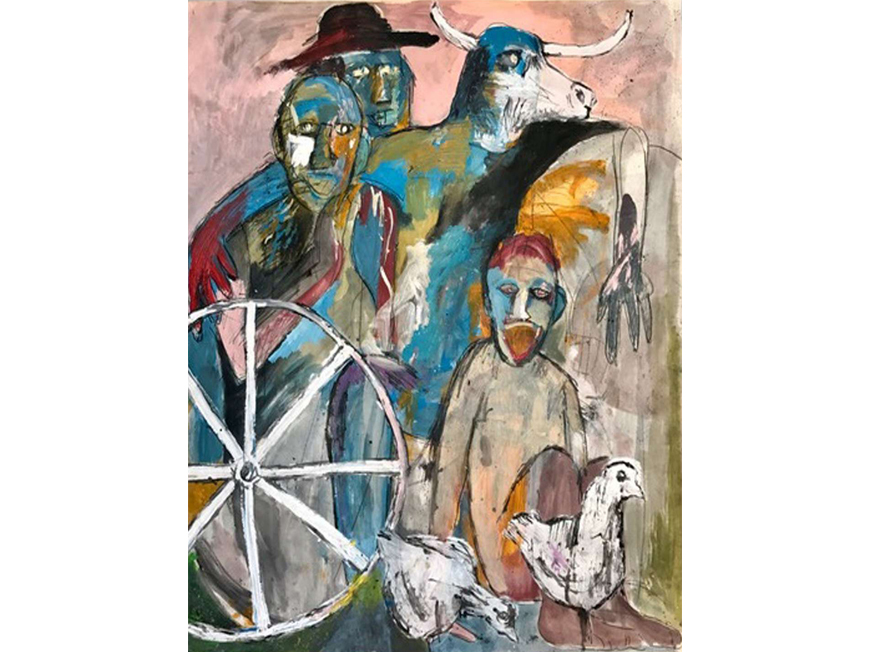
Romaria | 2017 | Yuran Henrique (courtesy of the artist)23 nov 2019 | António Sousa Ribeiro
MEMOIRS NEWSLETTER #76 | PT EN
Postmemory and Resentment
The concept of postmemory can only be correctly put under perspective in the framework of a theory of emotions. When Marianne Hirsch, in her already classic definition, stresses that there is postmemory where certain memories were passed out to a second generation “so deeply as to seem to constitute memories in their own right”, such a depth can only signify the inscription of those memories at the emotional level.
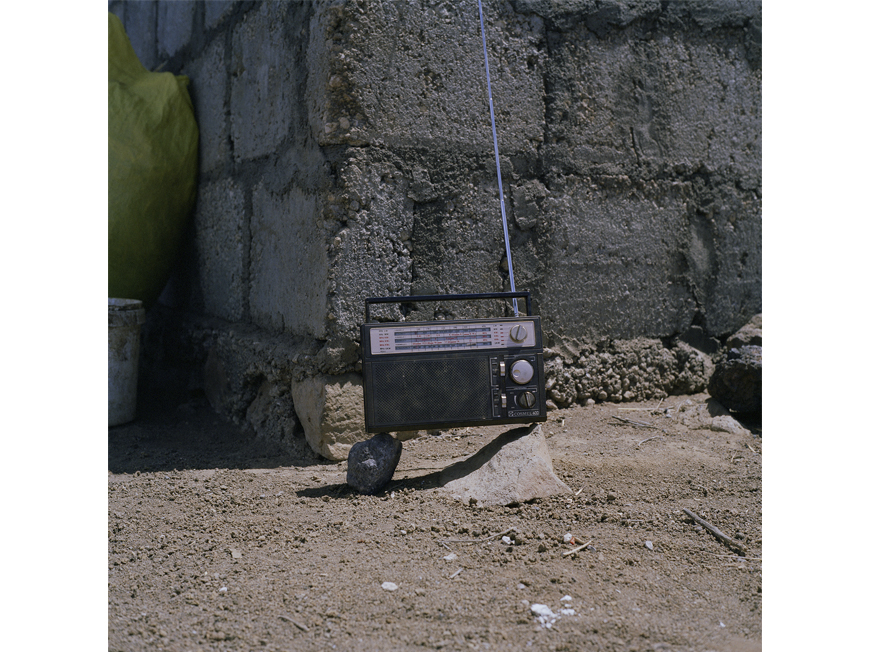
s/t (Rádio), from series Escuta os Bárbaros em Primeiro Lugar, Planalto Norte, Santo Antão | 2016 | Diogo Bento (courtesy of the artist)16 nov 2019 | Roberto Vecchi
MEMOIRS NEWSLETTER #75 | PT EN
Rituals of a fractured memory
In Avishai Margalit’s The Ethics of Memory, one of the classics of memory studies, the author notes that in memory, morality is often forgotten. We need to reflect, therefore, on the individual and collective ethics of the use of memory. This necessity emerges within ongoing conflicts over memory that emerge when the use of the past does not weave communal threads. It emerges when, in the dialectic of salvation and forgetting – the politics of loss – lived traumas are no longer the basis of an inclusive, holistic image of history.

The Missing Face | Paulo Faria´s private archive (courtesy of Paulo Faria)9 nov 2019 | Felipe Cammaert
MEMOIRS NEWSLETTER #74 | PT EN
Us, them, why? (by way of Paulo Faria)
In a recent piece in the newspaper Público, “O rosto que falta” [The Missing Face], Paulo Faria wrote about a photograph from the colonial war that an ensign showed him during an interview. The photo, cutting the middle of the double-page spread of the article, shows Portuguese soldiers in Guinea holding the body of an African man they have killed. It is a highly theatrical tableau. The body is in the foreground, and out of focus. The image, like all war photographs, is charged with the violence of the context in which it was produced.
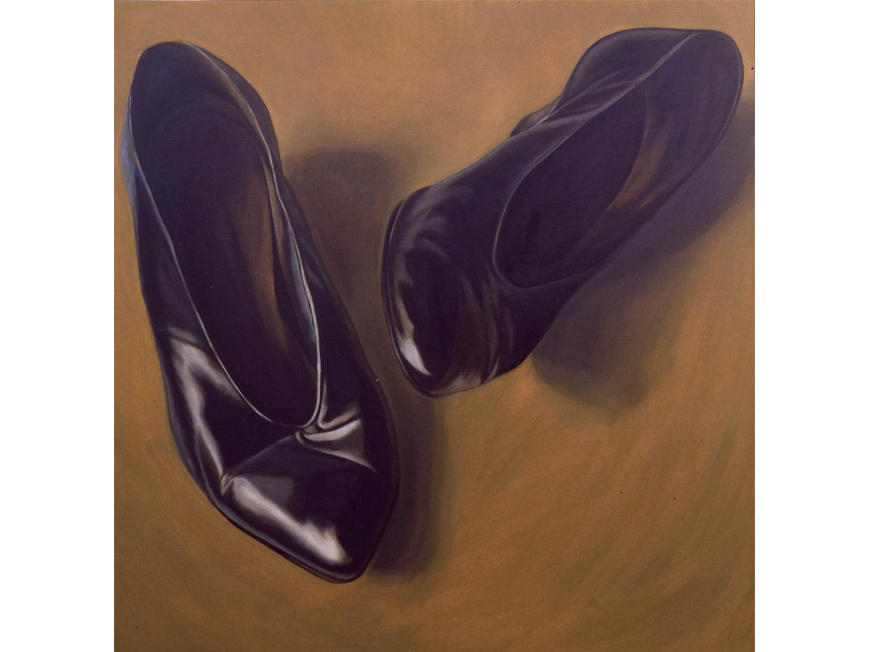
Shoes | 1994 | Teresa Dias Coelho (courtesy of the artist)2 nov 2019 | António Pinto Ribeiro
MEMOIRS NEWSLETTER #73 | PT EN
Museums: the ultimate contact zones
On the 24th of August 2007, ICOM, the International Council of Museums, created a definition of the museum as its ‘mission’ and ‘backbone’. We can begin there. “A museum is a non-profit, permanent institution in the service of society and its development, open to the public, which acquires, conserves, researches, communicates and exhibits the tangible and intangible heritage of humanity and its environment for the purposes of education, study and enjoyment”.
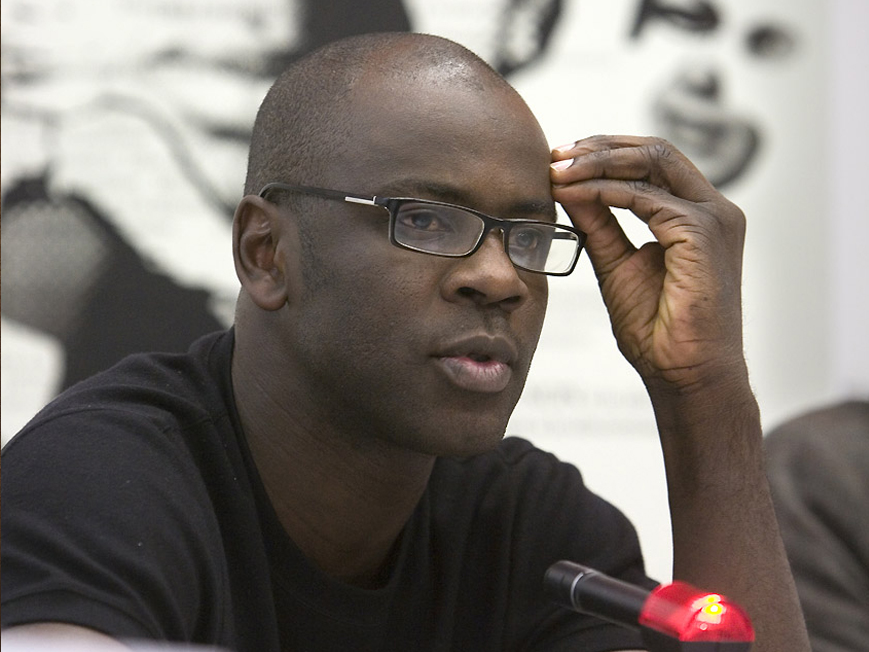
Lilian Thuram | Photo Conseil de l’Europe26 out 2019 | Fernanda Vilar
MEMOIRS NEWSLETTER #72 | PT EN
Why is racism still a European question?
Lilian Thuram, a French world-cup winning footballer in 1998, has recently returned to the centre of media attention in Europe. He spoke out in defence of a black footballer who was racially abused by football fans. Thuram had the courage to declare straightforwardly that white people believe themselves to be superior and that racism is a centuries-old construction, and therefore very difficult to change.
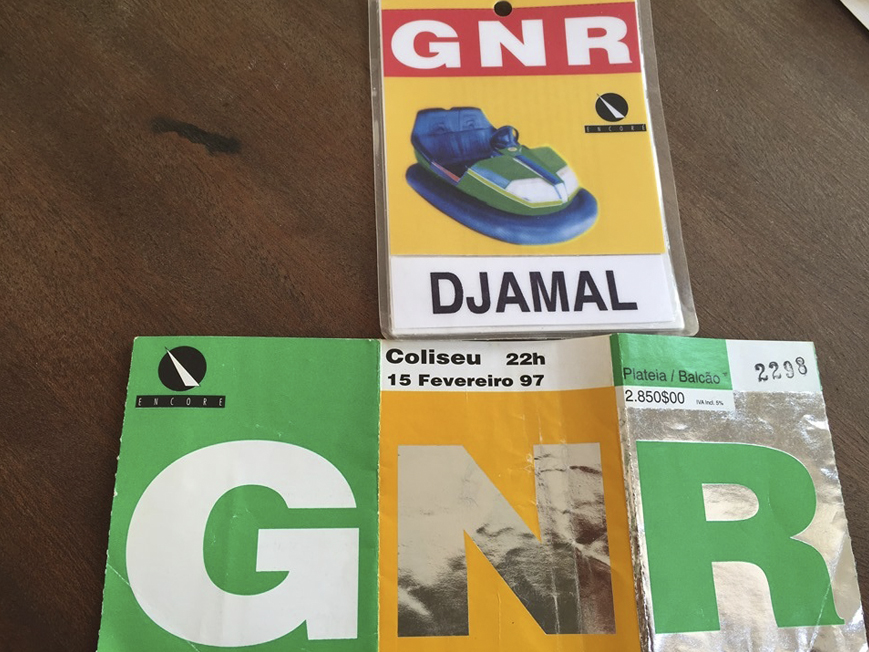
Ticket for Djamal and GNR´s concert| 1997 | Coliseu do Porto19 out 2019 | Miguel Cardina
MEMOIRS NEWSLETTER #71 | PT EN
The origins of rap in Portugal: Margins and centre, accommodation and emancipation
A recent controversy revolving around the musician Valete has launched a debate about the place of women in rap and hip-hop culture, and the persistence of deep-rooted misogyny among its protagonists. In one of his recent works, the rapper tells the story of a man who finds his wife with his best friend and unleashes a chauvinistic rage laced with insults, imagining shoving a shotgun down his partner’s throat.
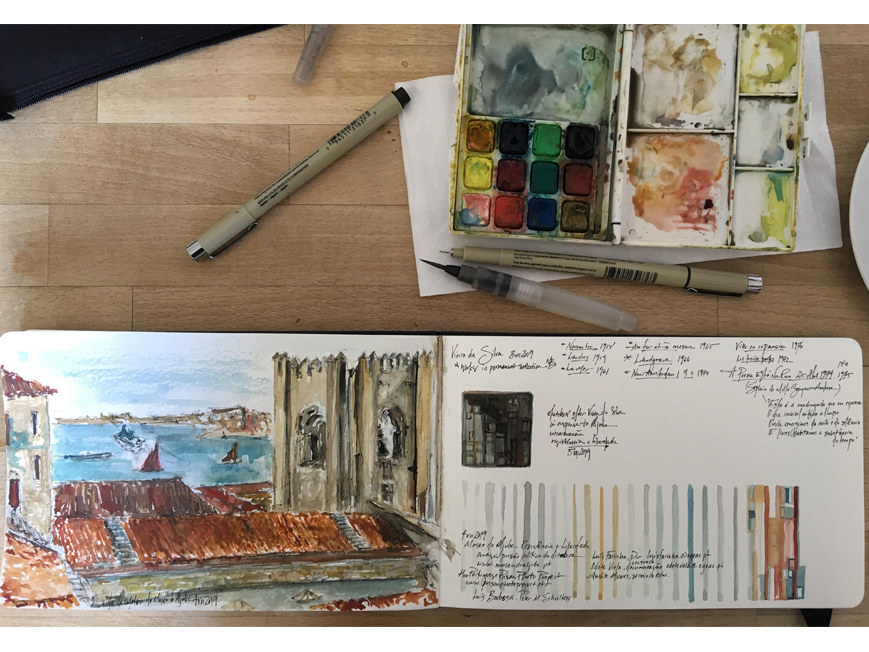
Sketchbook, Views from the Aljube, Lisbon (pencil, ink and watercolor drawings) | 2019 | Sharon Lubkemann Allen (courtesy of the artist)12 out 2019 | Sharon Lubkemann Allen
MEMOIRS NEWSLETTER #70 | PT EN
New navigators of Portuguese Cultural Memory
I have long been drawn to old maps retracing the routes of Portuguese navigation, as works of art exquisitely drawn on hand stretched parchment or paper, as historical artifacts crossed by Portolan lines that reflect innovation and limits of navigational understanding, as articles that have aged, been archived, retrieved, reframed in continually revisionary cultural contexts.
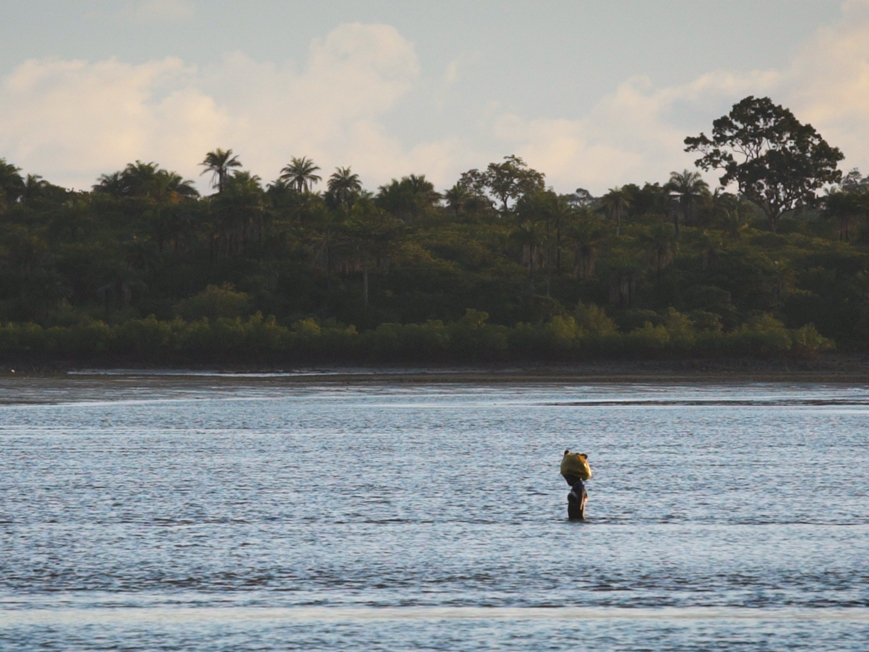
Guiné-Bissau: Da Memória ao Futuro | 2019 | Garden Films / CES-UC (courtesy of the director)5 out 2019 | Bruno Sena Martins
MEMOIRS NEWSLETTER #69 | PT EN
“Guinea-Bissau: From Memory to the Future”
On the 24th of September 2019, on the 46th anniversary of the independence of Guinea-Bissau, the documentary Guinea-Bissau: From Memory to the Future, directed by Diana Andringa, premiered on RTP Africa. The screenplay was written with Miguel Cardina, and the film was produced by Garden Films and the Centre for Social Studies (CES) at the University of Coimbra. The film was already familiar to me. It is the result of the work of researchers at the CES in Coimbra working on the project CROME – Crossed Memories, Politics of Silence. I also made a modest contribution as one of the interviewees, filmed when I took part in the Colloquium “Memórias e Legados das Lutas de Libertação” [Memories and Legacies of the Liberation Struggles], in Bissau in September 2018.
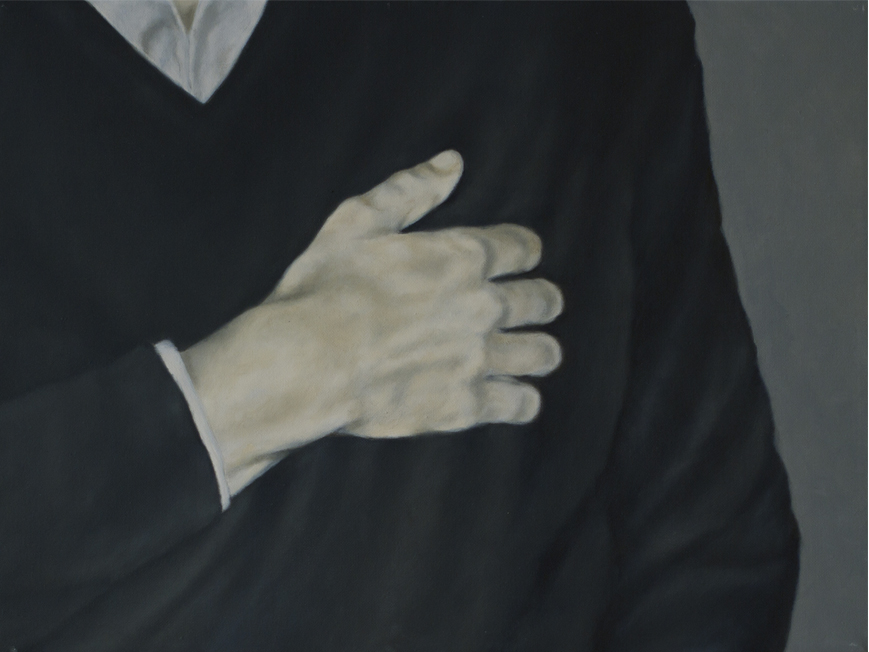
from series Mãos | 2015 | Teresa Dias Coelho (courtesy of the artist)28 set 2019 | Paulo de Medeiros
MEMOIRS NEWSLETTER #68 | PT EN
Silly, sinister, season: On “The Responsibility of Intellectuals” (I)
Summer is always over too soon. This year, however, its literal end and accompanying metaphorical continuation were felt even more rashly due to the intensified attacks on European democracies and any sort of future for a united, peaceful, Europe. Many causes can be adduced, yet I would like to focus on a single one for the moment: the inability of many Europeans to accept Europe’s postimperial condition and their wilful failure of memory.
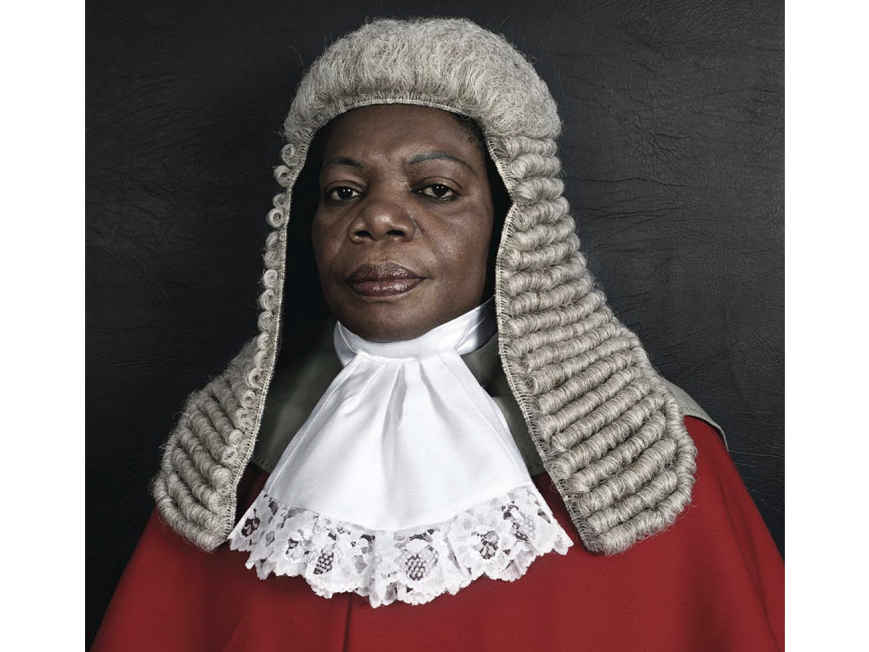
The Honourable Justice Julia Sakardie-Mensah | 2005 | Pieter Hugo (courtesy of the artist and Michael Stevenson, Cape Town)21 set 2019 | Margarida Calafate Ribeiro
MEMOIRS NEWSLETTER #67 | PT EN
Waiting for the Next Future (II)
The future of the West is now inextricably linked to that of the non-West. The environmental issues the world faces as well as the inexorable rise of the economic power of China and other Asian countries make it impossible for the West to consider ‘what comes next’ in the same ways as before. But the challenge is far deeper than the present debate on the ‘decline of the West’ suggests. My lecture will focus on how the postcolonial challenge to the West’s outlook on the world as well as the influence of citizens of non-Western origins living now in the West have combined to expose the limits of what I call Western rationality – by which I mean the theories we use to understand and act upon the world.
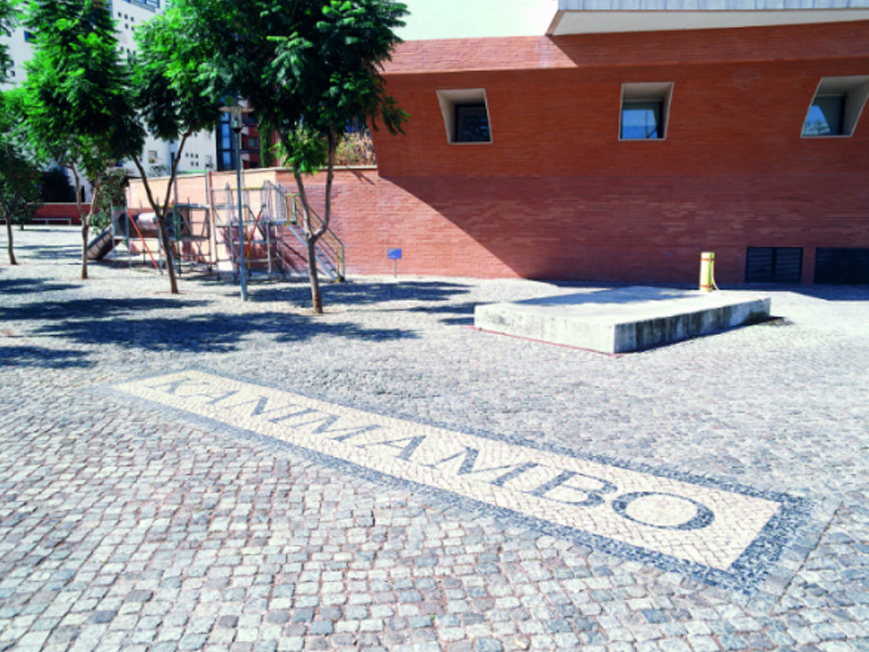
Kanimambo | 1998 | Ângela Ferreira (courtesy of the artist)14 set 2019 | Margarida Calafate Ribeiro
MEMOIRS NEWSLETTER #66 | PT EN
Waiting for the Next Future
An inaptly christened “return of the colonial past” has emerged in the last few years in Europe and in Portugal. In Portugal this is a past that has been more or less silenced since decolonization and the revolutionary period of 1974-75 with its movements of people, including the so-called ‘return’ of settlers, officials and military personnel from the former African colonies. That was the end of an era for Portugal and the beginning of another. Afterwards, apart from novels that narrated the realities of the Colonial War, silence was the watchword of the 1980s and 1990s regarding this recent Portuguese past.
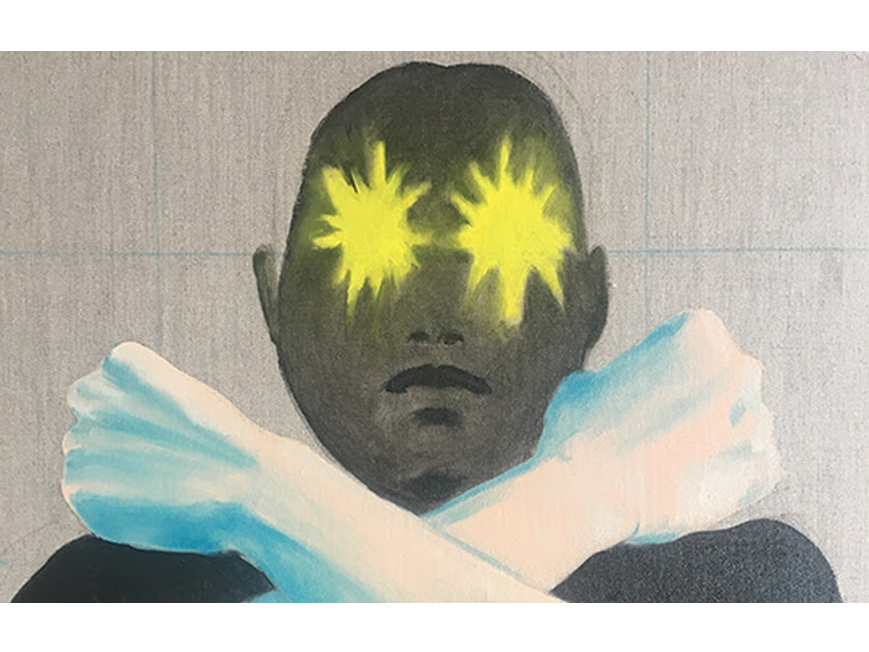
From the series Ma Demeure | 2018 | Dalila Dalléas Bouzar (courtesy of the artist)7 set 2019 | Helena Machado and Sheila Khan
MEMOIRS NEWSLETTER #65 | PT EN
The Memory and History inscribed in the Genetic Technologies of Fighting Crime
In his elegant essay, "The Idea of Europe", George Steiner romantically exalts and renders eternal a multicultural, cosmopolitan and borderless Europe. But this Europe is confronted with the ghosts of its past by terrorist attacks in France, Belgium and the United Kingdom. As Europeans, these attacks leave us stunned by our own memories and unable to make inferences or draw conclusions.
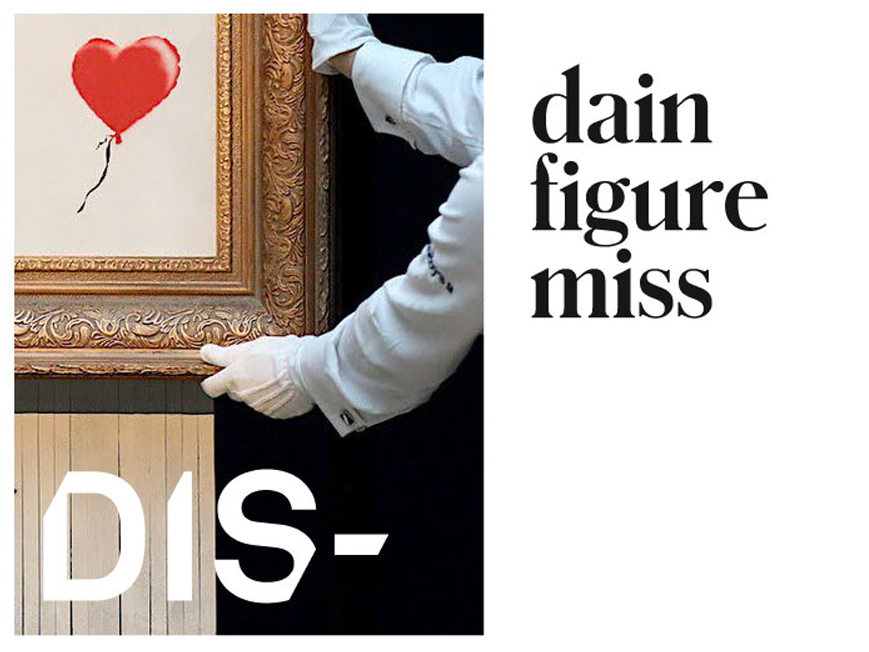
Dis- | 2019 | Arne Kaiser (courtesy of the artist)24 aug 2019 | Arne Kaiser
MEMOIRS NEWSLETTER #64 | PT EN
Dis-
Cultural life is our way of adding up creatively new facets to the societies we're living in. More often now we're seeing regressive movements and initiatives against it, trying to revive past myth and to rewrite the fundaments of our contemporaneity. Activism against change, initiatives contra-progress, retrocession versus creation; distrust in what is ambiguous and different, what does not easily fit into daily life or cannot get instantly valorised and consumed.
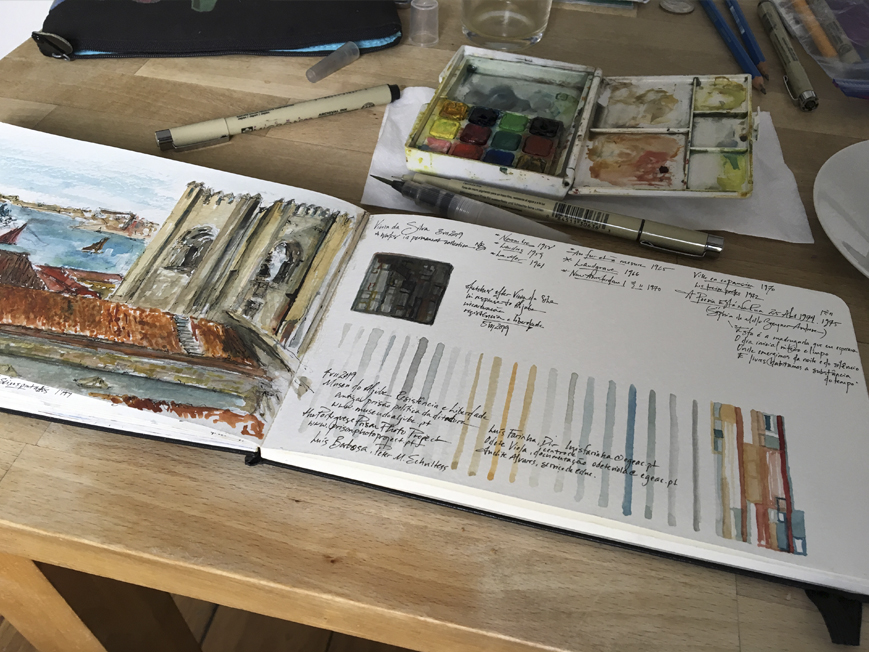
Sketchbook, views from the Aljube, Lisbon (pencil, ink and watercolor drawings) | 2019 | Sharon Lubkemann Allen (courtesy of the artist)17 aug 2019 | Fátima da Cruz Rodrigues
MEMOIRS NEWSLETTER #63 | PT EN
A brief reflection on the The Portuguese Prison Photo Project exhibition at the Museum Aljube - Resistance and Freedom
From the 11th of May to the 29th of September this year the Museum Aljube – Resistance and Freedom is showing an exhibition entitled The Portuguese Prison Photo Project. It consists of a set of photographs of Portuguese prisons by Luís Barbosa, a Portuguese social and cultural documentary photographer (winner of a Portuguese Society of Authors award for work around the exhibition), and Peter M. Schulthess, a Swiss architectural photographer who works primarily in prison spaces.
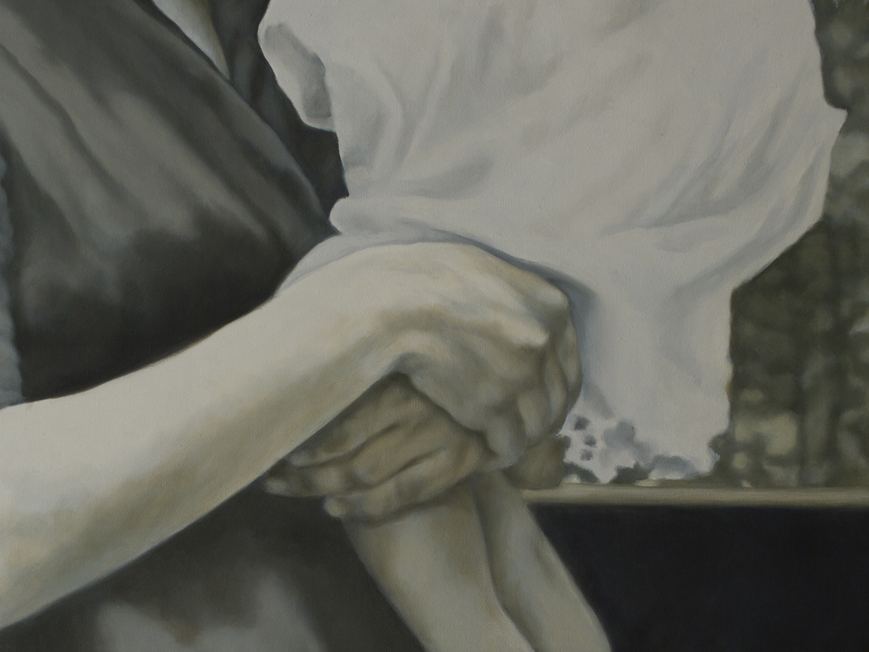
Series Mãos | 2015 | Teresa Dias Coelho (courtesy of the artist)27 jul 2019 | Irène dos Santos
MEMOIRS NEWSLETTER #62 | PT EN
Portugal-Angola: returns and detours for plural memories in Portuguese society
Since the 2000s there has emerged in Portugal a plurality of narratives on the colonial past, with a multiplication of fictional and biographic accounts published by/on veterans of the colonial war, along with deserters, members of the resistance and anti-colonialists, and retornados. Such memories and postmemories, under analysis in the academic fields of literary theory and postcolonial studies, have contributed to the visibility of the memorial question in public space.
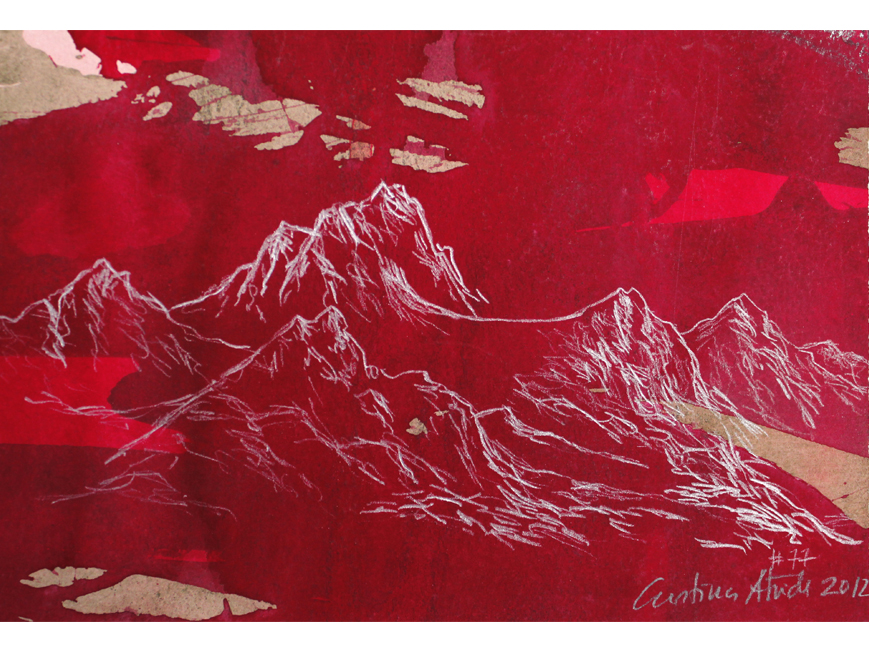
Mínimos detalhes de paisagem | 2015 | Cristina Ataíde (courtesy of the artist)20 jul 2019 | Paulo de Medeiros
MEMOIRS NEWSLETTER #61 | PT EN
Windrushes [1]
It is late and the Angel of Benjamin, his “Angel of Progress’ and no longer Paul Klee’s Angel, lies itself in ruins amid the rubble of centuries. His distorted face and broken wings smeared with red blood, as it failed utterly not so much to stop the wind rushing from Paradise, but another kind of wind, more seemingly out of Hell, or what passes for Hell in our present, the all—too—human perversion of the powerful, intent in reducing everyone to the condition of slaves or animals.
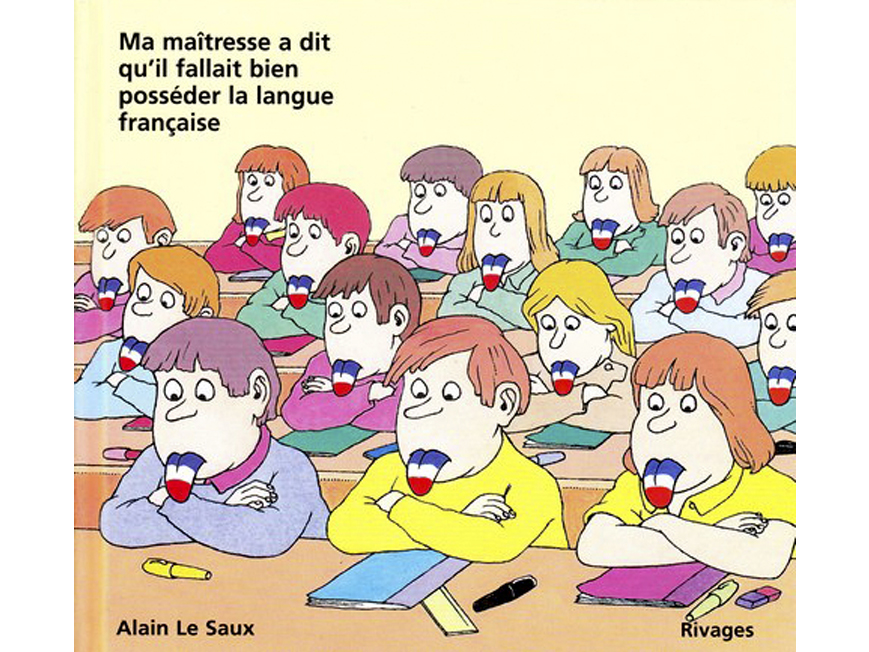
Ma maîtresse a dit qu’il fallait bien posséder la langue française13 jul 2019 | Graça Dos Santos
MEMOIRS NEWSLETTER #60 | PT EN
Glotophobia: from linguistic discrimination to accent racism
“In our society, language is a powerful and unrecognized instrument of domination and discrimination. Imposing your language as the only acceptable, respectable or reasonable one, and belittling, disqualifying or rejecting another person for their way of speaking, their accent or their vocabulary is as illegitimate as rejecting them for their religion, the colour of their skin or their sexual orientation – forms of discrimination more or less recognized and punished by the law in France”. Discriminations based on language are, however, generally ignored, even though they affect thousands of people.
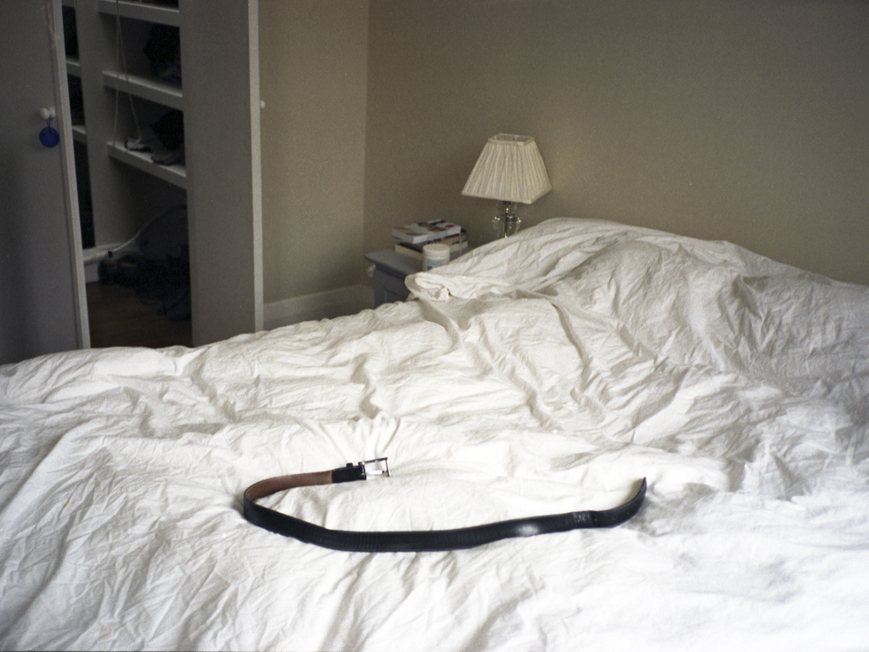
The Bedroom in English | 2015 | Tatiana Macedo(courtesy of the artist)6 jul 2019 | Roberto Vecchi
MEMOIRS NEWSLETTER #59 | PT EN
Scenes of colonial memory: decay and the ruins of Macau
Decay is not just one shade of a certain stripe of modernity. It is also a way of looking, with hindsight, at a charged and potent past: the irremovable stain of decay to which Frantz Fanon referred in the context of the war in Algeria. Decay therefore assumes the form of a taut relationship between the present and the past. It can also be inscribed within a dynamic of the transmission of the past, in which the communication of experienced memory is altered. This too is a profound reformulation. Memory degrades and almost loses its power of representation: identification with an emptied past brought close to extinction becomes impossible.
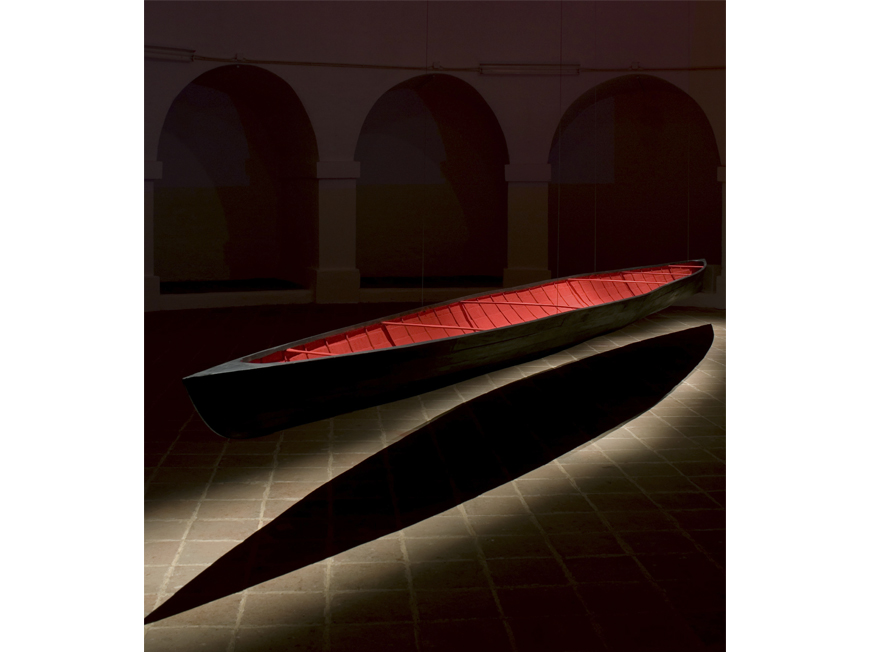
Impermanências (photo by Alberto Mayer) | 2009 | Cristina Ataíde (courtesy of the artist)29 jun 2019 | António Pinto Ribeiro
MEMOIRS NEWSLETTER #58 | PT EN
Restitution is everywhere
Some time ago a friend sent me a message: “this thing about the restitution of works of art suddenly seems to be everywhere. Or am I the only one who hadn’t noticed before? ... it’s even in a detective novel I’m reading”. It is indeed everywhere, and not all of a sudden. Indeed, demands for the restitution of works appropriated both during and the end of formal colonialism began to emerge in the eighteenth century. However, the scale of the international debate and discussion of how to implement restitution have taken on fresh impetus recently, in particular after French President Emmanuel Macron announced in a speech in Ouagadougou that the French State intended to return works expropriated from former French colonies held in the museums and archives of France.
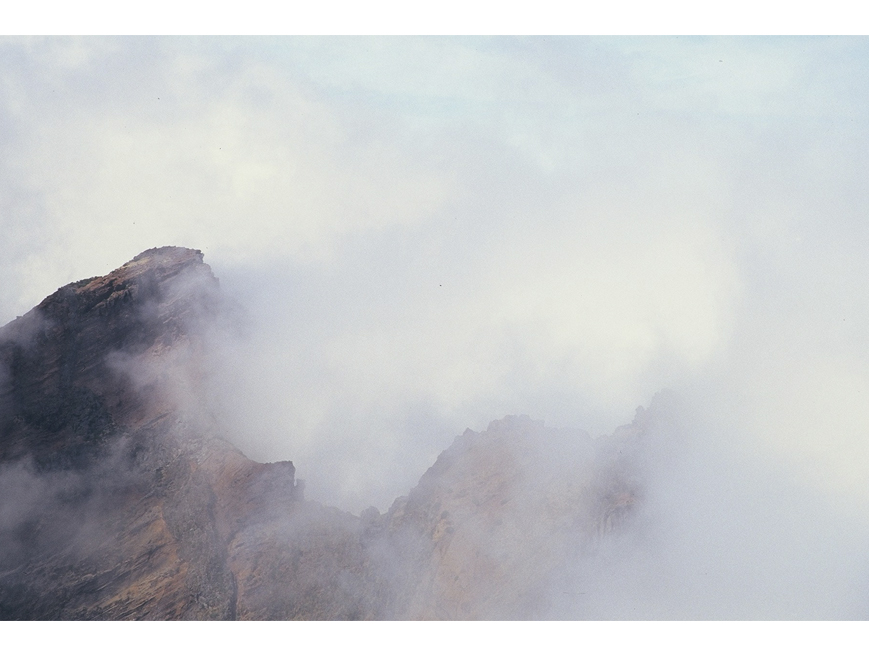
Pico do Areeiro #1 - Madeira | 2008 | Cristina Ataíde (courtesy of the artist)22 jun 2019 | Felipe Cammaert
MEMOIRS NEWSLETTER #57 | PT EN
European masks
In contemporary Europe, several decades after the end of colonialism, racism continues in many social spaces of a continent that still struggles to face up to its imperial past. News of racist episodes abounds. The growing presence of parties of the extreme right in Europe (as shown by, among other things, the recent European election results) has encouraged exclusionary discourses and behaviours by some citizens against others.
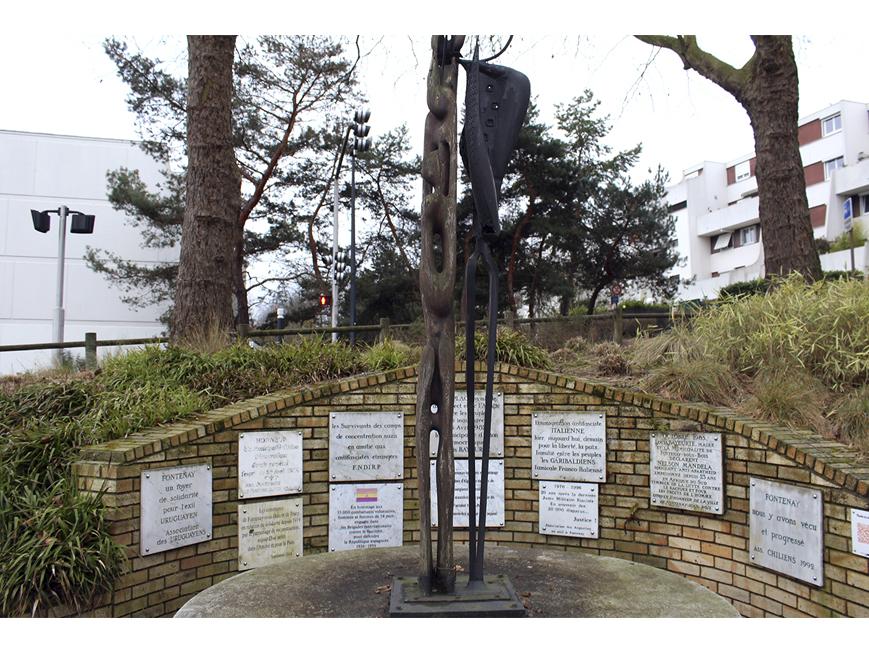
Memorial 25 de Abril, Portugal da Liberdade | Fontenay-sous-Bois, France (wikimedia commons)15 jun 2019 | Miguel Cardina
MEMOIRS NEWSLETTER #56 | PT EN
The refusal of war and the colonial abyss
On one of the walls hangs the large, white, sculpted marble map that represents Portuguese explorations of the 15th and 16th centuries. A shaft of light illuminates Africa. We glimpse the shadow§of Salazar, making his famous Braga speech of 1936 and declaring the indubitable trinity of God, the Fatherland, and the Family. So ends the exhibition that was open between April and May in the Casa de Portugal of the Cité Universitaire in Paris, Refuser la Guerre Coloniale [Refusing the Colonial War], organized by the association Mémoire Vive [Live Memory].
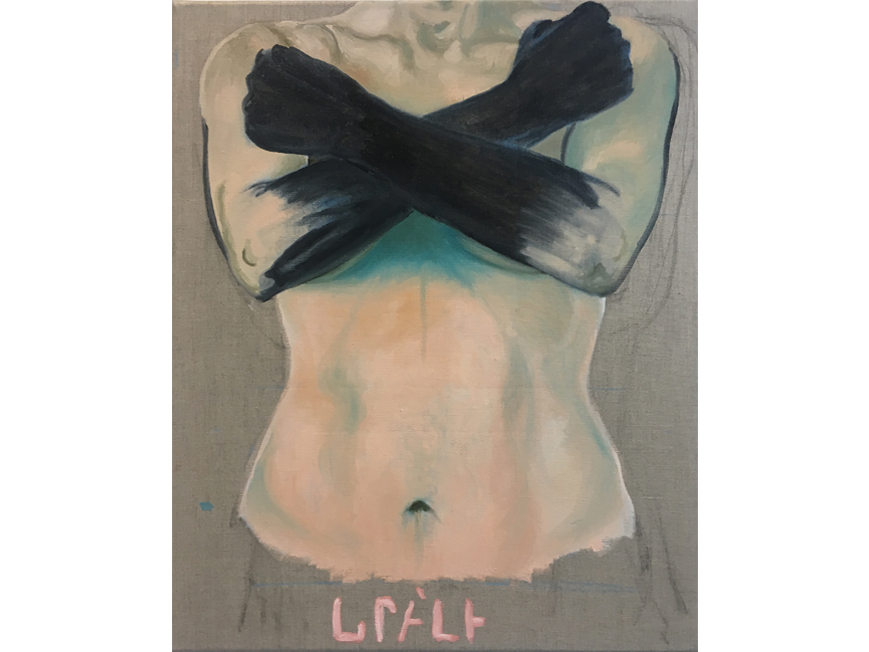
Sorceress | May 8th to July 27th | Group exhibition | Julien Salaud, Katia Bourdarel, Dalila Dalléas Bouzar, Mehdi-Georges Lahlou, Marion Laval-Jeantet, Myriam Mechita, Annette Messager, Lionel Sabatté... Curator Marie Deparis-Yafil, H2M, Bourg-en-Bresse (courtesy of the artists)08 jun 2019 | Fernanda Vilar
MEMOIRS NEWSLETTER #55 | PT EN
Silences which become art
On the 23rd February 2005 the French parliament passed a law stating “the recognition by the Nationof repatriated French people” and declaring France’s desire to revisit its colonial past, in particularby including it in school and university curricula. Fourteen years have passed since the passing of that law. Since then majority of the debate that has taken place has been within a revisionist atmosphere, but it is only recently that studies have emerged that question the official narrative.
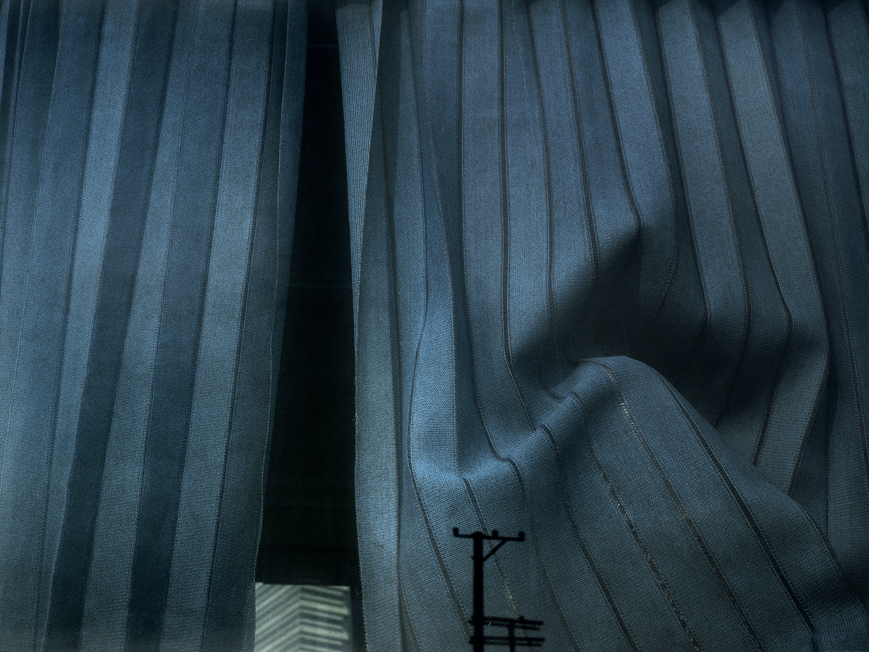
Orientalism and Reverse | 2015 | Tatiana Macedo (courtesy of the artist)01 jun 2019 | Alexandra Reza
MEMOIRS NEWSLETTER #54 | PT EN
Recalcitrant domestics on the radical radar
Saidiya Hartman’s article, “The Anarchy of Colored Girls Assembled in a Riotous Manner” (2018), offers a “speculative history” of Esther Brown, a black woman living in New York in the early decades of the twentieth century. Hartman seeks to understand Esther Brown’s “wild and wayward” (469) life, how and why the state incarcerated her, and the significance of the collective noise strikes in which she participated in prison.
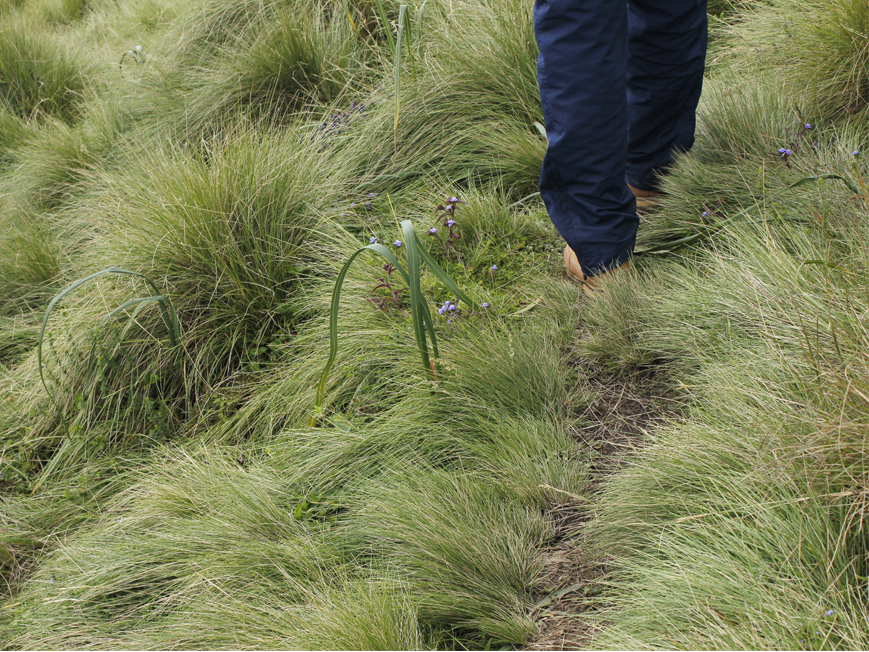
Ethiopian Walks | 2017 | Cristina Ataíde(courtesy of the artist)25 may 2019 | Bruno Sena Martins
MEMOIRS NEWSLETTER #53 | PT EN
Black People in Portugal
Originally published in 1988, the book Os Negros em Portugal [Black People in Portugal], by José Ramos Tinhorão, has recently been re-issued in a third edition by the publishing house Caminho. Tinhorão’s work gives an overview of different aspects of the presence of a significant black African population in Portugal, established as a result of the slave trade which began in the 15th century. The persistent dominance of a kind of lusotropicalist reticence as regards the colonial past has been one of a number of factors that have meant that Portuguese historiography has been slow to give adequate weight to the subject of slavery.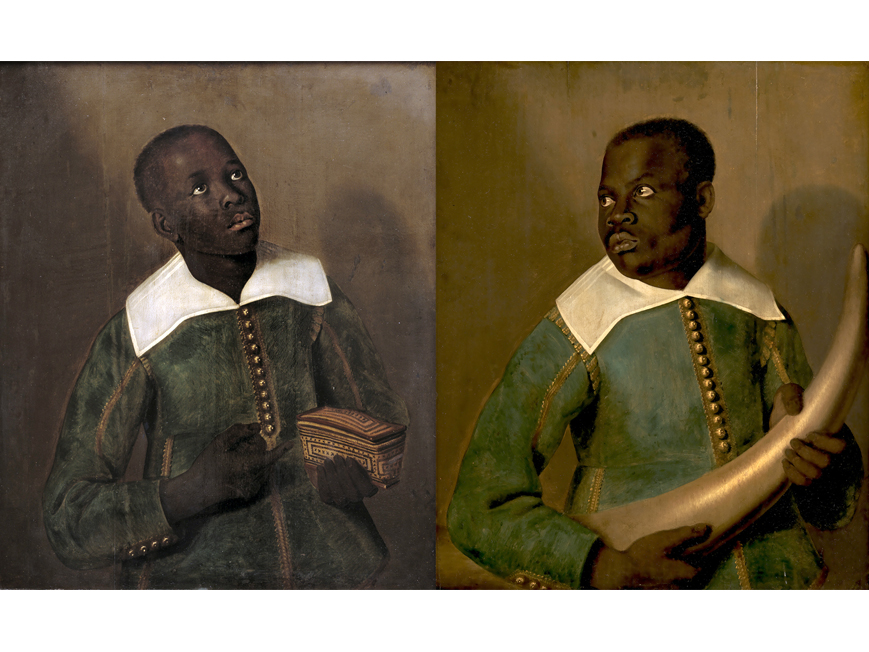
Portrait of two servants, Diego Bemba and Pedro Sunda, who accompanied D. Miguel de Castro, Congo ambassador, to Brazil| 1643 | Albert Eckhout (1610-1665)18 may 2019 | Miguel Bandeira Jerónimo
MEMOIRS NEWSLETTER #52 | PT EN
“Congoísmos”, to the North (and South)
The production of layers upon layers of stereotypes has always been useful for the (geo)political imagination. The making of stereotypes has functioned in different ways across different historical contexts, with any number of protagonists and interests at stake. Stereotypes have served, and continue to serve, many ideologies, and have been justified in many ways. Producing stereotypes has been, and continues to be, profitable for many fields, including academics and artists, who frequently, and without hesitation, play parts in political and ideological perations which run directly counter to their self image of autonomy, criticism and dignity.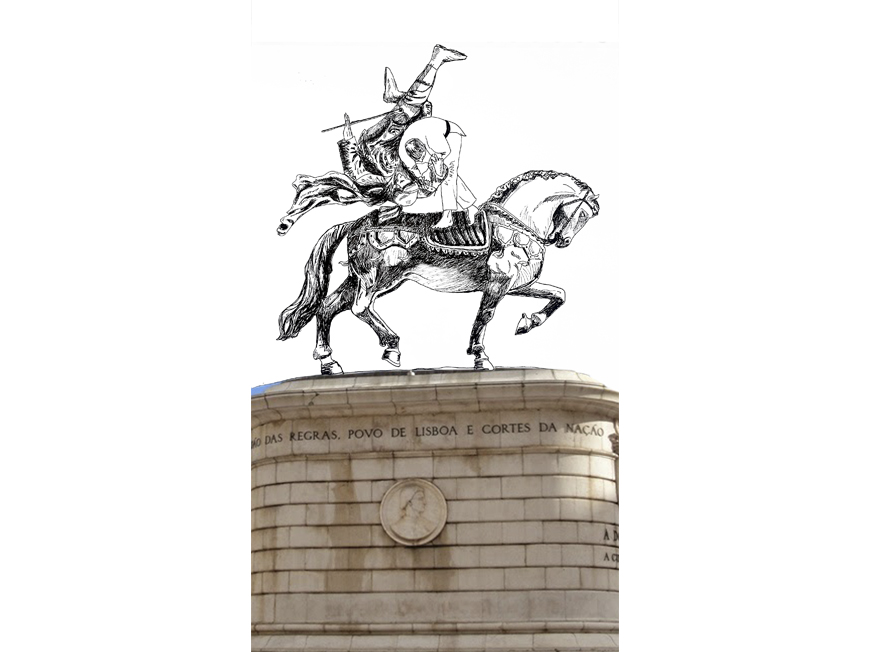
from the serie Sporting Narratives | 2018 | Márcio Carvalho (courtesy of the artist)11 may 2019 | Tiago Mota Saraiva
MEMOIRS NEWSLETTER #51 | PT EN
The good Portuguese architect – tropicalizing colonialism: a critical reading of the post-colonial narrative of “Portuguese architecture”
Post-colonial studies have taken a central role in problematizing identity, and, accordingly, in political debate. From a European perspective, these post-colonial studies are among the most important areas of knowledge for constructing the future of Europe and its relationship with the world.
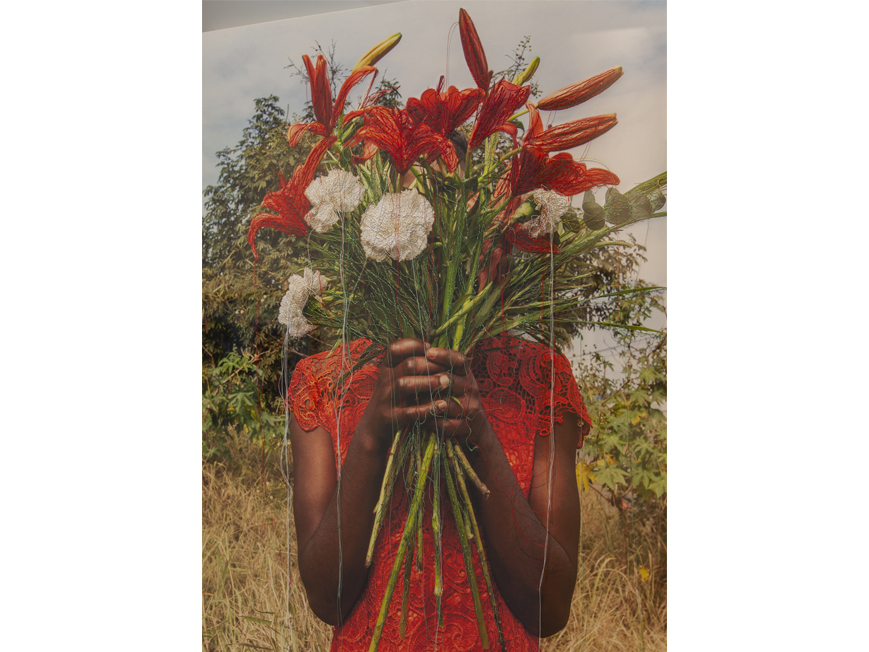
You can cut all the flowers but you cannot keep spring from coming | 2018 | Mónica de Miranda04 may 2019 | António Sousa Ribeiro
MEMOIRS NEWSLETTER #50 | PT EN
Autotopographies - Peter Weiss in Auschwitz
It is well-known that the concept of postmemory was gradually incorporated in scientific discourse in the wake of the publication of the book Family Frames, by Marianne Hirsch, in 1997. Reflection on the transgenerational dimensions of the notion of memory is, however, of course, much earlier than Hirsch’s proposal.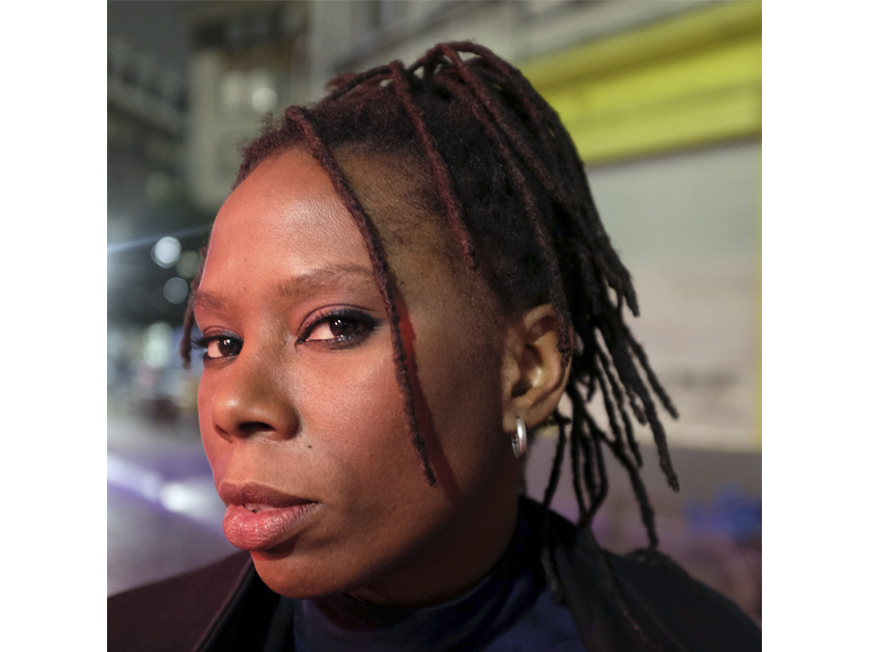
Joëlle Sambi | 2019 | Lyse Ishimwe27 avr 2019 | Joëlle Sambi
MEMOIRS NEWSLETTER #49 | PT EN FR AUDIO
Musala, le travail
C’est qu’il faut marcher dans les clous, sourire toutes dents au vent : à ses collègues attroupés autour de la machine à café (pause)
Trois fois par jour. Trois fois.
Même si c’est déjà la fois de trop, même si ce sont les mêmes collègues et que tu les as déjà croisés dans l’ascenseur, dans le couloir, au troisième étage, en réunion et parfois — pas de chance — à la sortie des toilettes (...)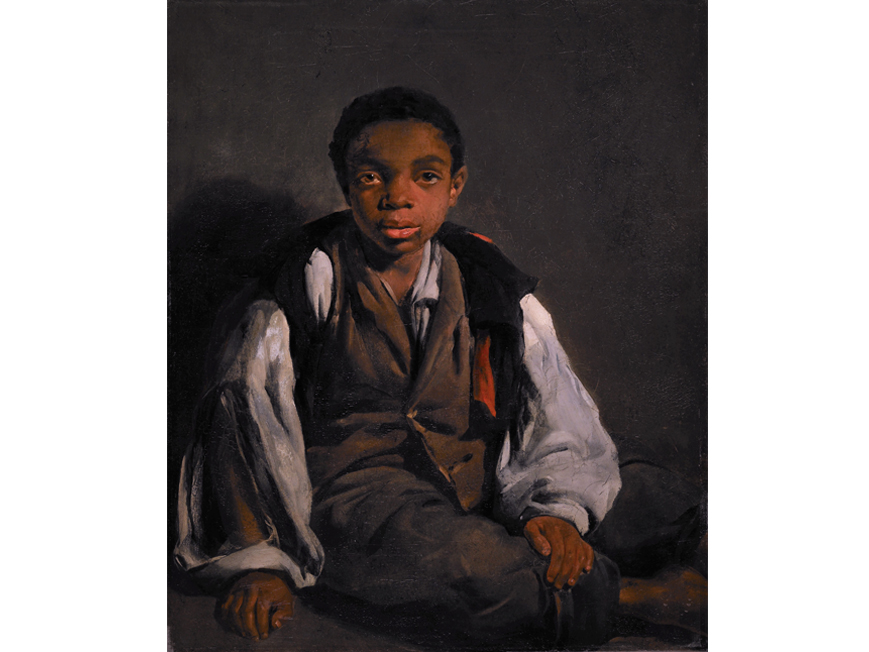
The Black Boy | 1844 | William Lindsay Windus20 apr 2019 | Hélia Santos
MEMOIRS NEWSLETTER #48 | PT EN
Invisible Portuguese
In the last two years in Portugal we have witnessed intense public debates about national identity. These have taken on a previously unheard tenor not only in terms of the currency they have accrued outside the academic world, but also in terms of the actors who have received media attention and influenced public opinion. In particular, a number of associations of young people of colour, both Portuguese and others living in Portugal, such as DJASS, INMUNE and Plataforma Gueto (...)
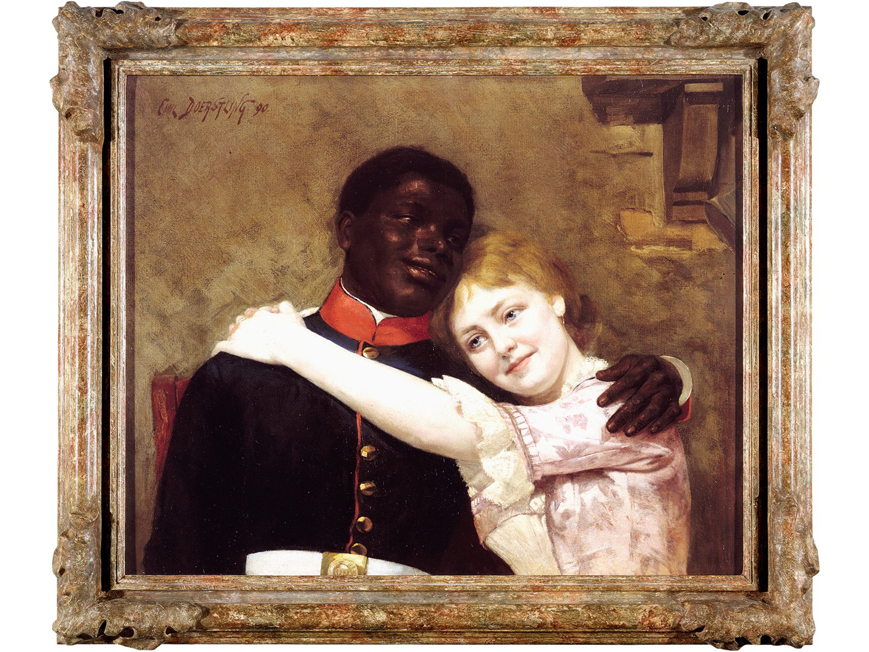
Bonheur d’Amour Prussien | 1890 | Emil Doerstling13 apr 2019 | Ana Paula Rebelo Correia
MEMOIRS NEWSLETTER #47 | PT EN
Black, between painting and history
Can a white, European man represent a black, Afro-Brazilian man? This question, asked by António Pinto Ribeiro in 2006, could have been the epigraph for Noir. Entre Peinture et Histoire [Black. Between Painting and History], recently published in France. The book takes us on a journey through European painting from the fifteenth century to the beginning of the twentieth, to discover how white European painters and their patrons understood and represented black people.
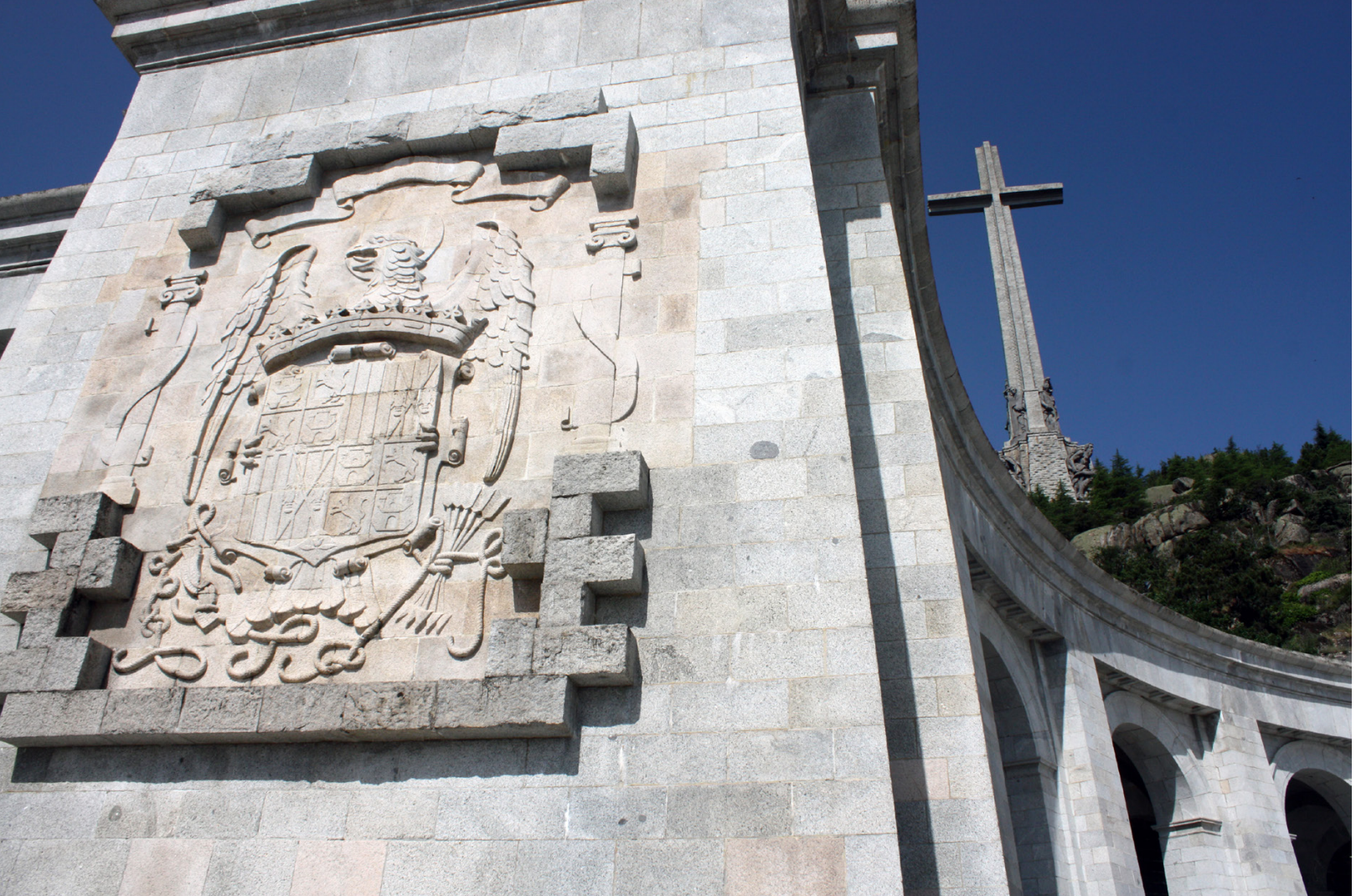
Valley of the Fallen |Photo by Francisco Ferrándiz06 apr 2019 | Francisco Ferrándiz
MEMOIRS NEWSLETTER #46 | PT EN ES
The Valley of The Fallen in 21st century Spain
The Valley of the Fallen is the most controversial monument in contemporary Spain. It was first imagined by Francisco Franco during the Civil War (1936-1939) to host the bodies of the winners in the conflict and establish a permanent religious cult to commemorate their martyrdom and sacrifice.
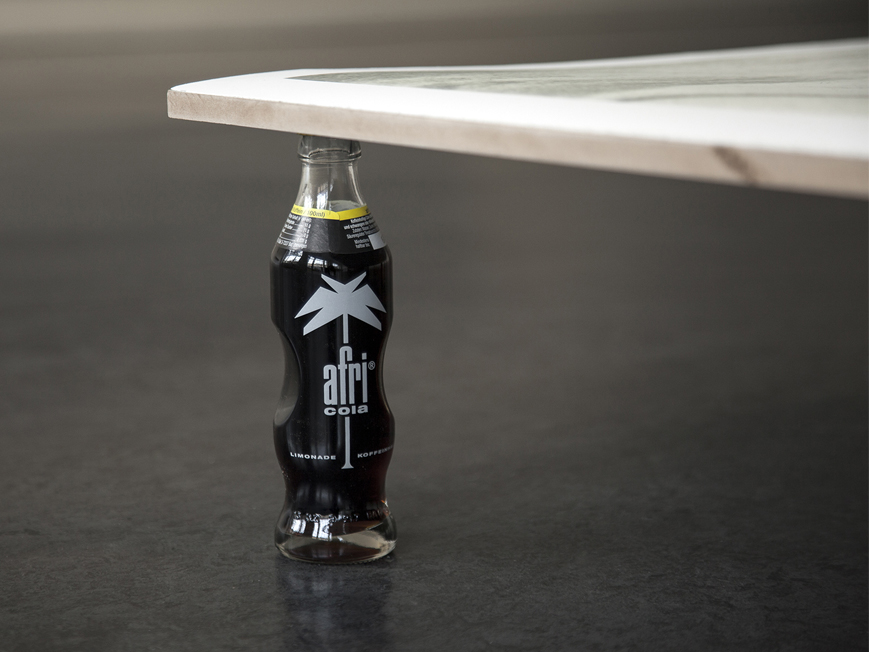
Afri-Cola | 2017 | Tatiana Macedo(courtesy of the artist)30 mar 2019 | Margarida Calafate Ribeiro
MEMOIRS NEWSLETTER #45 | PT EN
48 War portraits / 48 Time bombs / 48 Elegies
W.H.R. Rivers was a British anthropologist and psychiatrist at Craiglockhart military hospital in Scotland. On the 4th December 1917, as the First World War was raging, Rivers gave a now classic speech on ‘The Repression of War Experience” at the Royal Society of Medicine in London, later published in The Lancet in February 1918.
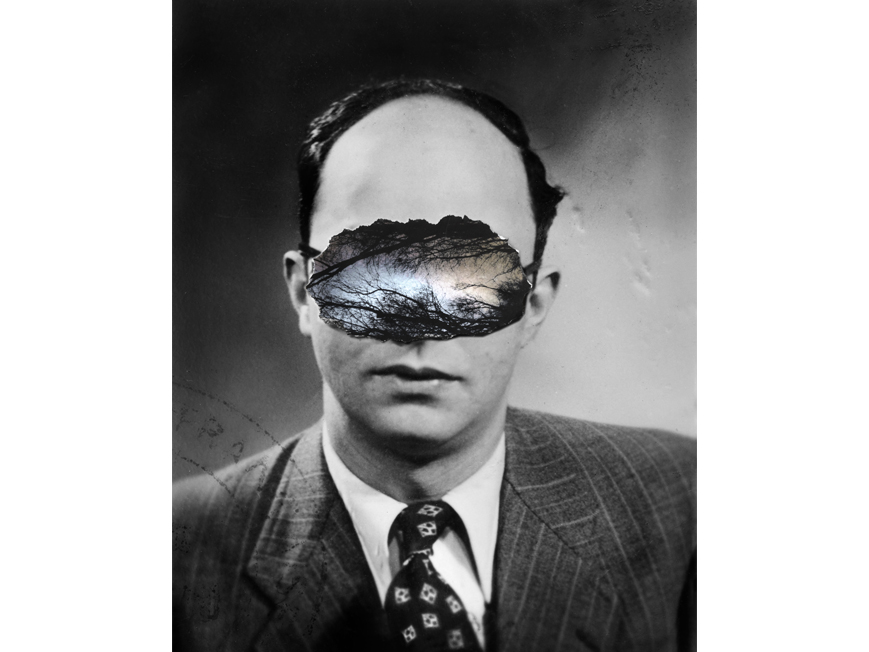
Loup de verdure | 2017 | Louise Narbo (courtesy of the artist)23 mar 2019 | Fátima Rodrigues
MEMOIRS NEWSLETTER #44 | PT EN
What you can do when seeing with another person’s eyes
(...) Narbo’s photographs provoke us to think about the processes that make up post-memory, that is a “second-generation memory, the child of a first, witnessed memory (living, present, experiential), marked by silence”.

Fantástica (from Open House series) | 2006 | José Bechara (courtesy of the artist)16 mar 2019 | Paulo de Medeiros
MEMOIRS NEWSLETTER #43 | PT EN
Assassins
At one point in Toni Morrison’s Pulitzer Prize winning novel Beloved (1987), Sethe, the main protagonist, says: “Some things go. Pass on. Some things just stay. I used to think it was my rememory. You know. Some things you forget. Other things you never do. But it’s not. Places, places are still there.
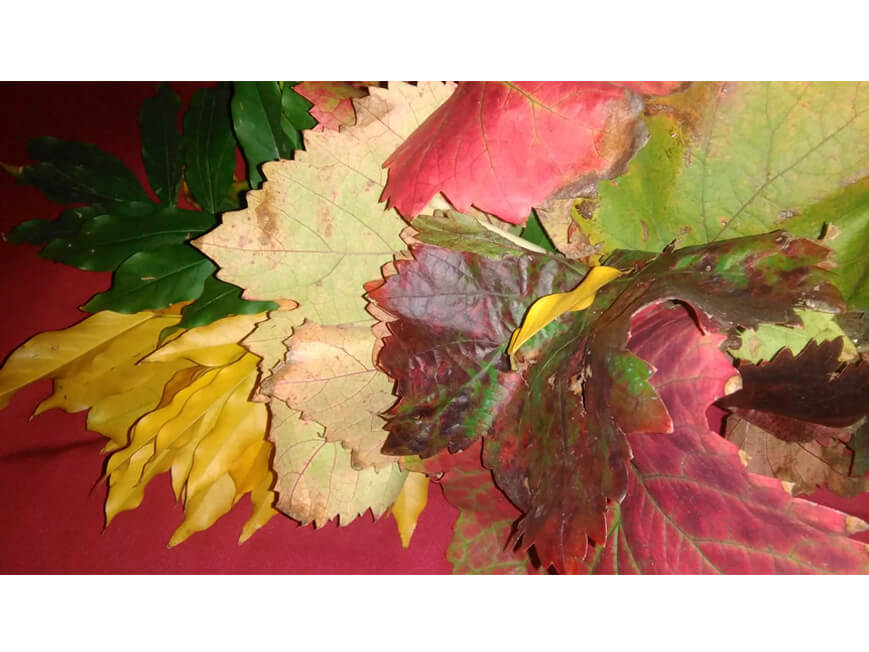
Autumn Leaves | 2018 | Anonymous author09 mar 2019 | Roberto Vechi
MEMOIRS NEWSLETTER #42 | PT EN
Institutionalized celebration and monsters of memory
Does memory, as the poet Julio Castañon Guimarães puts it, in a well-known single-versed poem “have its days numbered”?
In Italy, memory has its own special celebration, the ‘Day of Memory’, on the 27th of January.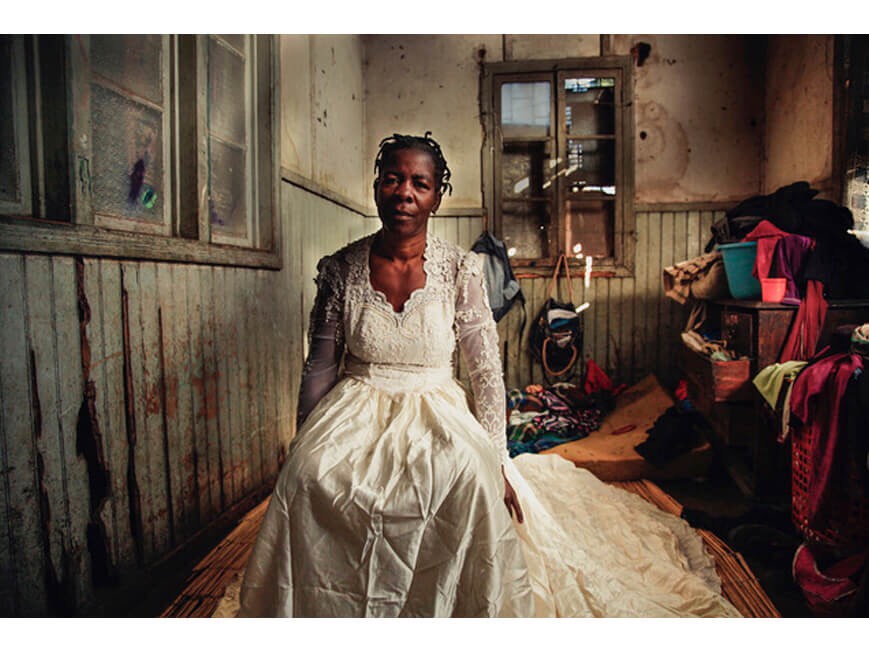
Madrinhas | 2018 | Amilton Neves(courtesy of the artist)02 mar 2019 | Rui Trindade
MEMOIRS NEWSLETTER #41 | PT EN
Mozambican “madrinhas de guerra”: a story to be told
Madrinhas de Guerra, ‘Wartime Godmothers’, an exhibition by the young Mozambican photographer Amilton Neves that appeared in the 2018 Maputo Fast Forward festival, has the merit, among other things, of bringing to public attention a theme that many continue to consider ‘delicate’ even 40 years after independence.
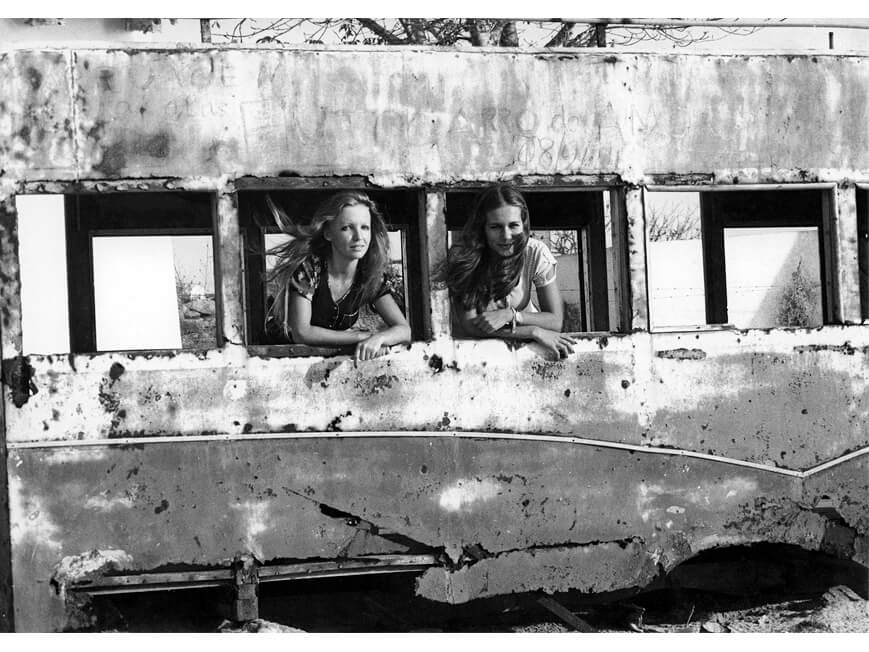
Luanda | 2018 | Tatiana Macedo (courtesy of the artist)23 feb 2019 | Felipe Cammaert
MEMOIRS NEWSLETTER #40 | PT EN
On the Colonial War: memories and post-memories, transmission and imagination
The distance between the writer and the traumatic reality about which they write determines the result of literary attempts to convey the experience of violence. Nevertheless, there are similarities between the artistic representations of memory offered by direct witnesses of events and those re-elaborated by their descendants (those we call post-memories).
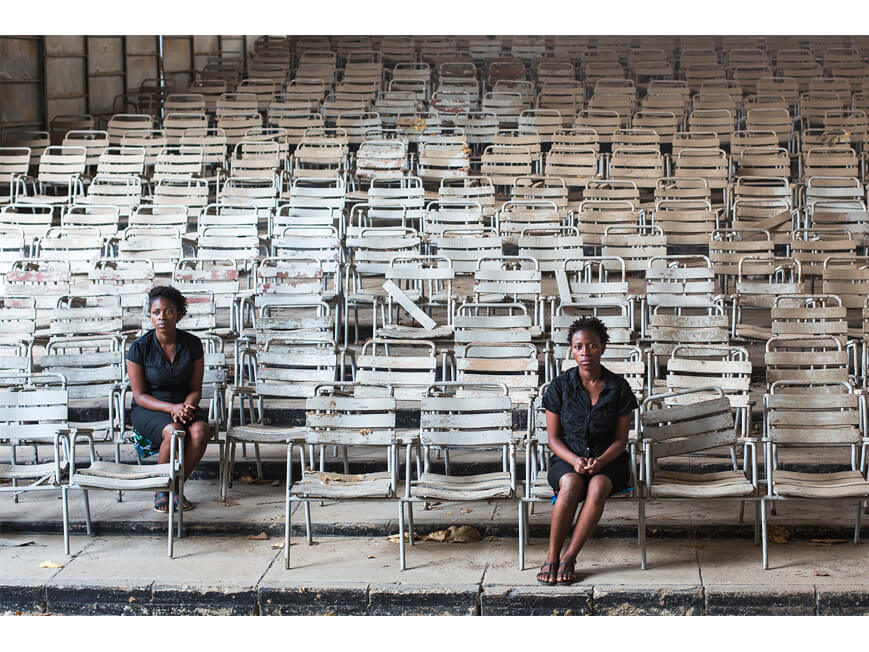
Twins (from Cinema Karl Marx series) | 2017 | Mónica de Miranda (courtesy of the artist)16 feb 2019 | António Pinto Ribeiro
MEMOIRS NEWSLETTER #39 | PT EN
Questions of language, multilingualism and exile
And the Lord came down to see the city and the tower, which the children of men builded. And the Lord said, Behold, the people is one, and they have all one language; and this they begin to do: and now nothing will be restrained from them, which they have imagined to do.
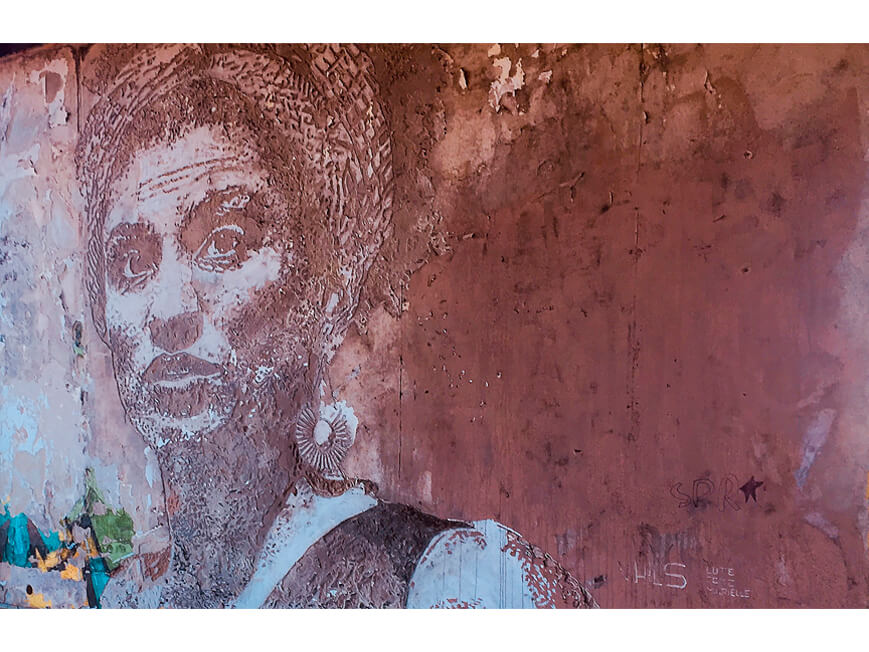
Vhils mural in tribute to Marielle Franco | Brave Walls initiative | Scratching the Surface project | 2018
Photo by Felipe Cammaert | Panorâmico de Monsanto, Lisbon9 feb 2019 | Fernanda Vilar
MEMOIRS NEWSLETTER #38 | PT EN
Intertwinings: peripheral arts, artivism and post-memory
The urban spaces of major European capitals encompass people of diverse geographic origins, who mainly inhabit these cities’ peripheries. These unequal social and geographical relations produce demands that must be urgently met to avoid (re) producing new forms of coloniality.
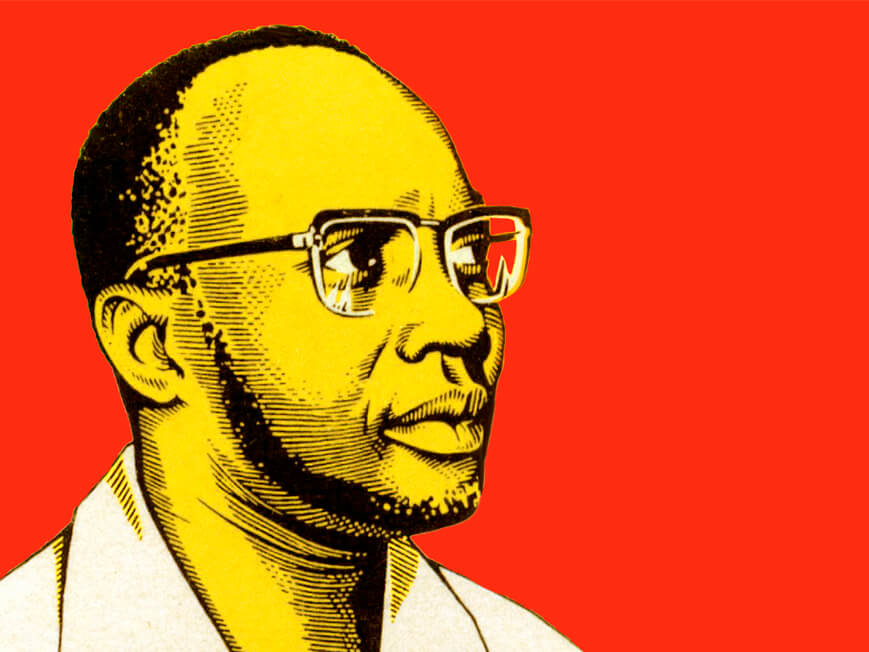
2 feb 2019 | Bruno Sena Martins
MEMOIRS NEWSLETTER #37 | PT EN
From Amílcar Cabral to the Bairro da Jamaica
As the 45th anniversary of the assassination of Amílcar Cabral (January 20, 1973) drew near, I decided to plunge into the lengthy collection Amílcar Cabral’s Letters to Maria Helena - The Other Face of the Man (2016). The book compiles letters that the independence leader sent between 1946 and 1960 to Maria Helena: first his friend, then girlfriend, then wife.
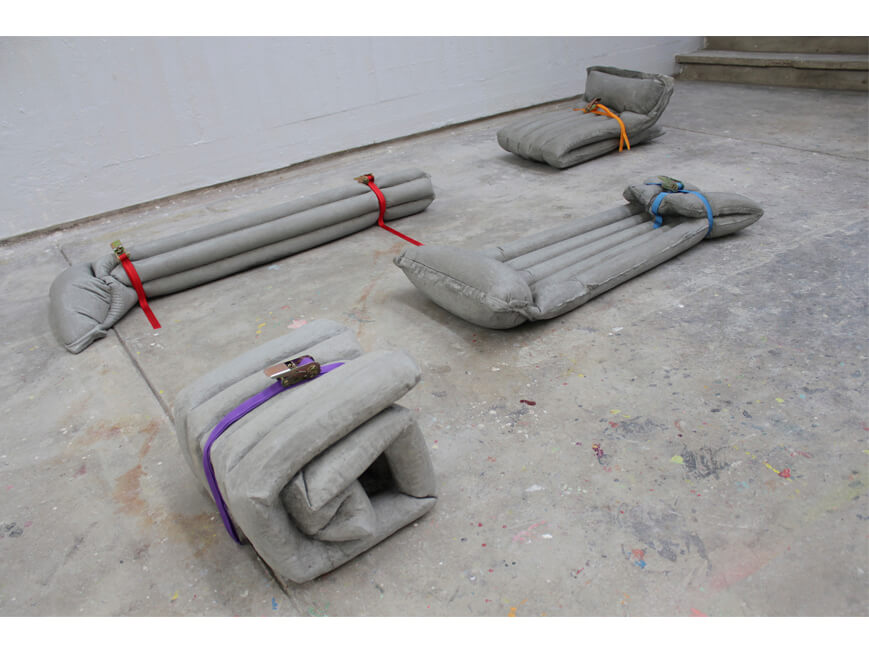
¿Con cuántas piedras se hace una balsa? | 2012 | Rodrigo Oliveira (courtesy of the artist)26 jan 2019 | Miguel Bandeira Jerónimo
MEMOIRS NEWSLETTER #36 | PT EN
One soliloquy, several “ghosts”
“The Kodak has been a sore calamity to us. The most powerful enemy that has confronted us, indeed. In the early years we had no trouble in getting the press to “expose” the tales of the mutilations as slanders, lies, inventions of busy-body American missionaries and exasperated foreigners who had found the “open door” of the Berlin-Congo charter closed against them when they innocently went out there to trade; (...)

Another day of life | 2018 | courtesy of Midas Filmes19 jan 2019 | Hélia Santos
MEMOIRS NEWSLETTER #35 | PT EN
Another day of life: the journalist memorialized, Angola forgotten
In November 2018, the film adaptation of the Polish journalist Ryszard Kapuscinski’s Another Day of Life: Angola 1975, originally published in 1976, arrived at Portuguese cinemas.Kapuscinski was a war correspondent for much of his professional life, (1932-2007) and closely followed the independence processes of several countries in Africa and beyond.
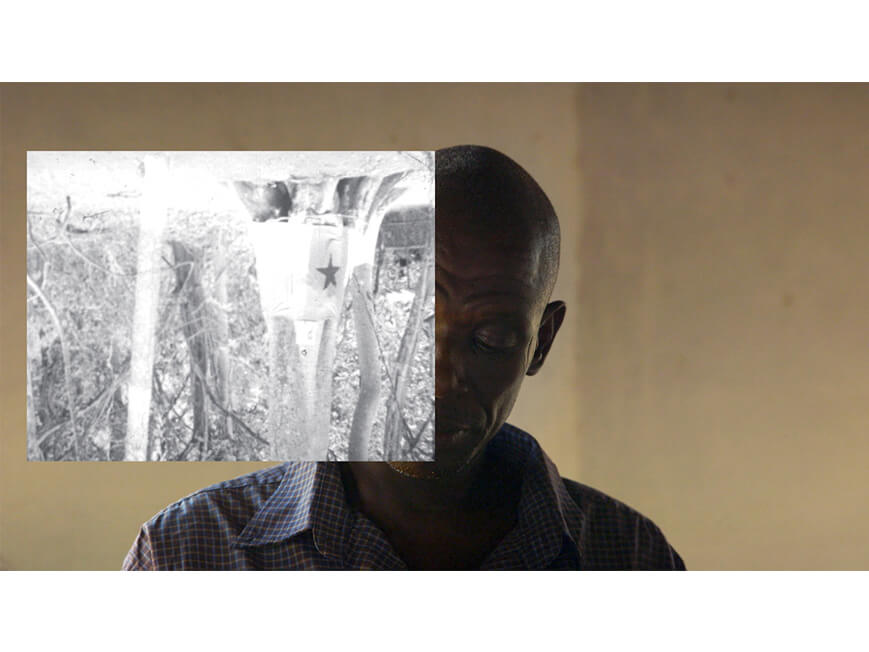
Spell Reel | 2017 | Filipa César12 jan 2019 | Miguel Cardina
MEMOIRS NEWSLETTER #34 | PT EN
Luta Ca Caba Inda: from archive to fragment
At first it was a gesture. At the height of the liberation struggle, the PAIGC (the African Party for the Independence of Guinea and Cape Verde) decided to send a group of young people to Cuba for professional training. Of the 25 young people who arrived in 1967, four of them - Flora Gomes, Sana na N’Hada, Josefina Lopes Crato and José Bolama Cobumba - were going to study cinema, the idea being that they would subsequently film the struggle.
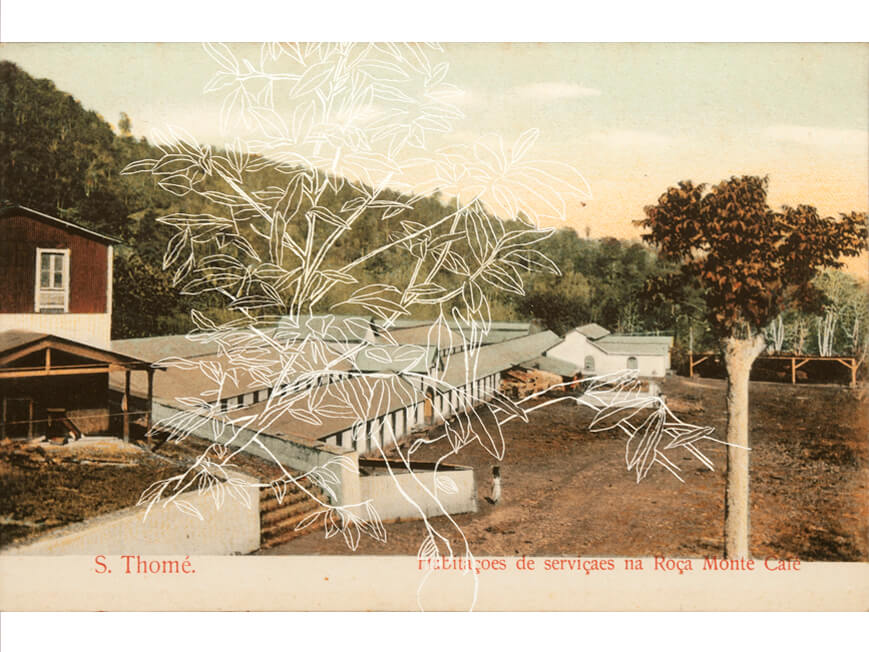
Habitações serviçais | 2015 | Carla Cabana (courtesy of the artist)5 jan 2019 | António Sousa Ribeiro
MEMOIRS NEWSLETTER #33 | PT EN
Humboldt Forum or Benin Forum?
The delivery of the report by Bénédicte Savoy and Felwine Sarr to Emmanuel Macron, followed by the French president’s promise to take the advice of these experts concerning the identification and restitution of pieces with a colonial origin unduly kept in French museums, gave a new impulse to a discussion which is undoubtedly far from being concluded.
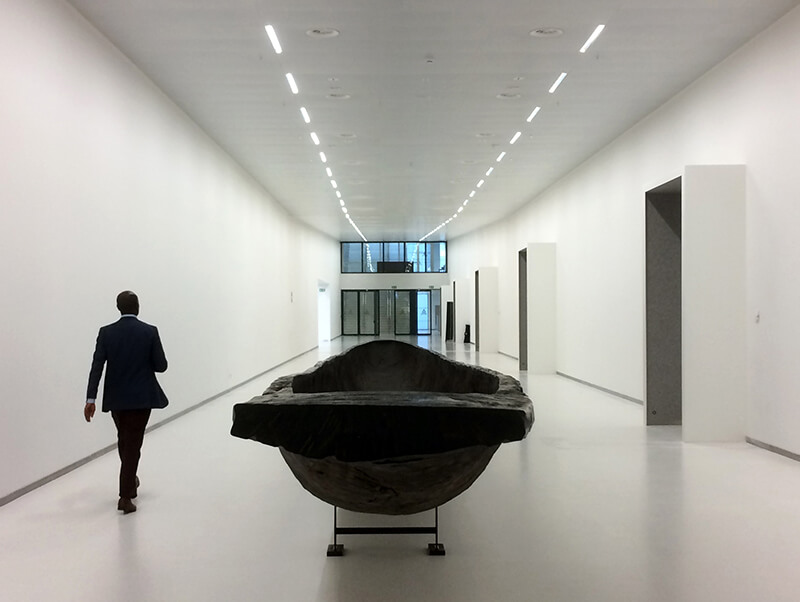
Piroga, Ubundu, RDC (1958), at AfricaMuseum hall | 2018 | photo by MEMOIRS22 dec 2018 | António Pinto Ribeiro e Margarida Calafate Ribeiro
MEMOIRS NEWSLETTER #32 | PT EN
La restitution des œuvres d’art: un pas décisif dans le processus de décolonisation
En Belgique, le Musée Royal d’Afrique Centrale ferma définitivement ses portes le 7 décembre 2018, pour accueillir le nouvel AfricaMuseum. Ce musée fédéral belge a ses origines dans le Musée du Congo, créé en 1898 par le roi Léopold II dans le sillage de l’Exposition Universelle de Bruxelles de 1897.
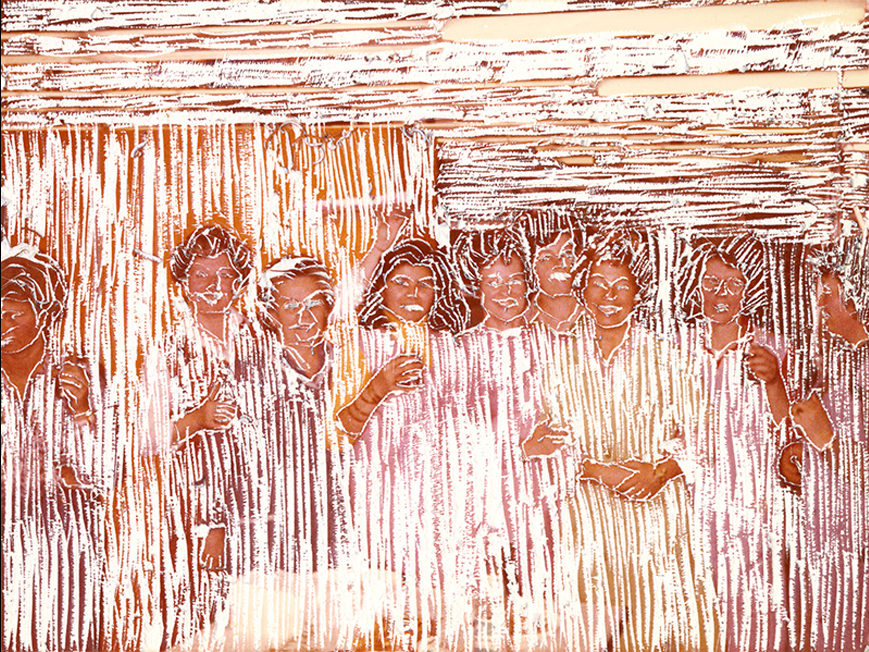
I dont trust myself | 2015 | Carla Cabanas (courtesy of the artist)15 dec 2018 | Roberto Vecchi
MEMOIRS NEWSLETTER #31 | PT EN
The (re)uses of the past
The October 2018 Brazilian elections will interest analysts and researchers for a long time to come. For many reasons, Brazil appears to be a political laboratory in whose experiments we can glimpse traces of our own futures. The determining features of these experiments include: the unexpected weight of social media compared to the traditional media; he abuses of ‘fake news’; the politicization of the judiciary; the concealment of government intentions; and the discontent and insecurity that permeates forms of citizenship of all kinds. (...)

2 twist tomorrow is another day | 2017 | Mónica de Miranda (courtesy of the artist)8 dez 2018 | Vasco Luís Curado, Mónica V. Silva
MEMOIRS NEWSLETTER #30 | PT EN
The Hottentot Venus, her audiences and science
In 2002, the remains of Sarah Baartman returned to South Africa, in order that she receive a a funeral in her homeland. For more than 150 years, these remains – a skeleton and some organs preserved in formaldehyde – had been treated as zoological museum pieces, not as the remains of a person with rights defended by universal laws.
Yes, Black and European
In 2018, for the first time, the European Parliament devoted a week to increasing awareness of the approximately 15 million Europeans of African descent living in Europe. The first EU week dedicated to People of African Descent Week (...)
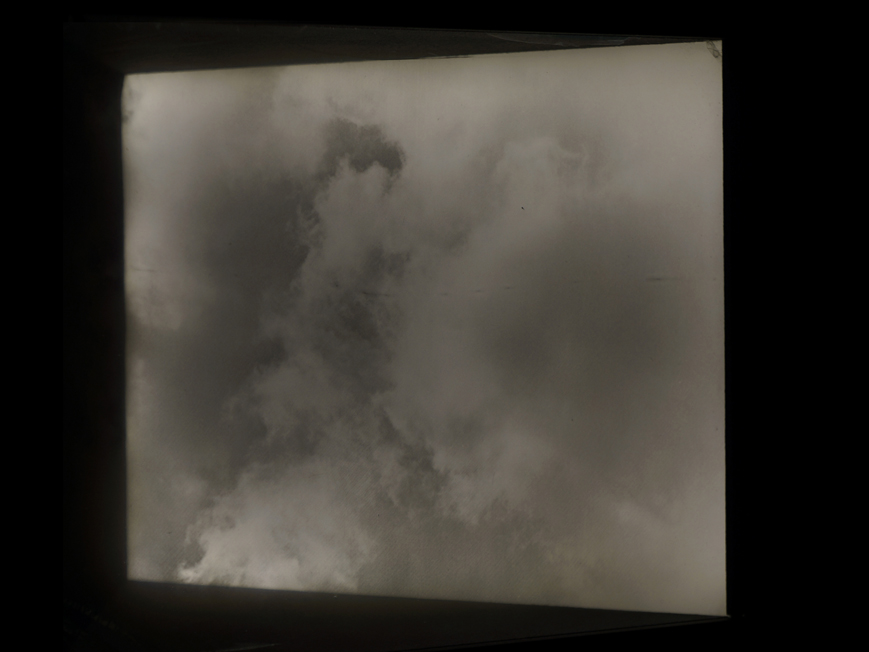
Cloud game | 2015 | Carla Cabanas (courtesy of the artist)1 dec 2018 | Paulo de Medeiros
MEMOIRS NEWSLETTER #29 | PT EN
So still a rage
The first chapter of Now, a recent book signed by the collective that goes under the name of The Invisible Committee, bears a title as significant as it is ominous: “Tomorrow is cancelled”. It starts with a stark series of observations about our current moment: All the reasons for making a revolution are there. Not one is lacking. The shipwreck of politics, the arrogance of the powerful, the reign of falsehood, the vulgarity of the wealthy, the cataclysms of industry, galloping misery, naked exploitation, ecological apocalypse—we are spared nothing, not even being informed about it all.
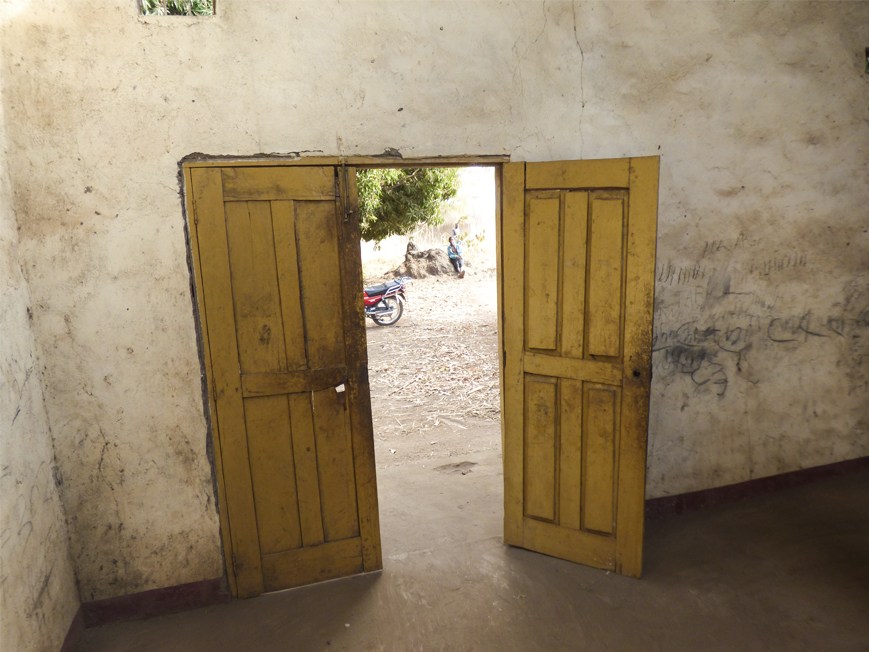
Muaua | 2017 | Paulo Faria (courtesy of the artist)24 nov 2018 | Paulo Faria
MEMOIRS NEWSLETTER #28 | PT EN
Stone, cotton or oil
— Look, look at this! This is what we were talking about.
Fingers eager to force open the sack, tilt it towards me, to snatch handfuls of the reddish cotton, covered in dirt. The bag vomits up a stone, then another. An adobe brick. Laughter. The middleman tells them to look for the other bags with the same name on the outside. They have already been weighed and put into the truck.—There are three bags. This one and two more. We need the other two.

Casa (from Open House series) | 2006 | José Bechara17 nov 2018 | Fátima da Cruz Rodrigues
MEMOIRS NEWSLETTER #27 | PT EN
When not even the dead see the end of a war
In Soliloquios en Inglaterra (Soliloquies in England) and Soliloquios Posteriores (Later Soliloquies), written between 1914 and 1921, the Spanish philosopher George Santayana said that “only the dead saw the end of the war”. In truth, not everything that wars have destroyed, created, ravaged, and desecrated comes to an end when they are over. Among the many remains, wreckage and legacies that wars leave, and which inevitably contaminate several subsequent generations, sometimes even the dead see no end.
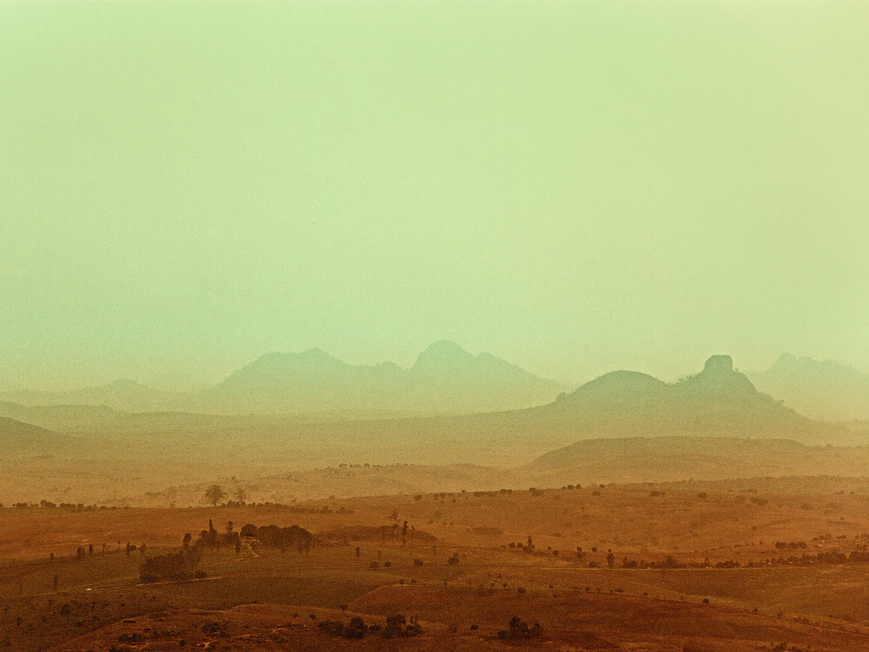
Horizontes (from Guiné series) | 2015 | Filipe Branquinho10 nov 2018 | Roberto Vecchi
MEMOIRS NEWSLETTER #26 | PT EN
Mythology and memory
Neuroscience has not yet fully explained how memory functions. Nevertheless, a cultural perspective gives us some leads. An enormous archive of artistic works stage the desire to salvage the past. In the terms set up by Walter Benjamin’s discussion of Proust, these works can, often figuratively, show us the warp of Penelope’s web of memory.
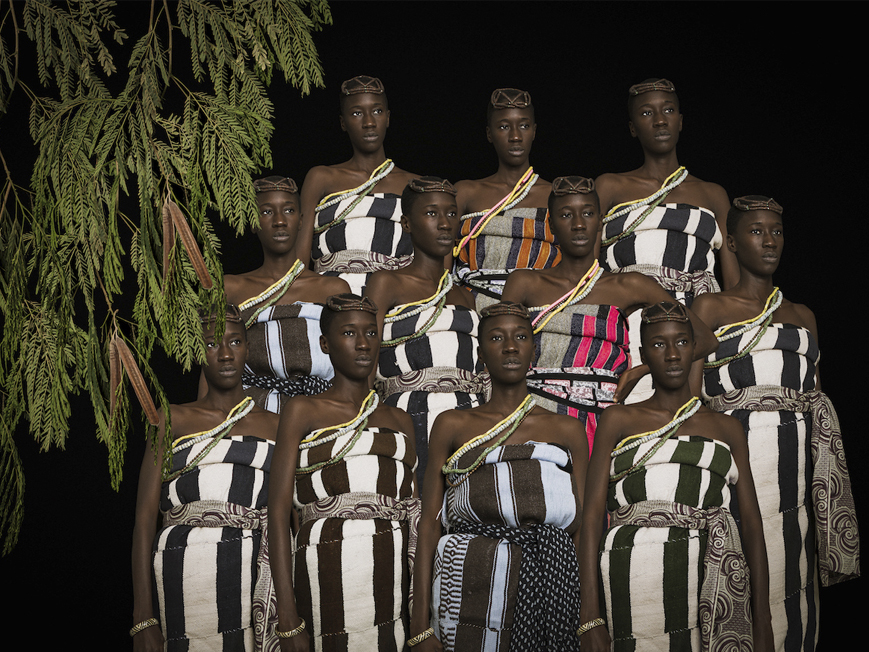
The Women’s War, 1929 | 2017 | Omar Victor Diop | (courtesy of the artist and Autograph ABP)3 nov 2018 | Bruno Sena Martins
MEMOIRS NEWSLETTER #25 | PT EN
Liberty / Diaspora. A universal chronology of the history of decolonization
Perhaps out of secret hope that benevolent forces decide our daily fortunes, we often read coincidences into connections that turn out to have prosaic explanations. I felt touched by one of those tricksy coincidences when, out and about in London, I walked into the Autograph gallery on Rivington Place, and came upon LIBERTY / DIASPORA, an exhibition of the work of Omar Victor Diop.
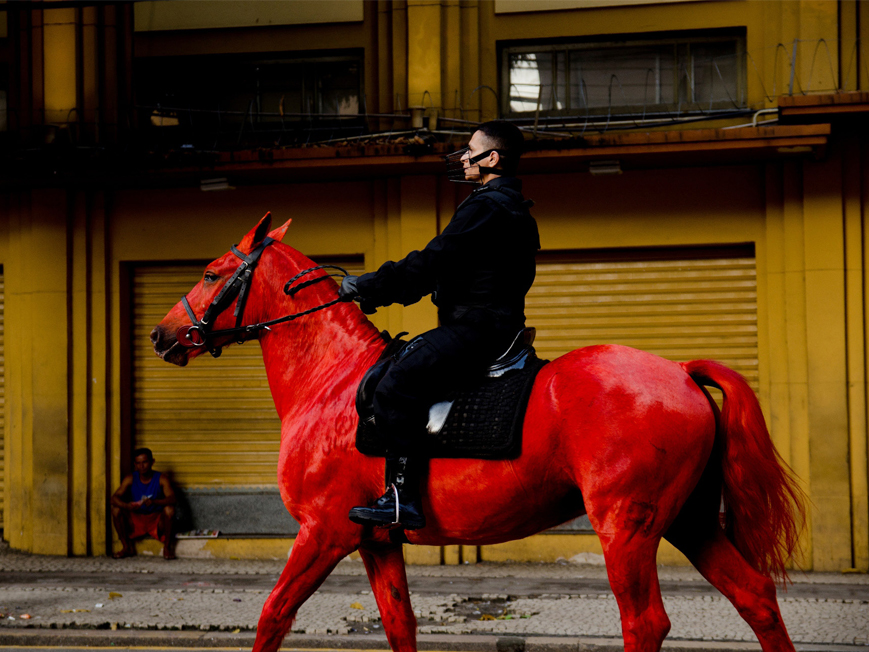
Palomo | 2014 | Berna Reale (courtesy of the artist)27 oct 2018 | Fernanda Vilar
MEMOIRS NEWSLETTER #24 | PT EN
The gulf between truth and memory
The dark times Brazil is going through make manifest our concerns about the fading of the news into fake news. The electoral strategy of turning lies into truths is not exclusive to modern social media. We need to know how to put the truth back into the truth. We need to know how to conjugate truth with memory in the making of history - especially in light of the recent (in)voluntary incineration of files in important Brazilian museums.
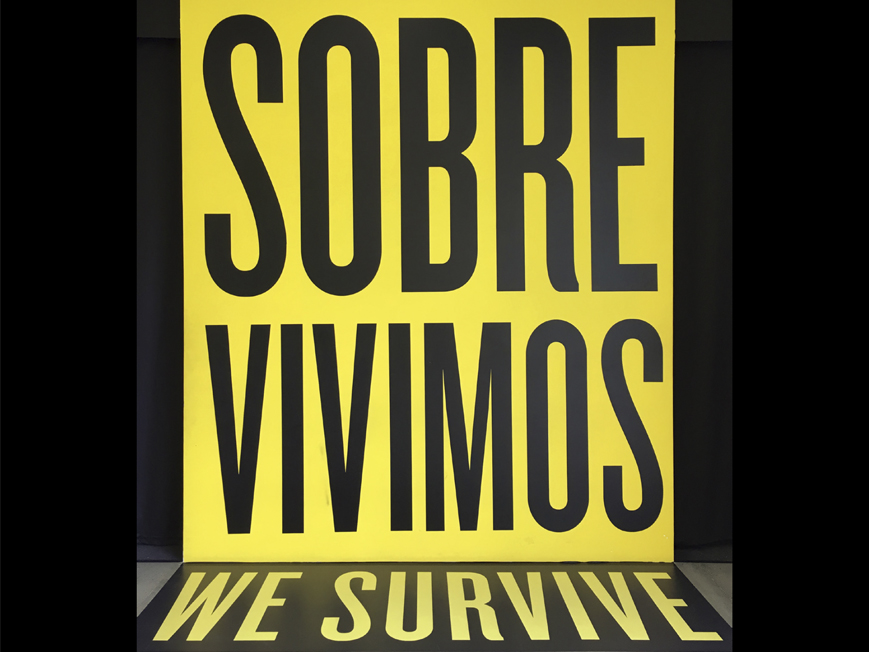
Museo Casa de la Memoria (Medellín) | 2018 | photo Felipe Cammaert20 oct 2018 | Felipe Cammaert
MEMOIRS NEWSLETTER #23 | PT EN
We survive(d)?
Medellín / es 70, 80, 90, (Medellín(s) 70, 80, 90) a temporary exhibition at the Casa Museo de la Memoria, presents a chronology of the three most atrocious decades in the twentieth century history of Colombia’s second largest city, one of the most violent in the world.
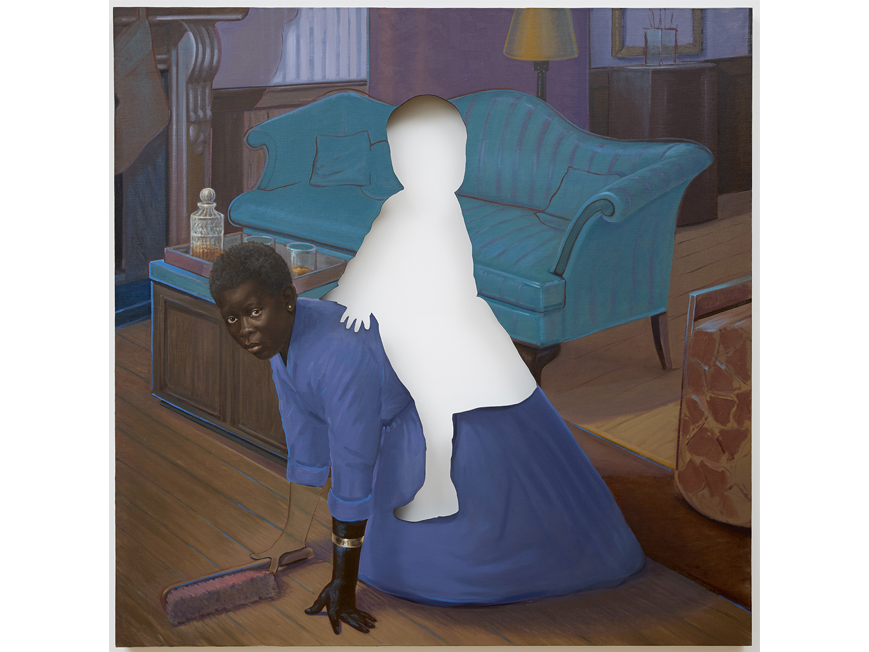
Space to Forget (oil on canvas) | 2014 | Titus Kaphar © Titus Kaphar. Courtesy of the artist and Jack Shainman Gallery, New York13 oct 2018 | Paulo de Medeiros
MEMOIRS NEWSLETTER #22 | PT EN
Memory’s weave
Even as academic research into questions of memory has made significant advances in the past twenty years, one could be forgiven for thinking we had entered a phase of deep cultural amnesia. All over the world we witness the resurgence of forces bent on reversing all and any emancipatory achievements of the last couple of centuries, be it in the realm of politics, gender relations, racial questions, or even plain and simple science.
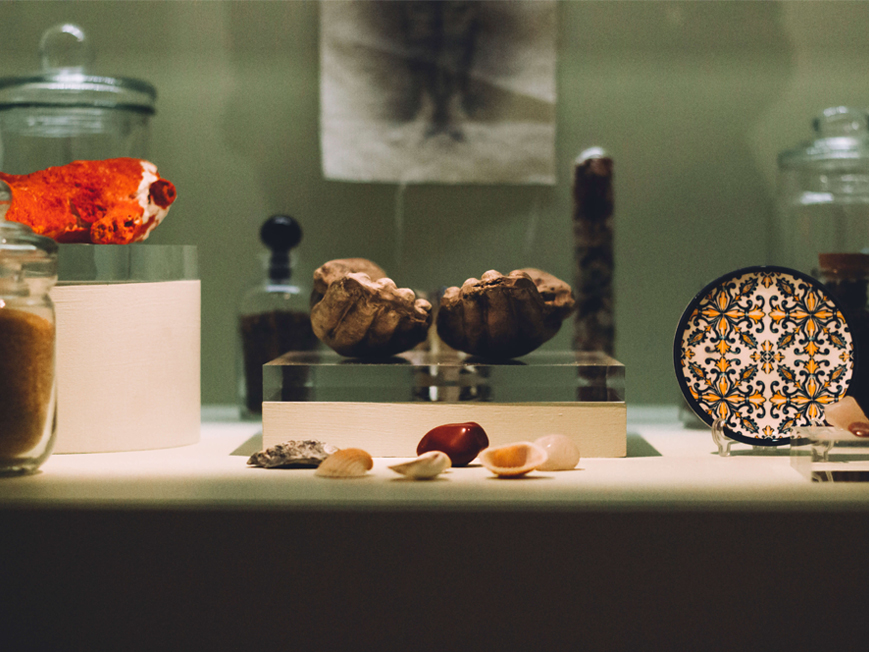
Cabinet de Curiosités | 2017 | Rosana Paulino6 out 2018 | Miguel Bandeira Jerónimo
MEMOIRS NEWSLETTER #21 | PT EN
On reparations
The history of claims for reparations after slavery and the slave trade is long and complex. Indeed, it is longer and more complex than is commonly acknowledged. Demands for reparations are not a recent phenomenon; they do not result from contemporary debates about individual and collective identities.
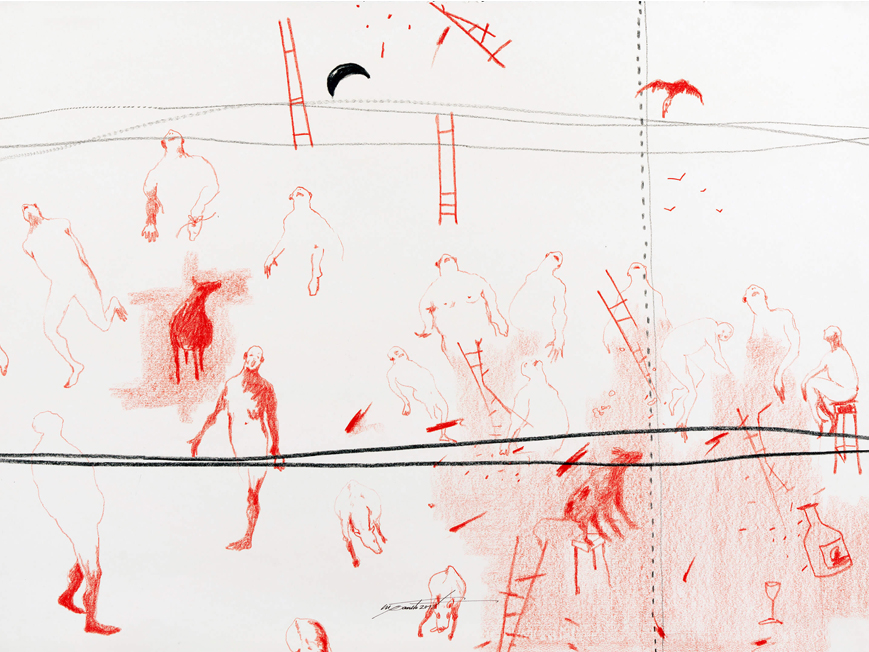
black moon | 2018 | Nú Barreto29 sep 2018 | Hélia Santos
MEMOIRS NEWSLETTER #20 | PT EN
Forgetting in Portuguese
We can understand a society both by what it treasures in its collective memory, and by what it forgets. It is a fact: societies forget. Forgetting is a necessary process for creating collective identities, political solidarities and projects of social governance. It plays a role, too, in survival and rebeginning after civil wars or other crises in which societies break down.
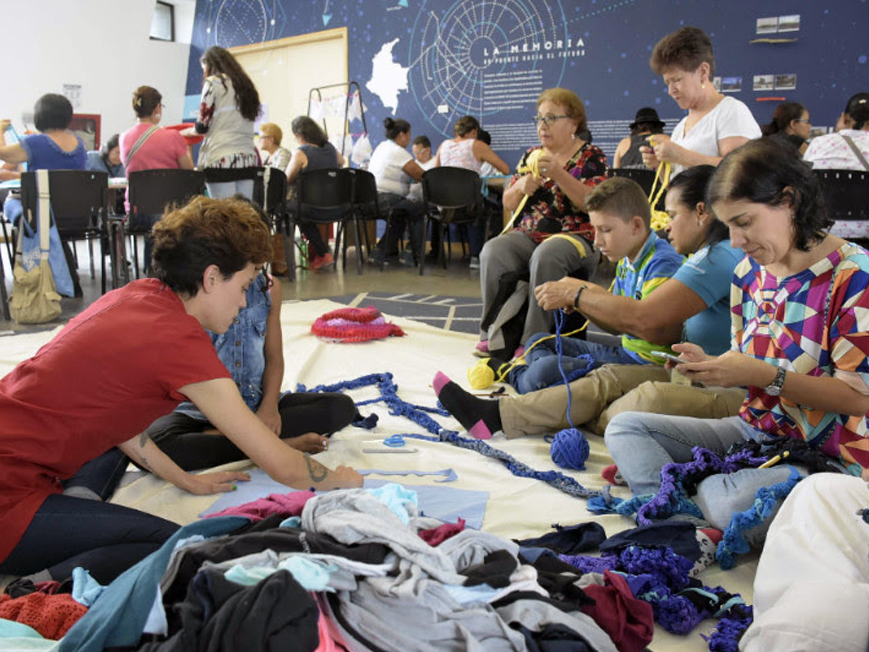
Museo Casa de la Memoria (Medellín) | cortesia do Museu22 set 2018 | Miguel Cardina
MEMOIRS NEWSLETTER #19 | PT EN
The House of Memory Museum (Medellín) and memory as past-present
In his book The Museum of Innocence, Orhan Pamuk imagined a museum as if it were a house. An intimate space where history could be glimpsed through a patchwork of fragments of daily life. An idea, perhaps, more appropriate for biography, in all its diversity and richness, than for producing and reproducing the epic discourse of the nation. Can a museum be a home?
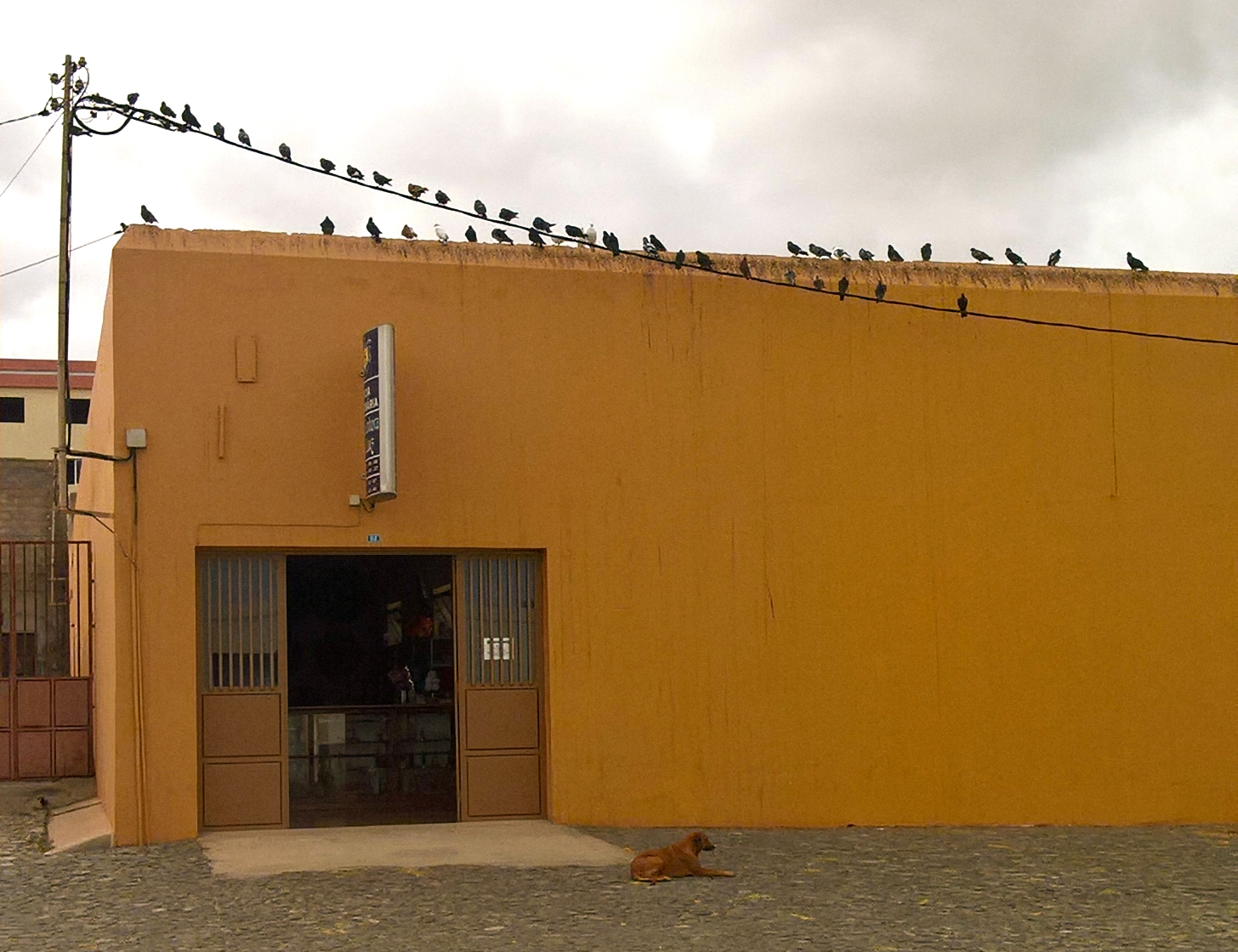
Birds | 2017 | Joaquim Arena15 sep 2018 | Margarida Calafate Ribeiro
MEMOIRS NEWSLETTER #18 | PT EN
Europe, periphery of the creole islands
1
Working from their shared standpoint of the colonial condition and legacy of slavery on Martinique, in the French Antilles, the philosophers Aimé Césaire, Frantz Fanon and Édouard Glissant all thought deeply about how social reality constitutes us all.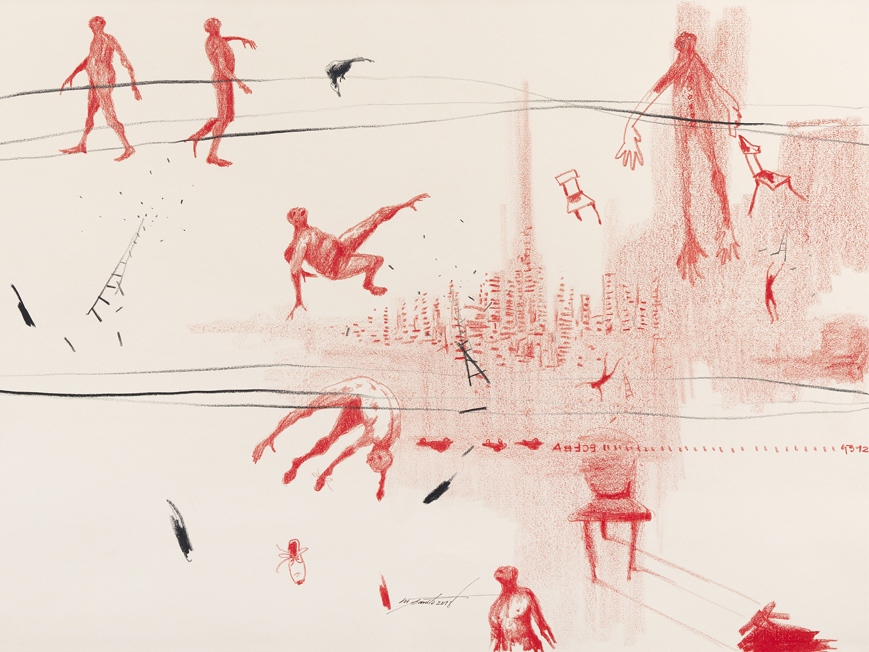
in city | 2017 | Nú Barreto8 sep 2018 | António Pinto Ribeiro, Ana Tironi
MEMOIRS NEWSLETTER #17 | PT EN
Although hidden, conflicts exist over all three days
This weekend is the 41st Festa do Avante. The festival is organised by the official newspaper of the Portuguese Communist Party (PCP) and declares itself “the greatest cultural event in the country.”
What can a book do
Some time ago, a book fell into my hands that had been written by a couple of French psychoanalysts, who for thirty years has been studying, from real cases, the connection between personal or collective trauma and madness.
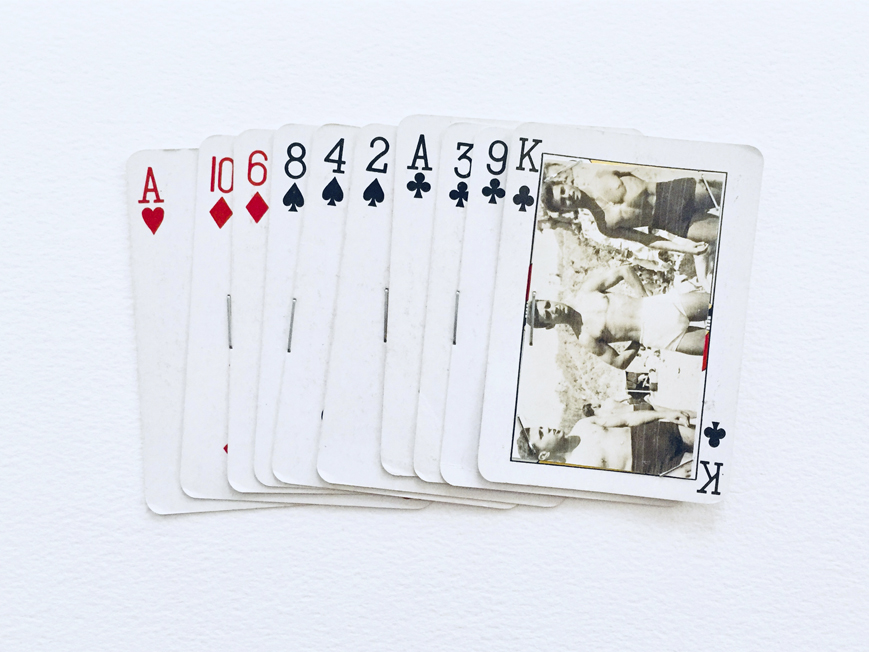
untitled | 2018 | Ana Vidigal1 sep 2018 | Roberto Vecchi
MEMOIRS NEWSLETTER #16 | PT EN
Family memories and public memories: battlefields
Literature - and Portuguese literature is no exception – opens deep cracks in the unfathomable worlds of memory and familial relationships. Made up of resistances, and with all its slipperiness, familial memory is one of the most complex archives. It is an antidote to the total loss of the past. Effective or symbolic images of lived experiences – pleasant or painful – lurk in this intimate and private space. The evocation of family memory always evokes those discursive and lived, affective and familiar relationships between generations.
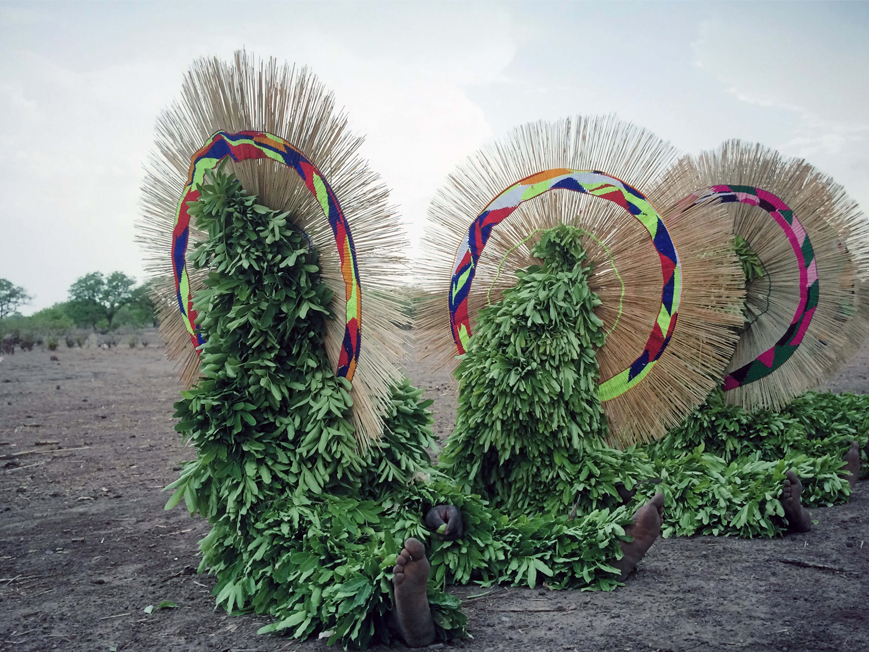
s/t (from series C’est pas facile) | 2016 | Mauro Pinto25 aug 2018 | Vasco Luís Curado
MEMOIRS NEWSLETTER #15 | PT EN
Two memories of the Colonial War
Artillery
The man told me about his war. He was mobilized halfway through an leisurely course in Maths and became an officer in the artillery. He calculated targets for the mortar fire. They sent him to a barracks in the forests of Northern Angola. He was the most slovenly officer of the garrison: badly dressed, with his hat awry. It was said of him that he lived in another world - perhaps the abstract world of mathematics, which took up all his attention and distracted him from immediate, worldly things. In the barracks there were giant artillery pieces which fired hundreds of kilometres.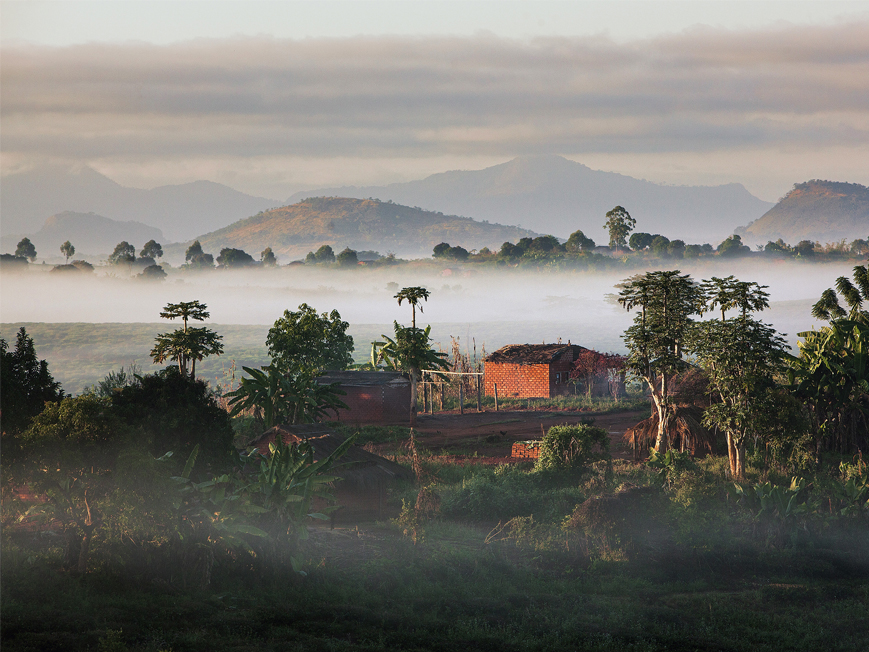
Red House (from series Gurué)| 2014 | Filipe Branquinho4 aug 2018 | Sílvia Roque
MEMOIRS NEWSLETTER #14 | PT EN
Amílcar Cabral: journeys, memories, descolonization
After Letters from Amílcar Cabral to Maria Helena / The other side of the man (Amílcar Cabral a Maria Helena / A Outra Face do Homem) the Cape-Verdean press Rosa de Porcelana is publishing another book based on the PAIGC leader’s correspondence, Itineraries of Amílcar Cabral (Itinerários de Amílcar Cabral, 2018). The book is a collection of letters sent by Cabral to his partner, Ana Maria, and to his children, Raul and Ndira. It has been put together by Ana Maria Cabral herself, along with Filinto Elísio and Márcia Souto, and annotated by the historian Aurora Almada e Santos.
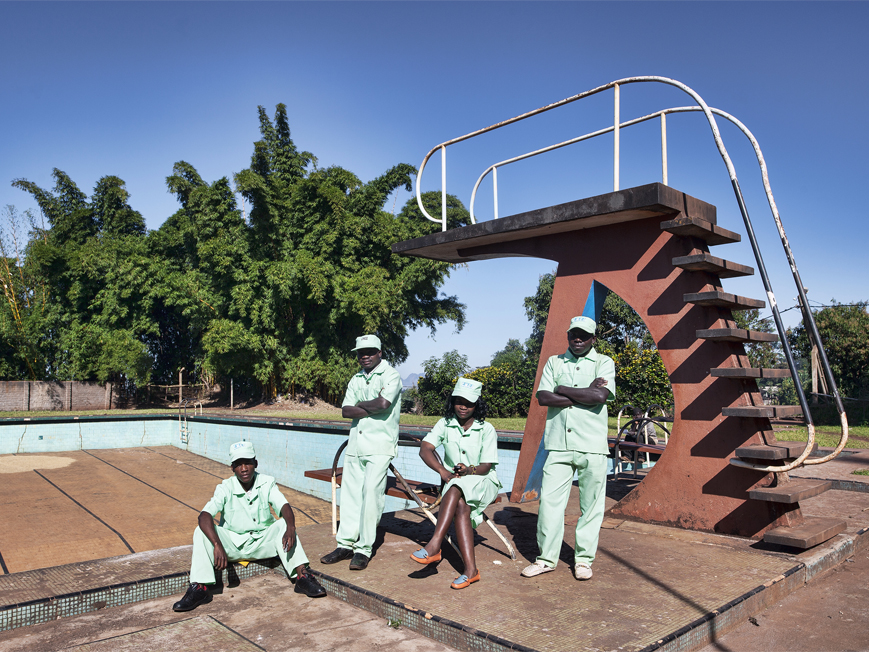
Intervalo (from series Gurué) | 2014 | Filipe Branquinho28 jul 2018 | Vasco Luís Curado
MEMOIRS NEWSLETTER #13 | PT EN
Declaration of war 2
When I was called up in 1969, my expertise was in Special Operations. I trained a combat group in Santa Margarida,. Me and my group of 25 men went to Guinea. I did a lot of guerrilla warfare and trips to the bush. We were Rangers, and well prepared. We securitised the new settlements where Guinean communities were living in adobe houses to be further away from the terrorists and closer to us. Politicians called it reordering.
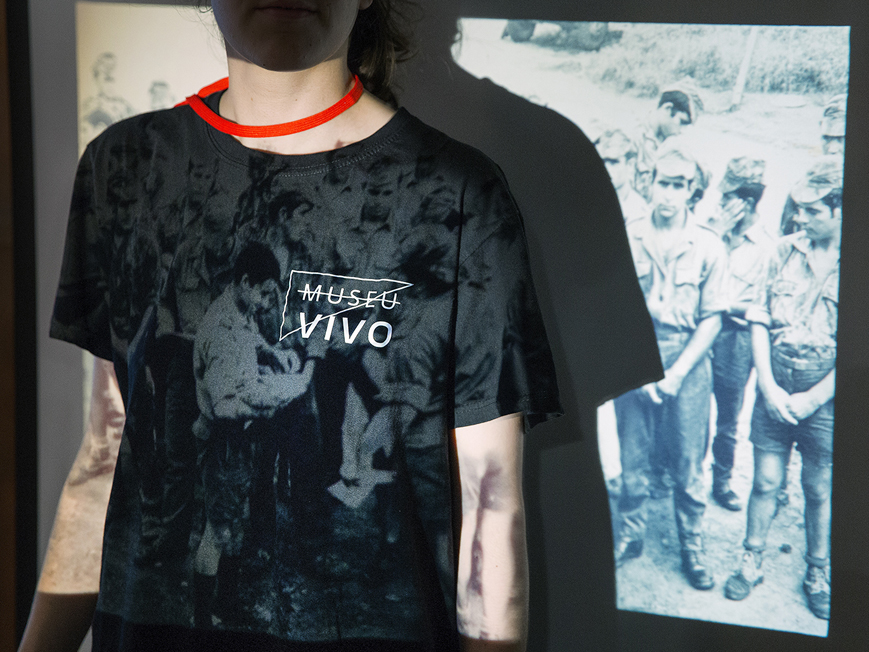
Arquivo Vivo, Teatro do Vestido | 2018 | photo by Nuno Simão Gonçalves21 jul 2018 | António Pinto Ribeiro
MEMOIRS NEWSLETTER #12 | PT EN
Theatre in the state of exception
Retornados, Exiles and Some That Stayed Behind and Children of Return are recent plays by Teatro do Vestido, directed by Joana Craveiro. These works present an opportunity to reflect on a body of contemporary theatre in Portugal that is taking on memories of the dictatorship, the colonial war and the legacies of the Portuguese ex-empire. They also offer an important point of comparison with some Latin American theatre. Like Portugal, many Latin American countries lived through military dictatorships between the 1960s and 1980s. Those countries also experienced repressive ideological and economic colonization from the Cold War-era USA.
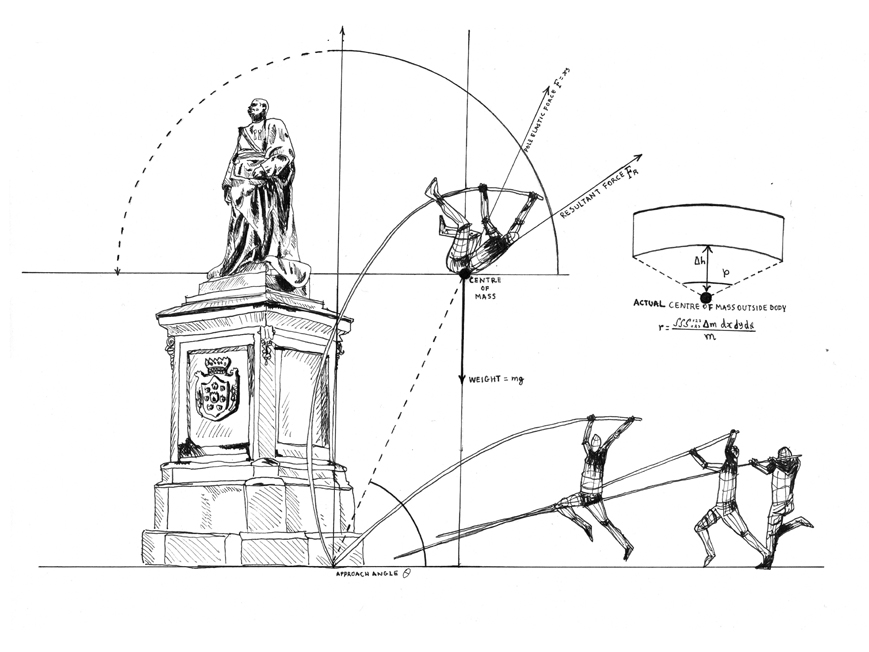
from the serie Sporting Narratives | 2018 | Márcio Carvalho14 jul 2018 | António Sousa Ribeiro
MEMOIRS NEWSLETTER #11 | PT EN
“Discoveries” - Colonialities of memory
If the “Museum of the Discoveries” suggested by the mayor of Lisbon, Fernando Medina, should ever come to exist – hopefully under a more adequate name – one of its showrooms, preferably the very first one, should be dedicated to a documentation of the controversy that has filled the pages of newspapers since the announcement of the project, after a large group of intellectuals and researchers took a public stand, contesting the orientation implicit in the name under proposal. The pedagogic import of such a documentation is unmistakeable.
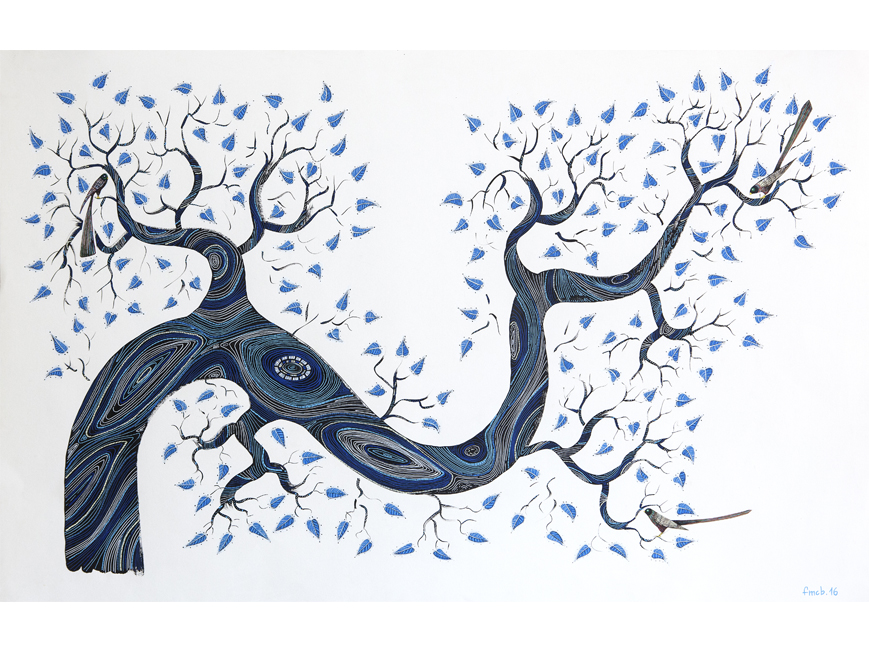
Blue Tree (from the serie botânica) | 2016 | Filipe Branquinho07 jul 2018 | Fatima da Cruz Rodrigues
MEMOIRS NEWSLETTER #10 | PT EN
The National Meeting of Veterans: ‘perhaps during this ceremony we should only hear the bugles play’
On the day of the inauguration ceremony of the Monument to the Overseas Veterans on the 15 January 1994, Adriano Moreira opened his speech: “Mr. President of the Republic, combatants. Perhaps during this civic ceremony intended to honour the veterans of the Portuguese overseas war it would be appropriate to listen only to bugle players, who bring together sounds of agony and glory.”
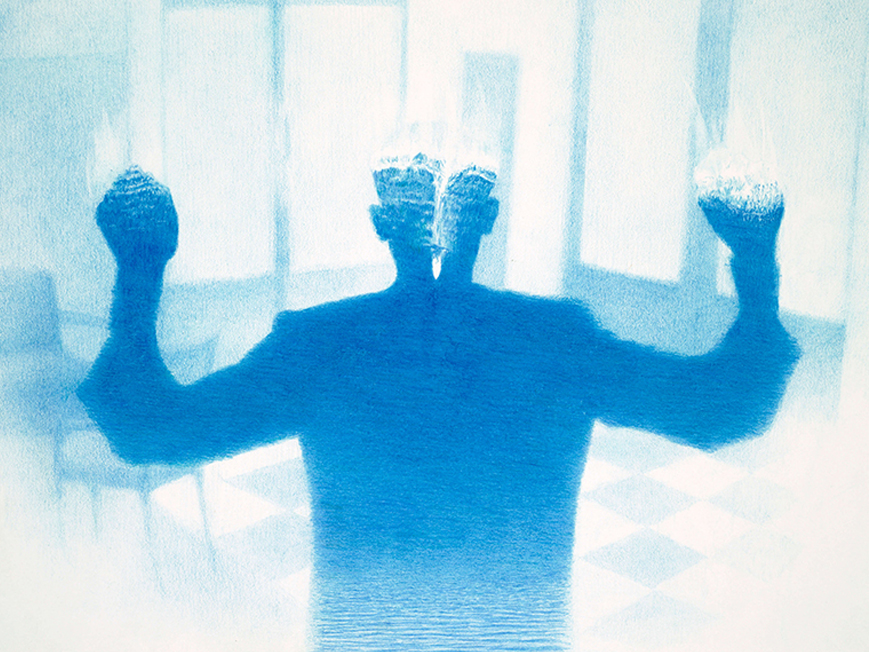
The Big Wave Rider | 2017 | Pedro A. H. Paixão30 jun 2018 | Felipe Cammaert
Brussels’ Lumumba Square: A site of controversial memory
On 30 June 2018, after several years of debate, the municipality of Brussels will open a square named after and in honour of Patrice Lumumba, the key figure in the history of Congolese independence and, in 1960, the short-lived Prime Minister of the Republic of Congo. Significantly, the inauguration has been scheduled for the anniversary of Congolese independence: Belgian colonial rule, in place since the 1884 Berlin Conference, came to an end on 30 June 1960.
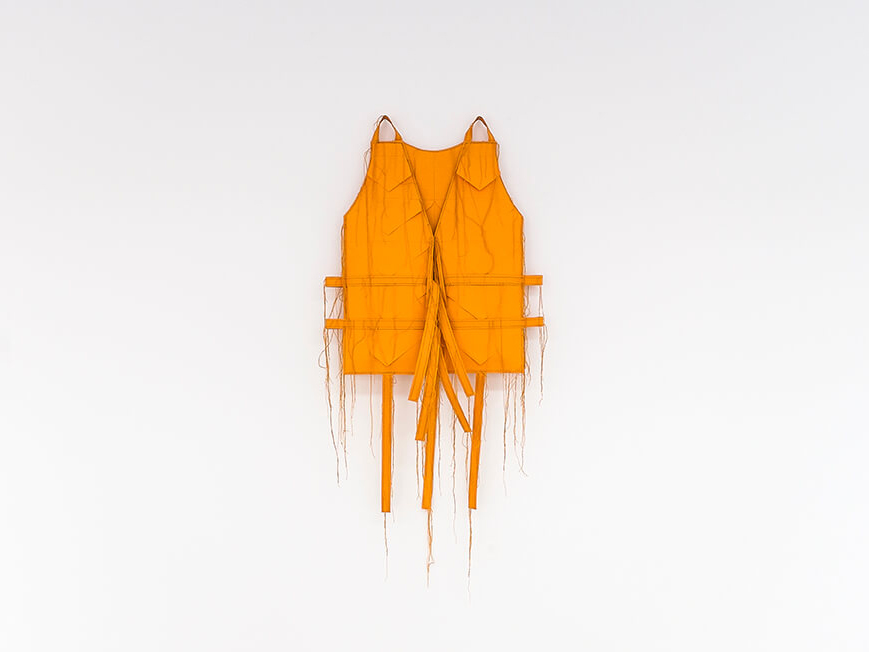
everything will be alright | 2015 | Pedro Valdez Cardoso23 jun 2018 | Vasco Luís Curado, Fernanda Vilar
Declaration of war 1
In 1960, I turned twenty, and got called up. I went on a course for paramilitary sergeants and graduated as a quartermaster on the day we set off for Angola, on 5 May 1961. The company HQ was in Muxaluando.
How things stand: France 2018, the debate about colonial history
It is halfway through 2018. Emmanuel Macron is the President of France. A year ago he declared colonisation a “crime against humanity.” Macron levied his criticism of colonisation during a visit to Algeria, a territory the French dominated for 114 years, from 1848 to 1962.
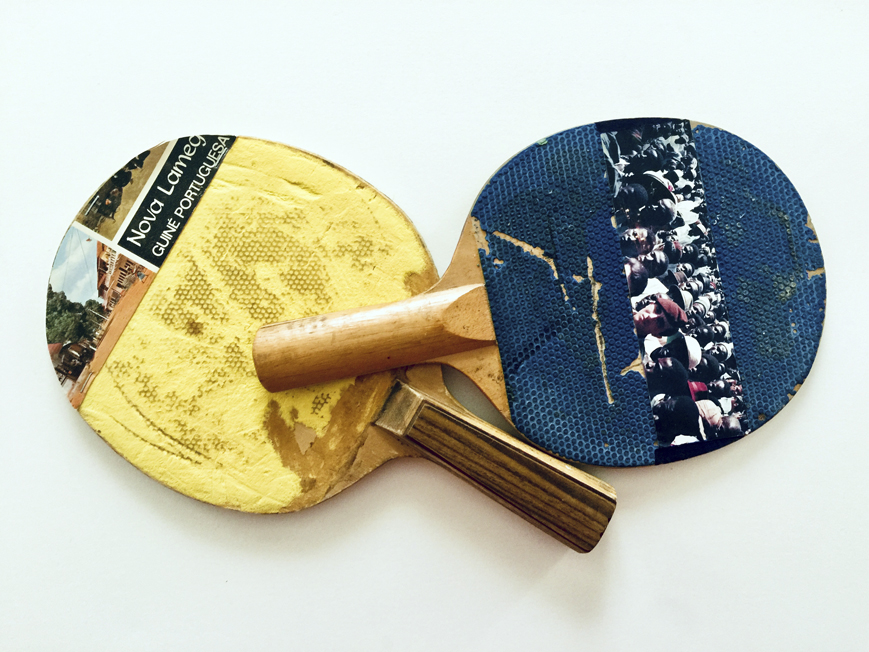
untitled | 2018 | Ana Vidigal16 jun 2018 | Hélia Santos
Memories of Portuguese colonialism staged by Hotel Europa
“There is a way of remembering things. There is way of remembering things collectively...”. So begins a trilogy about the end of Portuguese empire in Africa, produced between 2015 and 2017 by the Hotel Europa theatre company. In Portugal não é um País Pequeno (‘Portugal is not a small country,’ 2015), Passa-Porte (‘Passport,’ 2017) and Libertação (‘Liberation,’ 2017), André Amálio puts written and audiovisual archive material into a sometimes conflictual dialogue with testimonies he has collected from people who lived through that period.
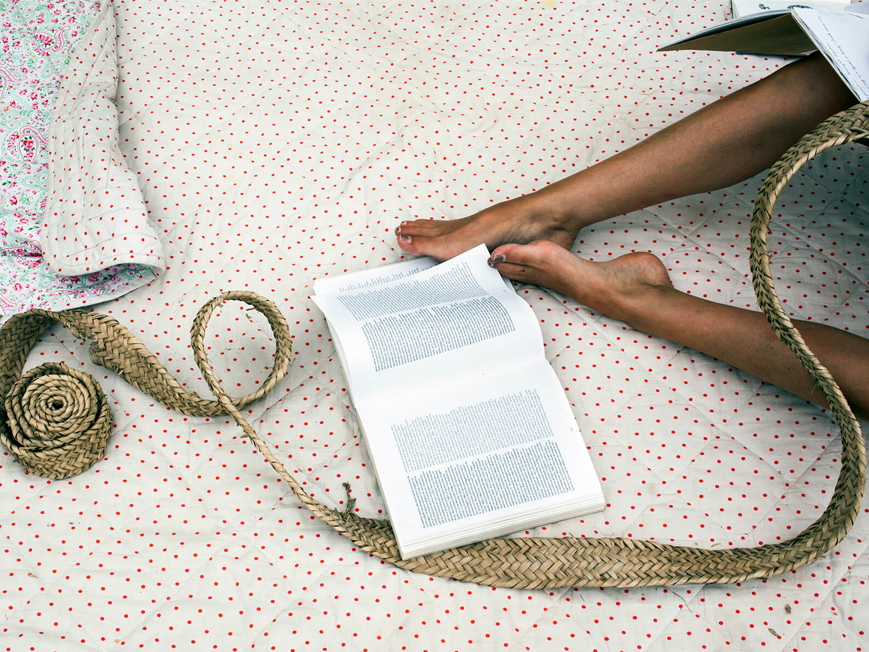
the behaviour of being | 2017 | Pauliana Pimentel9 jun 2018 | Miguel Cardina
Lives beyond the pale
Wars exceed their historical limits. Their shrapnel wounds continue to bleed over time, producing public and private mechanisms of resignification and silencing. The disruption of war lives on and touches people who themselves have no direct experience of it, through their personal, affective and/or familial proximity to people who do. If this (post-) memory is always in essence a reconstruction of the past based as much, if not more, in dialogue as in erasure, it points to a private realm where these memories circulate (or not).
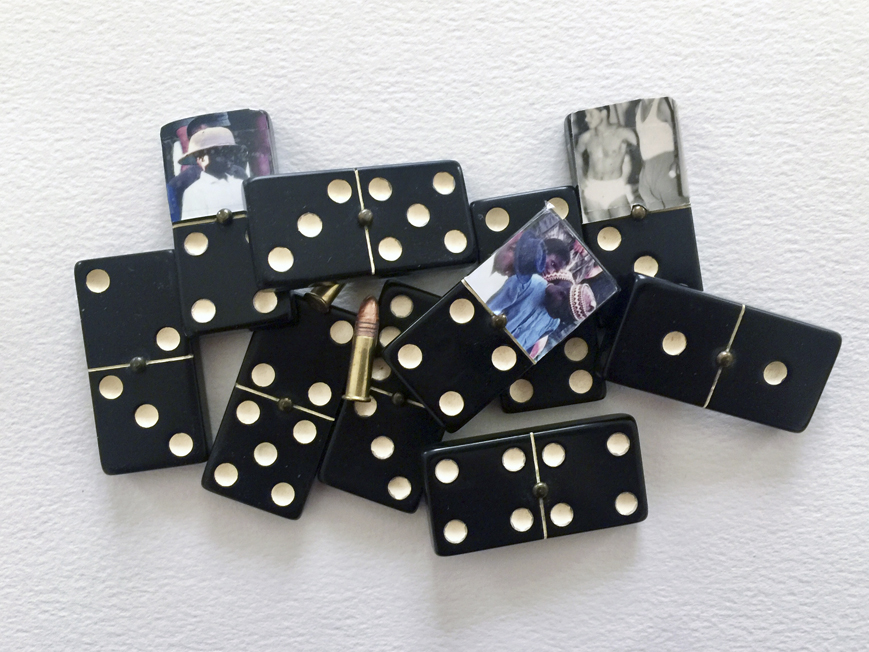
untitled | 2018 | Ana Vidigal2 jun 2018 | Miguel Bandeira Jerónimo
Which “legacies” are we talking about?
During an intense debate in France about history and memory, partly triggered by the 23 February 2005 legislation requiring teachers to convey to their students the “positive values” of French colonialism, Jean-François Bayart and Bertrand Romain asked in L’Esprit “de quel ‘legs colonial’ parle-t-on?” What ‘colonial legacy’ are we talking about?
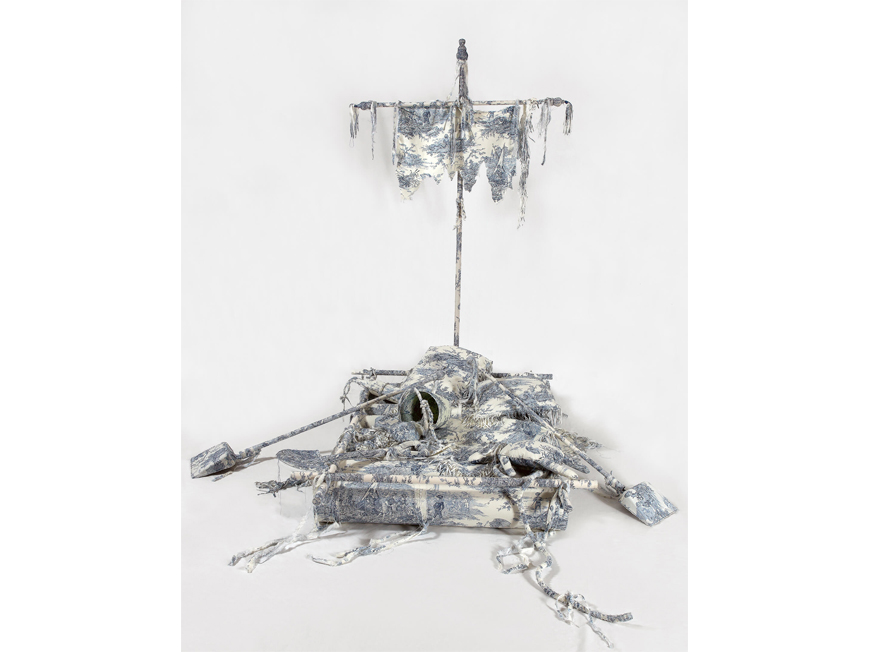
Empires | 2015 | Pedro Valdez Cardoso26 may 2018 | Bruno Sena Martins, Paulo de Medeiros
The Portuguese Colonial War and its immortal wounds
In his story ‘The Witness,’ Jorge Luis Borges suggests that, from a certain perspective, the battle of Junín ended and disappeared forever after the death of the last man who fought in it.
War memories and memory wars
Approximately midway through the recent graphic narrative authored by Swann Merali and Deloupy, with the title Algériennes 1954-1962 (Marabout, 2018), the reader comes across a startling statement: ‘this has become a war of memories’.
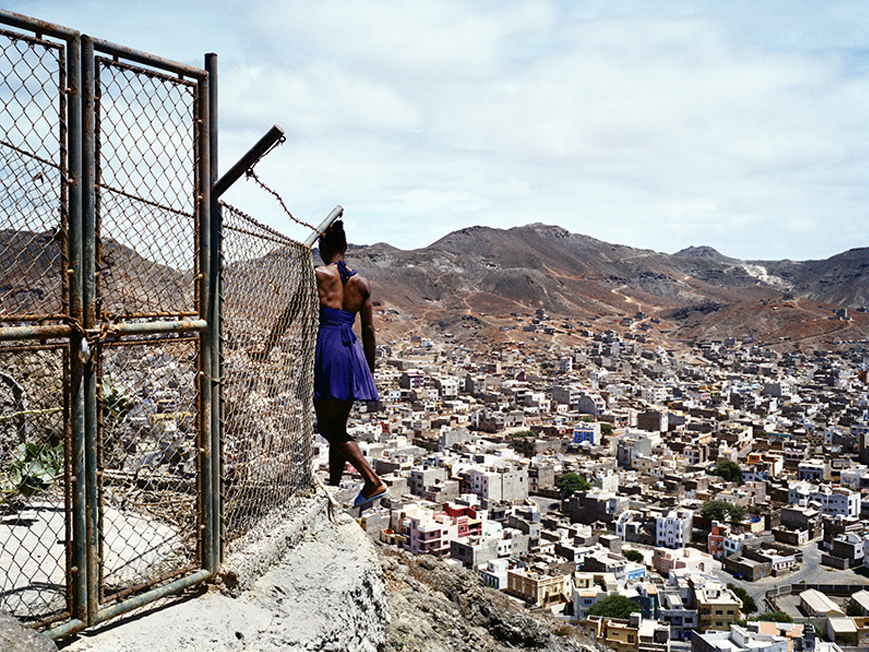
from the serieQuel pedra| 2017 | Pauliana Pimentel19 may 2018 | António Pinto Ribeiro
The impossible museum
Museums are not archives. Still less are they collections of collections. More than anything, they are instruments of power used to represent worldviews informed by particular epistemologies. ‘National’ museums are designed to produce and diffuse a particular memory of national identity.
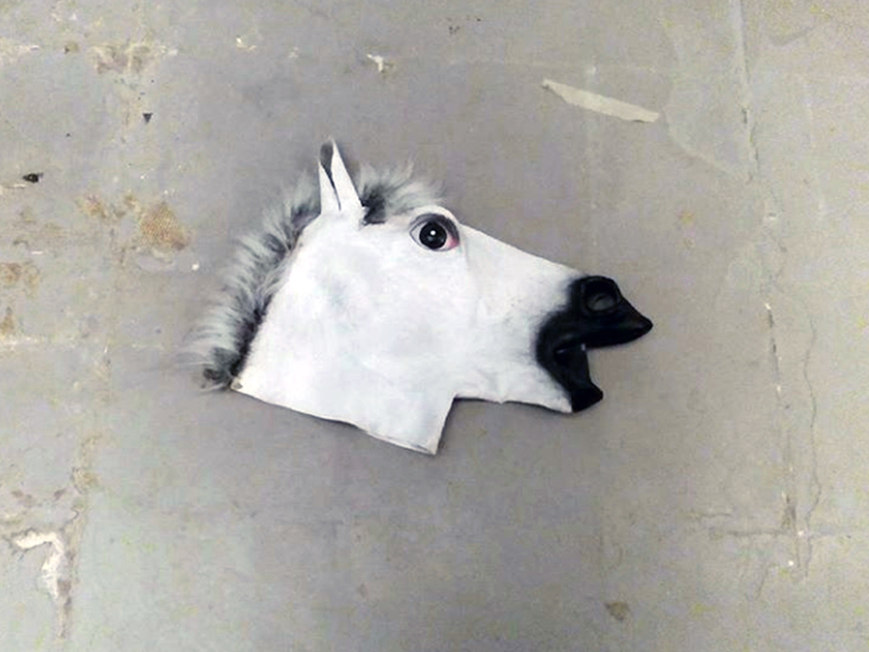
The Greatest Show On Earth | 2018 | Pedro Valdez Cardoso12 may 2018 | Roberto Vecchi
Argentina and its familial scars
The theme of Memoirs is the familial and intergenerational transmission of traumatic memory, which itself is one way of defining the concept of ‘post-memory.’ The family is an opaque and indecipherable object that fundamentally complicates the task of studying private memories. How can we pierce the thick diaphragm that protects and obscures the subjective, private and disavowed pasts buried in the darkest and deepest regions of the family space?
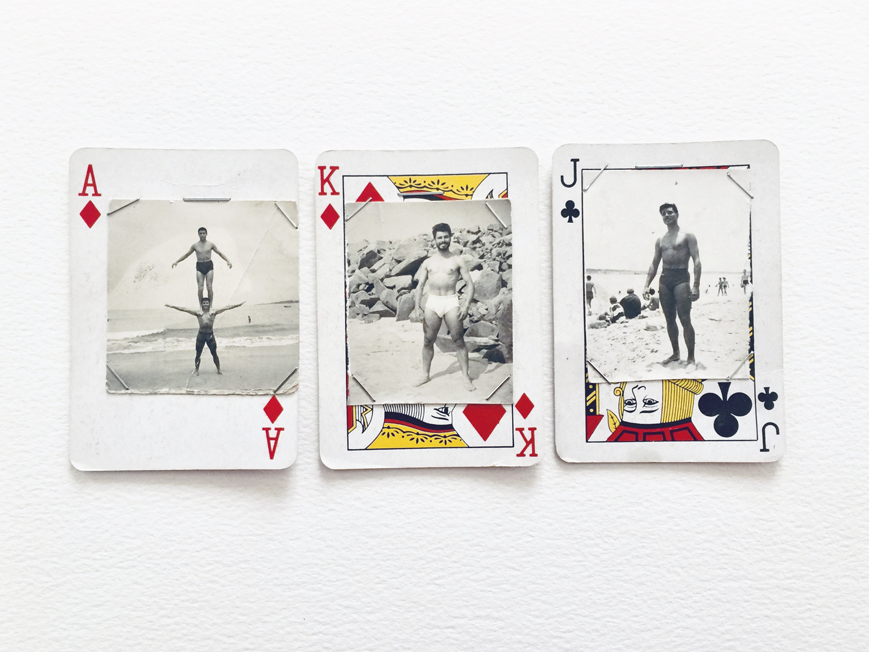
untitled | 2018 | Ana Vidigal5 may 2018 | Margarida Calafate Ribeiro, António Sousa Ribeiro
Post-colonial ghosts on the loose in Europe
The 100th anniversary of the Battle of the Lys fell on April 9, 2018. The presidents of Portugal and France as well as the Prime Minister António Costa took part in the celebrations and the television and the newspapers marked the event emphatically.
Contested memories: the “African quarter” in Berlin
German colonial experience, as is well-known, was relatively short: the defeat of the Reich in 1918 brought about its abrupt end, since the several punitive measures set up by the Treaty of Versailles included the obligation for Germany to surrender all colonial territories in its possession.

ENFANTS D'EMPIRES ET POSTMÉMOIRES EUROPÉENNES

Coleção Memoirs/ Afrontamento
NEWSLETTER
Merci de votre
abonnement à notre
NEWSLETTER Newsletter
abonnement à notre
NEWSLETTER Newsletter





